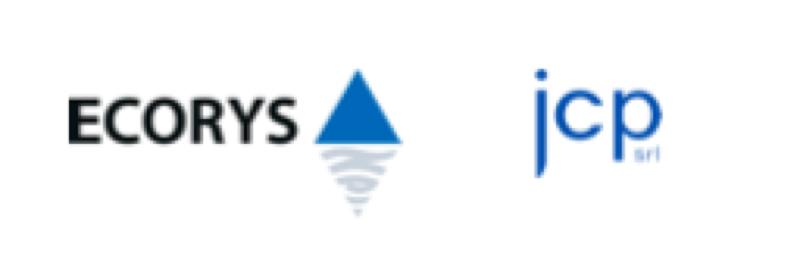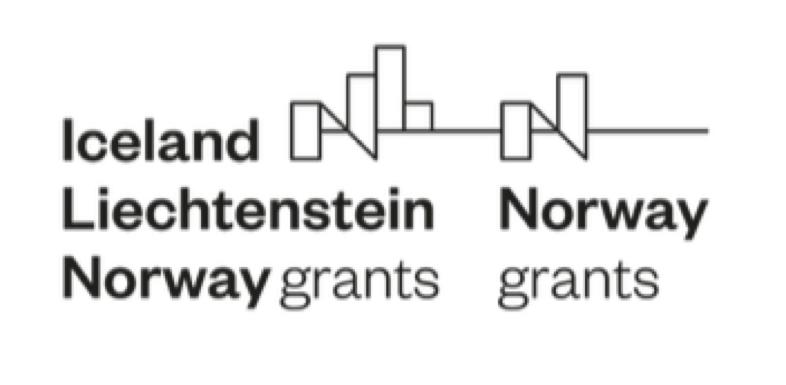Credits: the Fund Director, the Fund Operator & the Regional Funds Projects



Credits: the Fund Director, the Fund Operator & the Regional Funds Projects


Director’s Editorial
Ring out the Old, Ring in the New Interview with Dafina Peci, Executive Director at National Youth Congress of Albania – Tirana European Youth Capital 2022
‘The passing of the baton’ - Interview with Lublin, 2023 European Youth Capital
The Ukrainian city of Lviv is the European Youth Capital 2025
The 4 Regional Funds Annual Thematic Seminar, 13th – 14th December 2022
YouthTOK Agenda: Let's hear the voice of youth
The European Year of Skills is adding more value to SEPAL PRO’s work
"Going Forward" program to train 150,000 individuals in digital and “green” skills
Before the beginning of European Year of Skills – young people, employers and educators shares their thoughts about education
Digital skills training
Association “Sustainability of progressive and open communication”, leading partner of project L.I.K.E. project – Life Investment is the Key to Employment, held its Annual Conference within the project.
European Year of Skills
Skills and competences: a window to youth employment
Celebrating 4th successful year in the Youth Employment family
Young people from Berznik and Pernik, Bulgaria will make a radio broadcast
RAISE Youth welcomes European Year of Skills and Competences
“Chatiquette” – or how to comport in online meetings
Reducing self-doubts of NEETs
Competences to undertake successfully
Spain youth ambassador - Maria Prats
Cowork4YOUTH: The Open Event in Bilbao
Upskilling planning in Ireland and Greece for 2023
Cowork4YOUTH: Examining the Swedish Presidency’s programme YENESIS
Dear Friends,
We said goodbye to 2022 with the closing of the European Year of Youth, ‘your’ year, and we welcome 2023 with a new one, dedicated to skills, which may not be your primary area of interest and intervention, but…. You are used to face new challenges!
January is, usually, the moment one dedicates to the 'good intentions' for the year. This time, considering that this - barring new changes - will be the last year of activity for you, I would like to ask you for a last effort, to further strengthen our cooperation, perhaps together with the brothers and sisters from the Fund for Regional Cooperation.
Let's ask each other what you can still do for your Projects, and what we can still do for you.
I tried to reply already, and together with the rest of the Team of the FO, we tried to put together some ideas. Our goal, and hope, is to start this 2023 with something extra, capable of leaving traces in the future as well. And you, what imprints do you want to leave?
I believe that this question is perfectly in line with the new main theme – skills – and I was happy to read your contribution and feel your interest. This demonstrates that being focused on Youth, does not mean to have nothing to do with skills.
On the contrary, your field is in dire need of skills development! You have been doing that for all these years, and we would only like to spread your results. Your Projects are the demonstration that – behind the statistic, saying that actually a high number of EU companies/industries/etc. are not finding skilled workers – there has been a hard work toward the creation of young people/NEETs well skilled. And you are part of this result. This is why I am not worried at all about this new European Year, when I think of you and this Fund.
At the same time, as our Friend Tom suggests, quoting Alfred Tennyson … ‘Ring out the Old, Ring in the New’! the ‘new’ is what I wish to see in the coming, last months. And I am sure that everybody will contribute, since we are sharing the same path for a while now. Why something new? Not because we expect from you something more, if your Project is part of this Family, there is already a reason. But, on the contrary, because I know that you won’t wait for the end with folded hands.
Talking about good news, I am very happy to announce you that our Friends from Tirana and Lublin dedicated to us a precious time: we proposed them to have in our Mag the ‘passing of the baton’, and they are here! As you know Lublin is 2023 European Youth Capital, we asked both the cities to have a twoside interview, and we are glad to present you the result, which is for us an important one. Therefore, in the following pages you will read the words of Dafina Peci, the Executive Director at the National Youth Congress of Albania – Tirana during the European Youth Capital 2022, followed by Lublin’s Team, with which we hope to start the same collaboration we had last year with their ‘colleagues’ from Albania! We thank all of them again for having chosen our Mag as one of the means to spread their initiatives.
Meanwhile, I was reading some of the Projects’ materials and every time I am pleasantly impressed by the high number of beneficiaries, i.e. young people who have been able to derive a real benefit from your activities.
I believe that integrating what you already do, with the opportunity to take into consideration the need for new skills, will be an advantage for the growth of the successes of the whole Fund. To say it with one of our Projects’ words, the RAISE Youth, «This new European Year of Skills and Competences marks a new opportunity for all the projects and organizations participating to put the focus of their activities in the capacity building and training of young people all across the European territories, an opportunity we are willing to take».

Do you agree with them? Knowing you, I think the unanimous answer will be yes! Therefore, a happy start to you all, talking on behalf of all of us, we will be here again to support you.
Gian Luca Bombarda The Fund Director
Alfred Tennyson’s elegy – ‘In Memoriam’ - (part of it reproduced below) of almost 175 years ago captures the reflective, poignant, questioning mood associated with lost lives and discarded opportunities, that is amplified at this time of the year. As we pass from one year to the next, after the quelling of the festivities and fireworks, time almost stands still on the bridge between the old year and the new one. For some the transition will be seamless, for others the new year comes bloated with promises and resolutions. These transitions can be likened to the fuzzy recalculating GPS images at a crossroads on a car journey, as the system adjusts its compass for onward direction guidance. It offers a time to inhale philosophically and exhale practically. Your different journeys will continue, you will take stock of the roads travelled and not travelled over the previous year, and you will take on the new year armoured with renewed strength and purpose. So, ring out the old, ring in the new.
Ring out the old, ring in the new, Ring, happy bells, across the snow: The year is going, let him go;
Ring out the false, ring in the true.
Ring out the grief that saps the mind
For those that here we see no more;
Ring out the feud of rich and poor, Ring in redress to all mankind.
Ring out false pride in place and blood, The civic slander and the spite;
Ring in the love of truth and right, Ring in the common love of good. Ring out old shapes of foul disease; Ring out the narrowing lust of gold; Ring out the thousand wars of old, Ring in the thousand years of peace.
A recent press release by the EC offered this:
from the poetic and philosophical to the prosaic and practical -
The European Commission has designated 2023 as the ‘European Year of Skills’, following the announcement by President Ursula von der Leyen in her 2022 State of the Union address. The justification for this might be found in Eurostat’s announcement that currently more than three quarters of companies in the EU report difficulties in finding workers with the necessary skills, and latest figures (from Eurostat) suggest that only 37% of adults undertake training on a regular basis.
The Digital Economy and Society Index shows that 4 out of 10 adults and every third person who works in Europe lack basic digital skills. In addition, already in 2021, 28 occupations ranging from construction and healthcare to engineering and IT had shortages, showing a growing demand for both high and low-skilled workers. The 2030 Digital Compass sets the EU target that by 2030, at least 80% of all adults should have at least basic digital skills, and there should be 20 million employed ICT specialists in the EU, while more women should be encouraged to take up such jobs.
‘The green and digital transitions are opening up new opportunities for people and the EU economy. Having the relevant skills empowers people to successfully navigate labour market changes and to fully engage in society and democracy. This will ensure that nobody is left behind and the economic recovery as well as the green and digital transitions are socially fair and just. A workforce with the skills that are in demand also contributes to sustainable growth, leads to more innovation and improves companies' competitiveness.’
There are many EU initiatives to support skills development which will be highlighted during 2023, and which may offer ideas, support or validation for some of your projects. In those domains in which you are already strong, there will be opportunities to profile and showcase what you are doing in the relevant sectors. Below is a small snapshot of some of the initiatives:
• The European Skills Agenda is the framework for EU skills policy cooperation that helps individuals and businesses develop more and better skills and to apply them. As part of the Skills Agenda, under the Pact for Skills so far, more than 700 organisations have signed up and 12 large-scale partnerships in strategic sectors have been set up with pledges to help upskill up to 6 million people.
• The Commission has also proposed new initiatives to address EU skills shortages and improve migration cooperation. The roll-out of an EU Talent Pool and of Talent Partnerships with selected third partners will help match the skills of candidates to work in Europe with labour market needs. This is a key deliverable under the New Pact on Migration and Asylum.
• The European strategy for universities, adopted in January, proposes a series of 50 actions that are key to develop high level and future-proof skills for a wide range of learners, including lifelong learners, for them to become creative and critical thinkers, problem solvers and active and responsible citizens.
• The European Digital Skills and Jobs Platform is an initiative launched under the Connecting Europe Facility Programme. It offers information and resources on digital skills such as a digital skills self-assessment tool, as well as training and funding opportunities.
A cautious and valid qualification of the above is offered by ETUCE (European Trade Union Committee for Education)
‘A holistic approach to education should be safeguarded, by avoiding to define and change curricula according to employability rate of graduates, ‘labour market needs’ and the need of finding workers with the “right

skills”. Education should not only serve the purpose of the changing expectations of the labour market, but contribute to ensure that students acquire key competences and basic skills linked to social, democratic and citizenship values. The text addresses the importance of “investment in professional education and upskilling”, only linking education to labour market needs. Focusing too much on the latter would lead to a lack of the skills needed to become proactive and democratic citizens.’ ETUCE shares the views of ETUC (European Trade Union Confederation) that the Commission should support not only highskilled migrants and refugees but provide equal treatment to all, and ensure quality education for migrant and refugee children.
training institutions, governments, and civil society, which should develop regional skills ecosystems.
2023 offers the perfect stage for education stakeholders to campaign for the European Year of Skills to go precisely beyond this misconception that education is responsible only for preparing people to be tomorrow’s workforce. Skills and competencies will be in the spotlight offering education stakeholders –learning providers, practitioners, pedagogists, academics, civil society and others an opportunity to counter the common view of education as simply instrumental to the market(s). On the contrary, learning has a liberating potential, as do skills.
EURASHE (European Association of Institutions in Higher Education) argue that ‘most education experts agree that education opportunities should arise and be implemented with learners’ needs in mind, not only to serve external or derivative interests. It is by promoting education for education’s sake that we can maximise its positive effects, also in labour market participation.’
Closely linked to the world of work, Professional Higher Education can help meet the skills gaps Europe is facing and develop the broader competences required for the green and digital transitions. However, reinforced cooperation with business will be needed, as well as with other education and
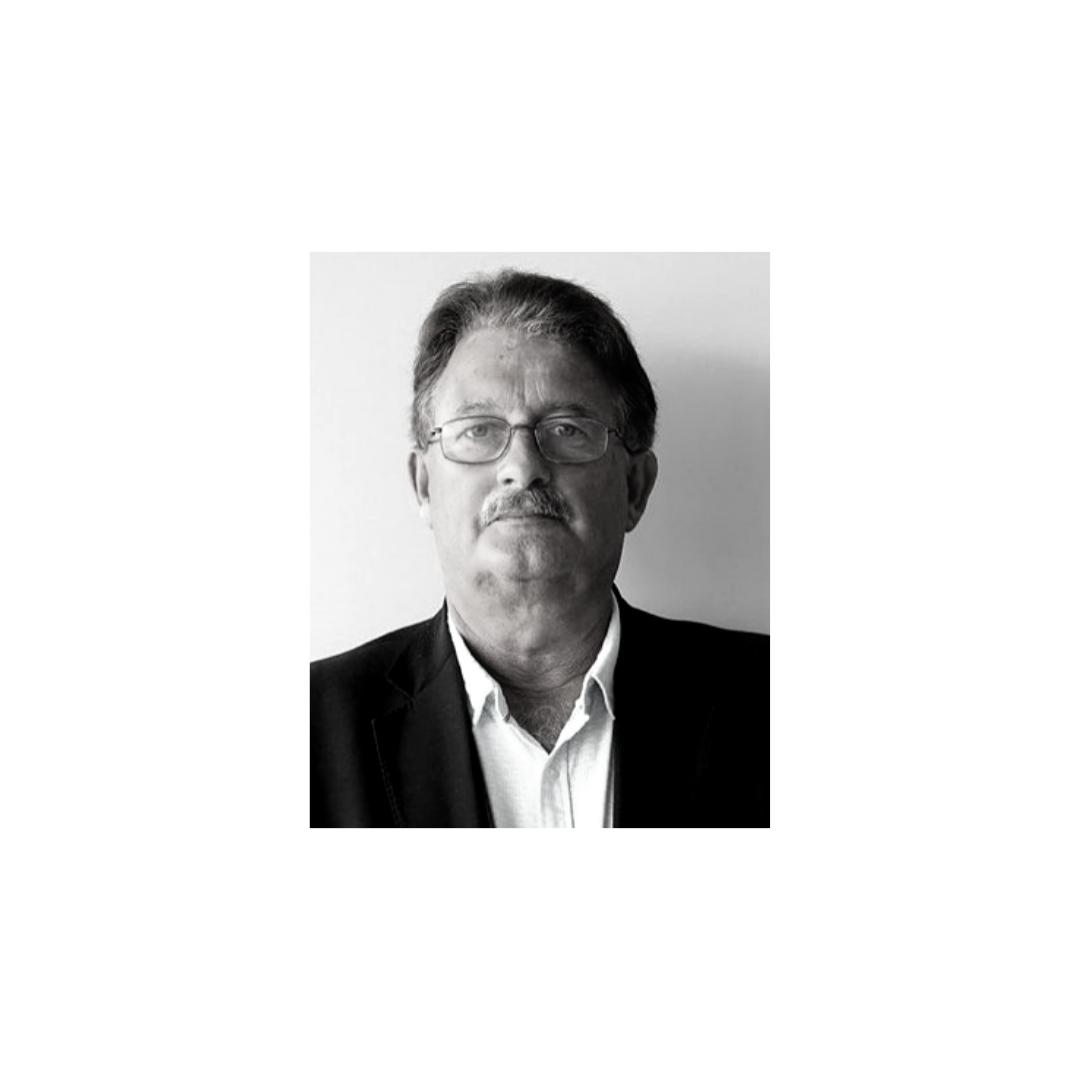
Reacting and adapting to modern challenges such as pandemics, wars and climate change does not solely mean competing for our own place in employment: it also gives us the opportunity to bring new perspectives and solutions, social innovation, intercultural understanding, personal and collective fulfilment into the equation with an holistic outlook on the future.
Thomas Mc Grath Our Irish Journalist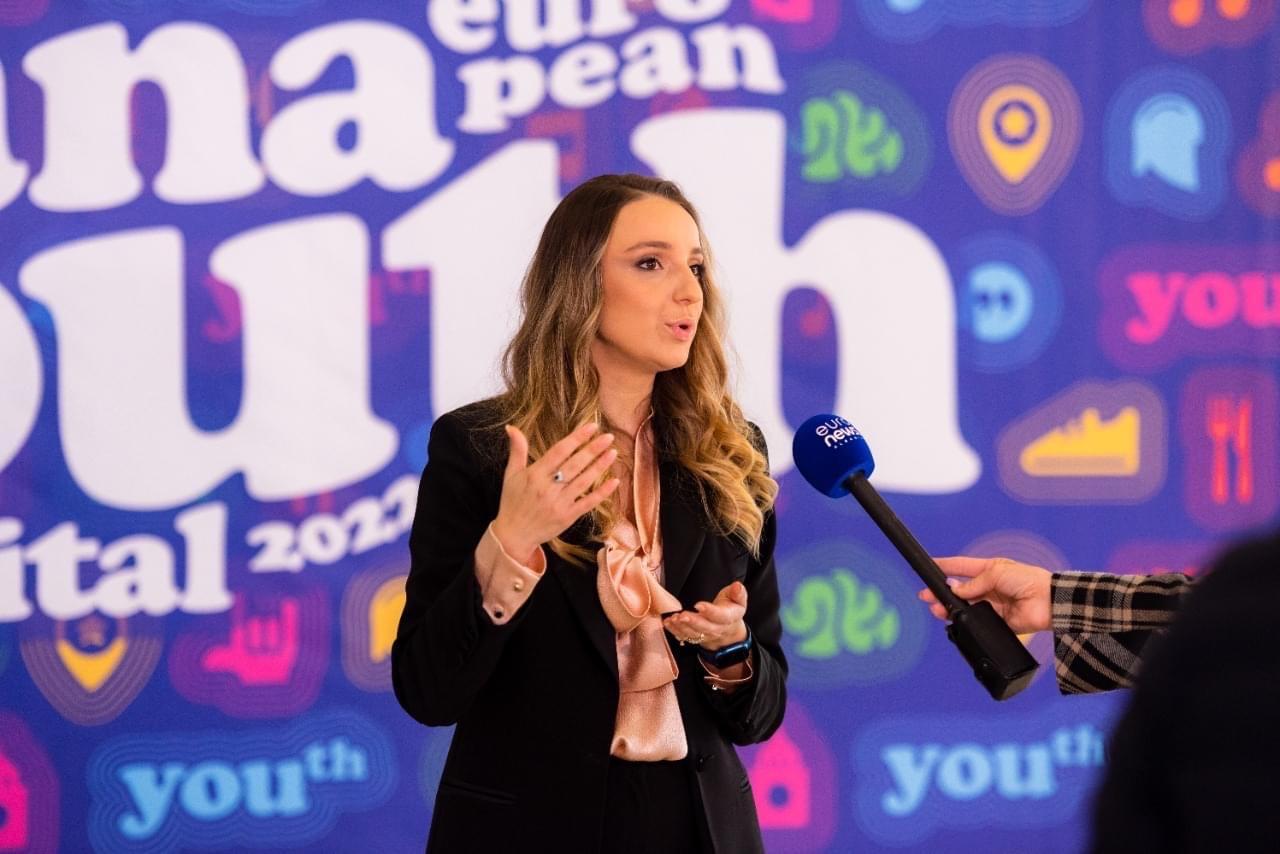
What does really mean, in practical terms, being the European Youth Capital?
«Being the European Youth Capital means being given a chance to manifest the youth potential in your city and country, and not only taking chances but creating them for new avenues of youth engagement and empowerment».
What is the first thought you had when you knew that your city was selected?
«We were positively surprised and felt an immense reward on the announcement that Tirana was awarded the title.
I still remember that day, back in 2019, in Amiens, France when Tirana was awarded the title, and the whole team that had been working on the application was very enthusiastic and looking forward to bringing the title home and to starting the preparations and work for 2022».
Why do you think you have been selected? Can you tell us more how the process works?
«We focused on the priority areas and programs of work that were identified from youth organizations and those working with youth. Our application and program goals matched the requirements and needs of youth in our country. From the project application phase and further on, we diversified our scope of work into eight programs which were consulted with youth and civil society organizations and stakeholders on the field: youth participation, capacity, innovation and entrepreneurship, eco-health, youth spaces, culture, European identity and values, and diversity. These eight programs enabled us to tackle and address the most pressing priorities and needs of youth of Albania, and as a reward we saw youth taking the lead, and transforming these programs into concrete outputs and activities. With the support of the European Youth Forum, which awards the title, and with partners coming from governmental organizations, civil society, business community, as well as the international community, we started a journey where concrete change is brought only by joining forces and letting youth take the lead as change-makers. The process and the journey have been very competitive but the will and determination to keep up with the challenges and opportunities has been the motivating wand for us».
«There are over 1000 activities we supported and implemented within the 8 pillars of our programmatic work and it is hard to distinguish one of them as the most important. They were all unique, inclusive and diverse in their own way. They boosted youth participation as well as intergenerational dialogue and networking. What I would highlight as the most important outcome reached, was the investment in human capital. That is the main outcome out of a oneyear-long dedicated work to reach out to all youth in society».
«Young people were involved from the conceptualization of the project ideas to the ideation and implementation phases of the projects. They were the key actors that made possible the successful implementation of our grant-scheme, and throughout the journey we valued them not only as beneficiaries of our program but as key partners of ours.
Furthermore, we also had a team of over 200 young activists and volunteers that were part of our core team of National Youth Congress. They were the driving force and the holding glue of our team, enabling us to fully carry out and implement all local activities on the ground».
Considering the staff behind and the activities to be done, how is the ‘personnel’ organised? Which is the ‘typical day?
«During the implementation of Tirana EYC 2022 program, there is no typical day for the team of the National Youth Congress. Every day is diverse, unique and brings new opportunities and moments to cherish. Depending on the calendar and events, we are always on the ground with our partners and youth on a daily basis».
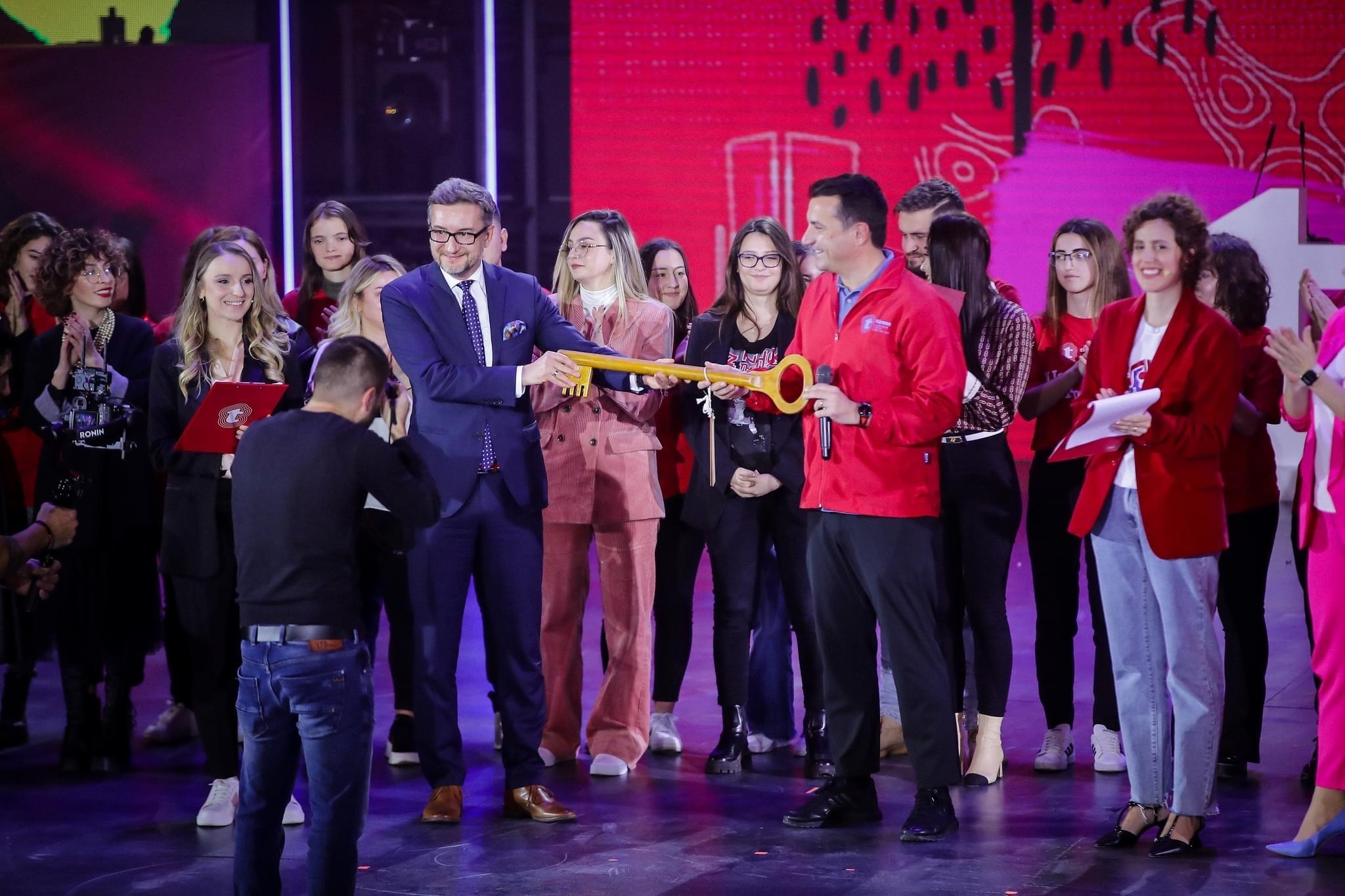
«To implement a macro-program with over a thousand activities and hundreds of stakeholders involved, a good strategy lays the basis for efficient outcomes to flourish. We built our strategy oriented towards the principle of social transformation and human capital investment. The goal was to ensure that the impact generated by the program turned into concrete investment towards youth and those working with youth in Albania».
«We got together with people, institutions, media, organizations, businesses and diplomats, to find a common ground which is pro-active, looks towards the future, and uses the lenses of youth to perceive the reality we can shape together.
Our journey would not have been possible without joining hands with a diverse array of stakeholders which believed in our mission. From governmental institutions, to ciliv society organizations, universities, media and youth we saw a great trust placed upon us, creating new avenues and possibilities for further cooperation».
«Skepticism turned into disbelief is one of the challenges you may encounter when the ambitions are high and the road towards them bumpy. But Tirana EYC 2022 at the end, proved to be a rewarding journey where some of the challenges were addressed and transformed into opportunities. Bringing all voices and opinions at the table is not always easy, but we worked to create spaces and avenues of engagement where all perspectives, voices, and opinions are heard, represented and included.
Finally, managing a granting scheme of 360 projects where youth organizations, non-formal groups, and individuals are granted projects covering our eight programmatic areas of work, was another challenge faced. At the same time, we were implementing around 90 flagship projects. 450 projects in a year, resulting with over a 1000 events and activities in eight different fields of work, have led to some intensive commitments and dedication from all the team involved, as well as from partners and friends who trusted this journey, to conclude and maximize the objectives we set at the beginning of the year».
Does being the European Youth Capital have to do only with the specific city or does it include the entire country?
«Tirana EYC 2022 was the first program under the ‘’European Youth Capital’’ title which extended to the entire Albanian territory. From the very beginning of our application phase, we aimed and encouraged various projects and activities throughout the entire country to leave no one behind and to ensure that this amazing opportunity would benefit all youth».
Being the European Youth Capital during the European Year of Youth: a challenge or a lucky opportunity?
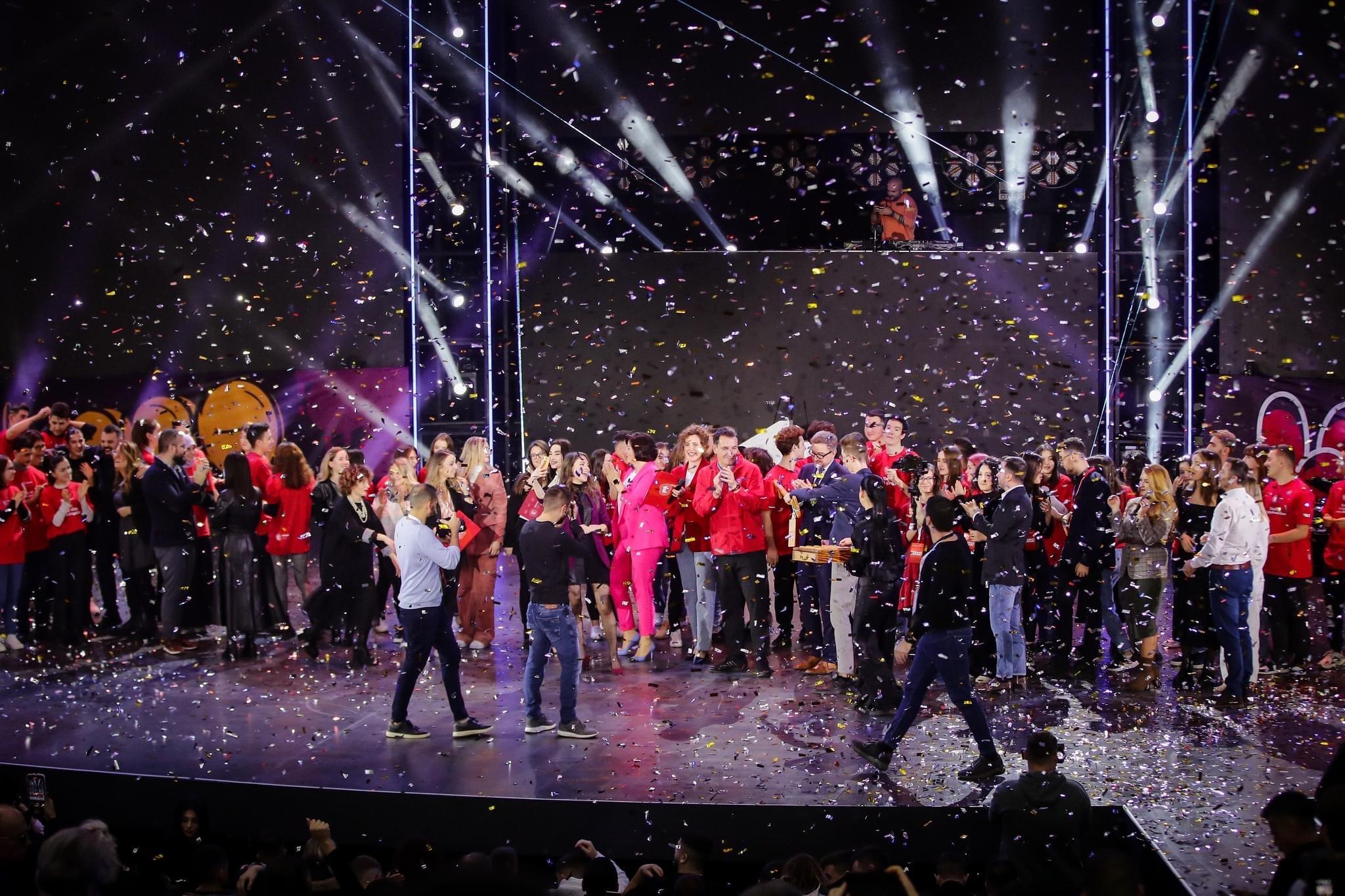
«Definitely an amazing opportunity that enables change and transformation».
Which is the wish for the city this year?
«Keep investing and creating new spaces of engagement and empowerment for youth – because they are the catalysts of positive transformation for a welleducated, sustainable and democratic society».

What does really mean, in practical terms, being the European Youth Capital?
«Being the European Youth Capital means an opportunity to make a "youth change", understood as creating new programs and projects dedicated to young people, in order to engage them and strengthening their position in the city. We have two rules: nothing about youth without youth and if not now, then when! We want to be a friendly and open city for everyone».
What is the first thought you had when you knew that your city was selected?
«We made it! We were very surprised to hear about the city of Lublin being awarded the title, we really didn't know what the result would be, because Baia Mare was super prepared. Due to the pandemic, we did not have a title ceremony - only on Saturday, at noon on February 27, 2021, we learned from a post on EYF fb. But we did an online meeting of all the people involved and we experienced this moment together, there was great joy and tears of emotion that we won!».
«The desire to build a friendly city was the most important, openness to change and young people, it is not without significance that the initiator of the efforts for the title was the Sempre a Frente Foundation, the largest youth organization in the region, and the fact that we are an academic city (9 universities) with great potential. If I were to sum up the 2 years of our preparations in one sentence, it would be building relationships with young people. During the application and preparations for the European Youth Capital, we experienced two difficult experiences. First, the pandemic. In a hurry, we learned how to organize public consultations on-line, how to prepare presentations in compliance with sanitary rules. I would like to emphasize the benefits of the possibility of young people's participation in consultations - both in person and through modern information technologies. Hence the plethora of projects offering psychological support. The second experience came with refugees from Ukraine.
Over a million refugees passed through Lublin in the first two months of Russia's full-scale invasion of Ukraine. Nearly 70,000 new residents have settled in our city. In the overwhelming majority of children, adolescents and women. Thanks to the huge involvement of non-governmental organizations, volunteersmainly young people and the city authorities, over 97% of refugees live in private homes today. Refugees are covered by social assistance, children attend schools. Many parents go to work. They have a new home - Lublin. That is why projects involving foreign youth are very important to us».
«In 2022, the Child Advocacy Centre in Lublin was launched, which provides comprehensive, interdisciplinary assistance and support for young people up to 18 years of age. Free assistance, provided by the Semper a Frente Foundation in cooperation with the Empowering Children Foundation, is offered in Polish and Ukrainian. Integration projects that we think about in the long term, involving Ukrainian youth in the life of the city, are important to us. We also have to develop and implement the assumptions of youth pro-life. This process is to reflect the change in thinking about the role and place of youth in the city. This is a long-term task and the most important from our perspective».
«Young people are involved from the conceptualization of project ideas to the project implementation phases. We always represent young people (e.g. the Youth City Council, the Student Council of Lublin) in the committees that allocate city money for activities, they have an equal influence on the selection of projects, and at the same time they learn about the mechanisms functioning in the city. Let's work together to create friendly youth spaces. In order to meet the expectations of the young inhabitants of Lublin, it had to be created together with them. The city invited people to participate in the working group for youth spaces. She is working on the appearance, program and principles of functioning of the place for meetings and activities for young people. The aim of the City is to create spaces that will meet the needs of young people in Lublin. People who make up the working group take part in meetings and workshops with experts dealing with space design, here our partner is IKEA. We have a group of students who create and coordinate the communication team and cover the events of the European Youth Capital. In 2022, we conducted a pilot of youth development scholarships, also for talented youth from Ukraine, and grants for youth activities to complement the city's offer addressed to them. The largest festivals are open to the initiatives of young people, this year they will fill them with content and, as always, co-create on a voluntary basis (about 100 volunteers work at one large festival)».
«The City of Lublin cooperates with the initiator, the Semper a Frente Foundation, and other Partners in order to implement the application. The office is made up of people delegated to tasks, several coordinators from the Lublin Commune and the social EMN Program Council and the EMN Advisory Council are appointed. Created by youth and youth organizations. What is a "typical day"? The project is so interdisciplinary that there is no "typical day". It is intense, dynamic, but there is also a lot of positive energy from people. People are the most important in this project. Each day is diverse, unique and brings new opportunities. Depending on the calendar and events, we are with our partners or young people on a daily basis».
«In order to implement the program, achieve the intended goals we have set, and be an effective motivator of change, a strategy is needed. In order to coordinate hundreds of committed stakeholders, a good strategy is the basis for effective results. We have built our strategy focused on "youth change", the principle of social transformation and investment in human capital. The aim is to ensure that the impact generated by the program is transformed into concrete investments targeted at young people and youth workers in the long term».
Which were/are the main institutions you have to include in your programming activity?
«The most important from our point of view is youth, cooperation with youth non-governmental organizations, supporting adults working with youth, as well as the Youth City Council and the Student Council of Lublin. We are also supported by cultural institutions and sports organizations that carry out activities. We have school initiatives and projects done together with universities. We will meet with people, institutions, media, organizations, business and diplomats to find common ground for cooperation. We are open to new initiatives and good practices».
Which challenges do you think you will have to face?
«A big challenge will certainly be the long-term action we mentioned, i.e. the implementation of the policy. This entails the need for a permanent change in thinking about the role of young people in public life, which should take place on many levels and be consolidated».
Does being the European Youth Capital have to do only with the specific city or does it include the entire country?
«In our opinion, it also affects the local level and creates opportunities to expand cooperation also at the level of the entire country and Europe. We are the first city in Poland to win the title! It's a national success. We have fruitful cooperation at the level of the Union of Polish Metropolises (cooperation of the 10 largest cities in Poland) and cooperation with the Polish Council of Youth Organizations PROM, we have the support and involvement of our partner cities from all over Europe (joint projects). We also have a dedicated project of the European Space Agency for the European Youth Capital. So we believe that we can infect everyone with the idea of ESM!».

Being the European Youth Capital during the European Year of Skills and Competences: a challenge or an opportunity?
«Great Opportunity! But also a challenge to really give young people these empowering and stimulating skills to be active citizens. And create a youthfriendly city».
Which is the desire you have for this 2023?
«Safety, peace and development opportunities for everyone!
Tworzenie nowych przestrzeni zaangażowania i wzmocnienia pozycji młodzieży – ponieważ to oni decydują o przyszłości».
FB Lublin is YOUth więcej na www.youth.lublin.eu
Pictures were taken from the official websites, that you can visit here to have more info:
https://lublin.eu/gfx/lublin/userfiles/_users/a-kolebuk/przewodnik_dla_mlodziezy.pdf
https://lublin.eu/gfx/lublin/userfiles/_public/lublin/esm2023/skrot_raport_esm_eng_active.pdf
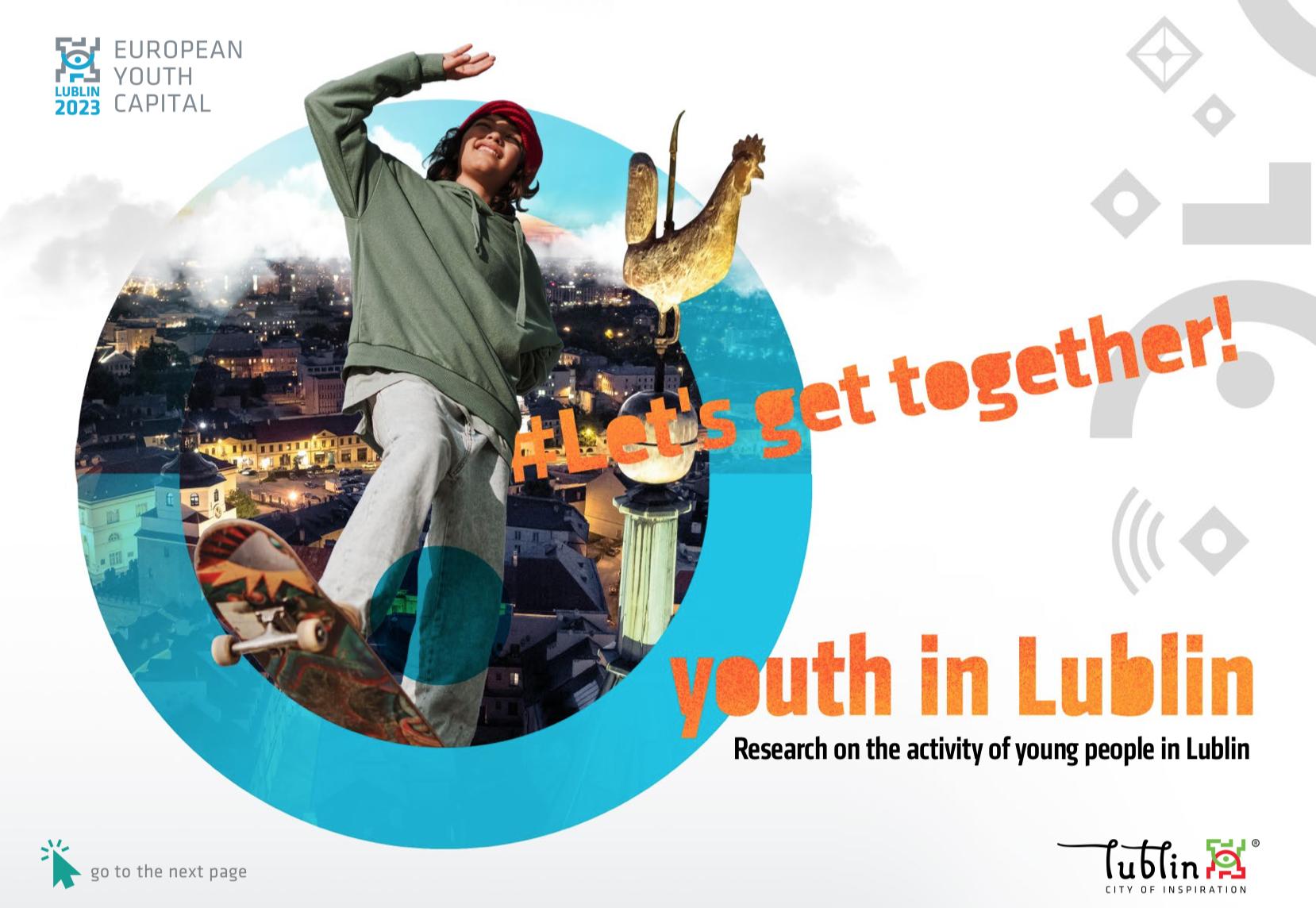
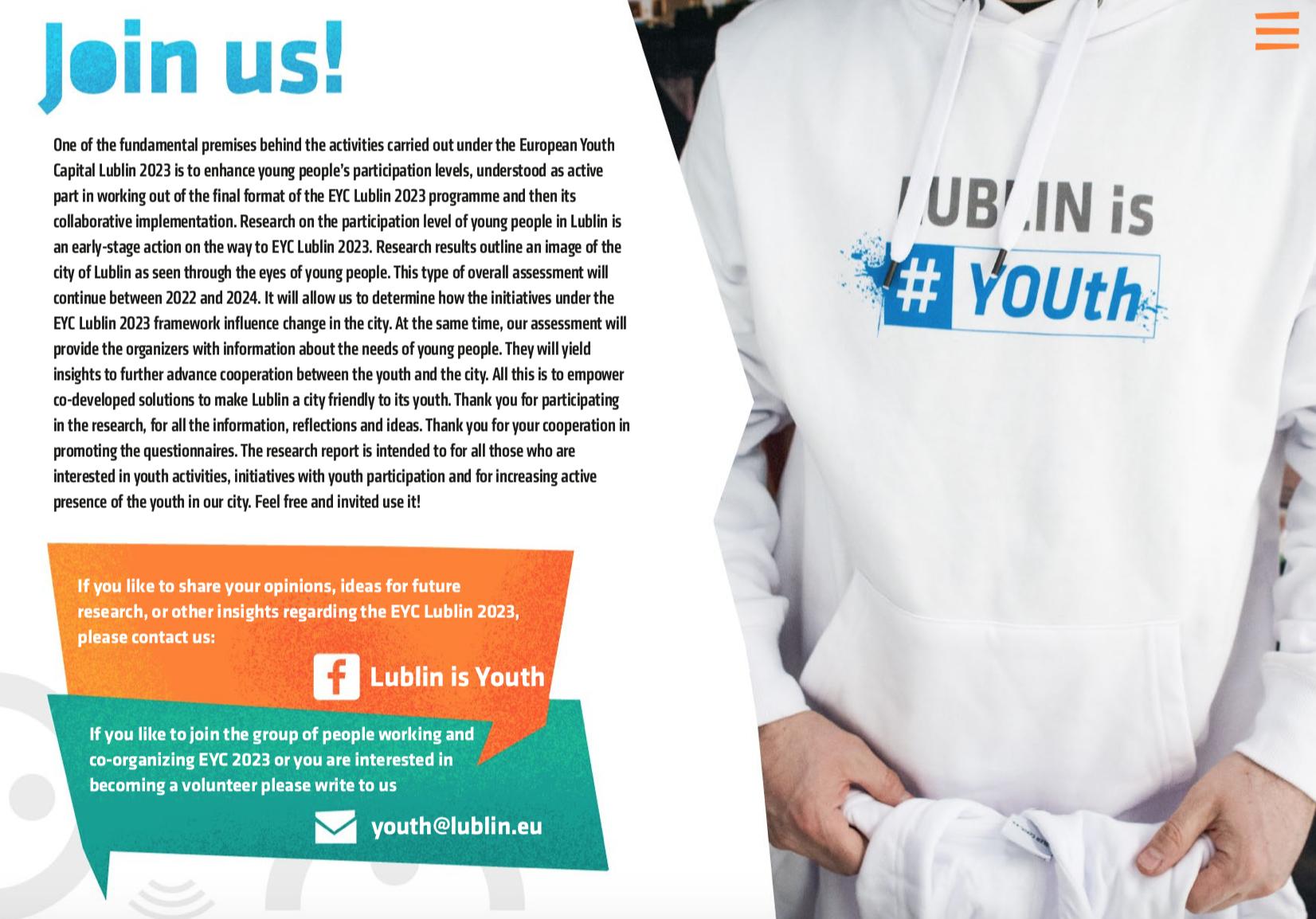
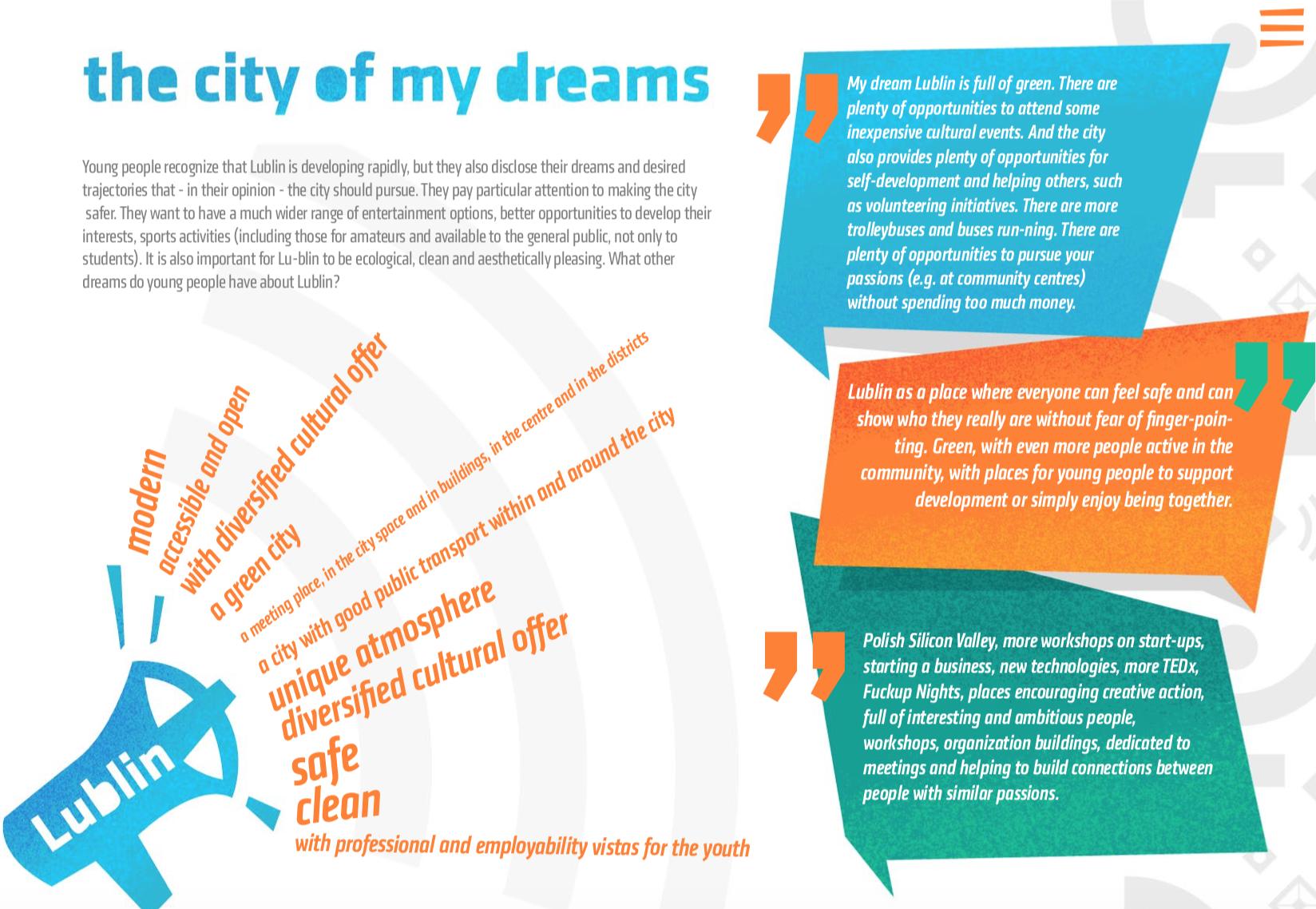
Lviv, an Ukrainian city, was declared the European Youth Capital for 2025, in the ceremony held at the Opera and Ballet Theatre. The title was handed over by the mayor Erion Veliaj. Tirana held the title of European Youth Capital this year, where over 1000 activities were scheduled for young people.
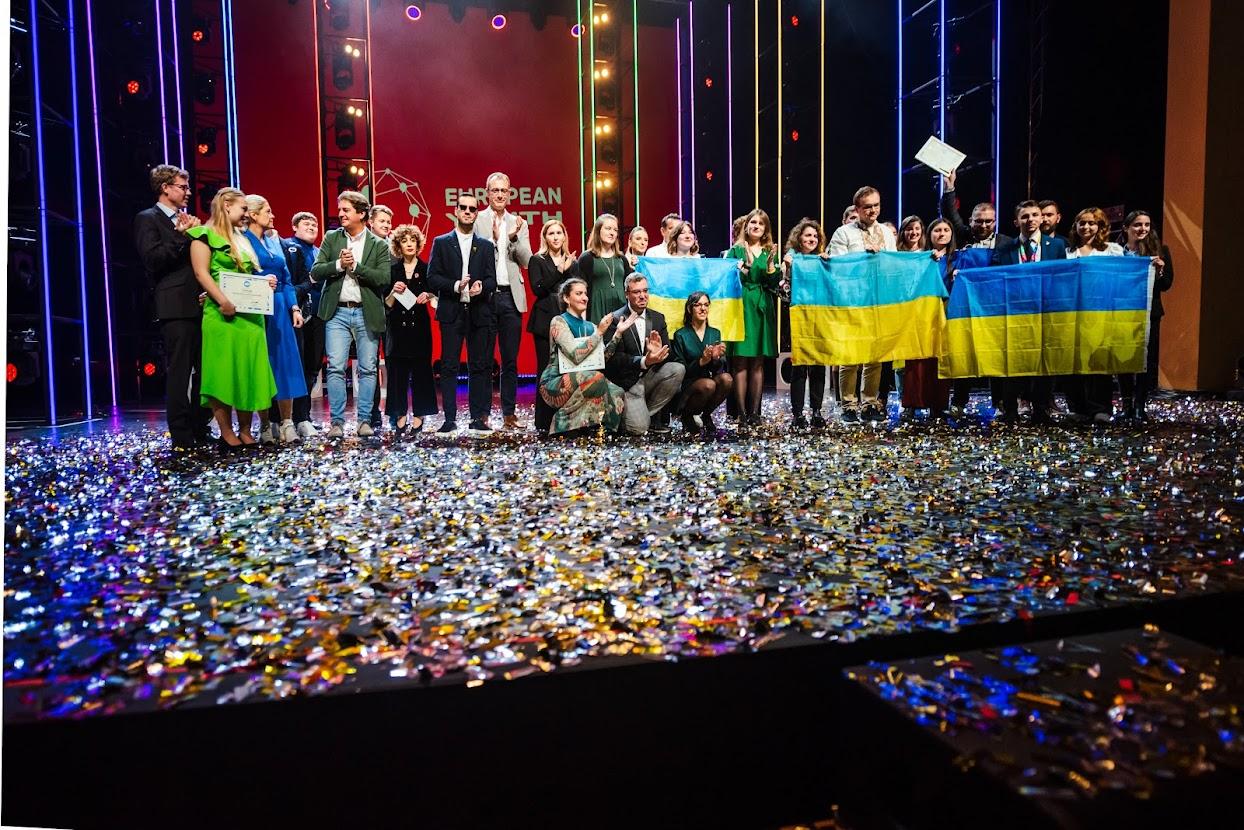
"Neighbors matter! They are important to us when we have them in the same residential building, they are the ones who surround us at school, at work, but they are more important if they are countries that share a border with us. As we experience a war in Europe, like the one in Ukraine, we are all realizing that we should not take our neighbors for granted," said Veliaj in his speech during the ceremony.
The mayor also shared a piece of his experience as the leader of the city that held the title of European Youth Capital. "When I am asked what is the legacy of the Year of Youth, I certainly think of a lot of physical work that we did. Even though I am very proud of the new libraries, of the youth centers, even though I am very happy that we have 40 schools, I am very proud of the sports grounds, I believe that the real achievement of this year, it has been the construction of a cathedral of our hearts, of our minds and of our goals as Europeans, as people who work together, win together, progress together and are proud of each other, their neighbors and their new friends'', he said.
"Even though we are at the end, the month of December awaits us with the implementation of many other activities, translated into workshops, trainings, seminars, exhibitions, festivals, concerts, sports championships and many more," said Aspasjana Kongo, General Coordinator of the National Youth Congress "Tirana, European Youth Capital 2022".
"I want to thank the Municipality of Tirana as a serious partner in this journey full of challenges, which has helped us at every moment and has embraced these initiatives," said Dafina Peçi, Executive Director of the National Youth Congress.
Four was the number of the finalist cities for the title of the next European Youth Capital: Izmir, Fuenlabrada, Tromso and Lviv.

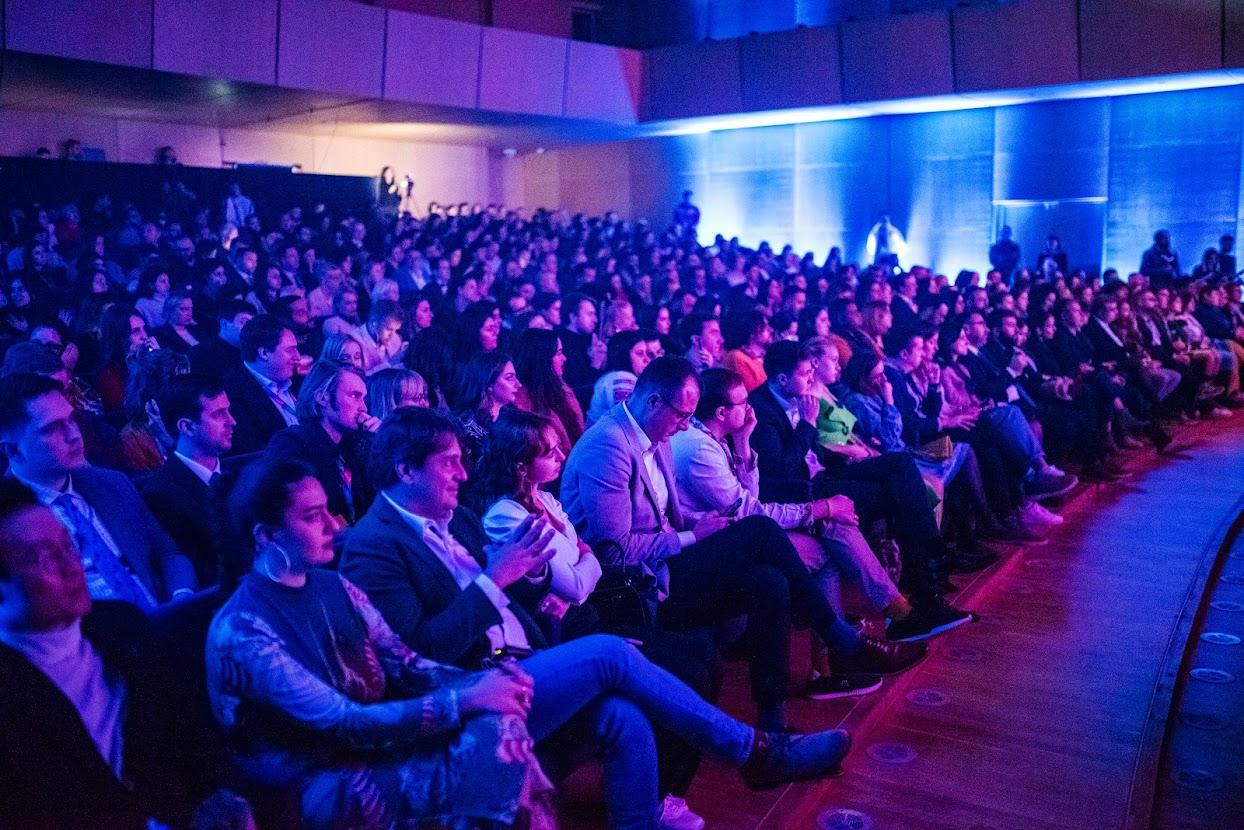
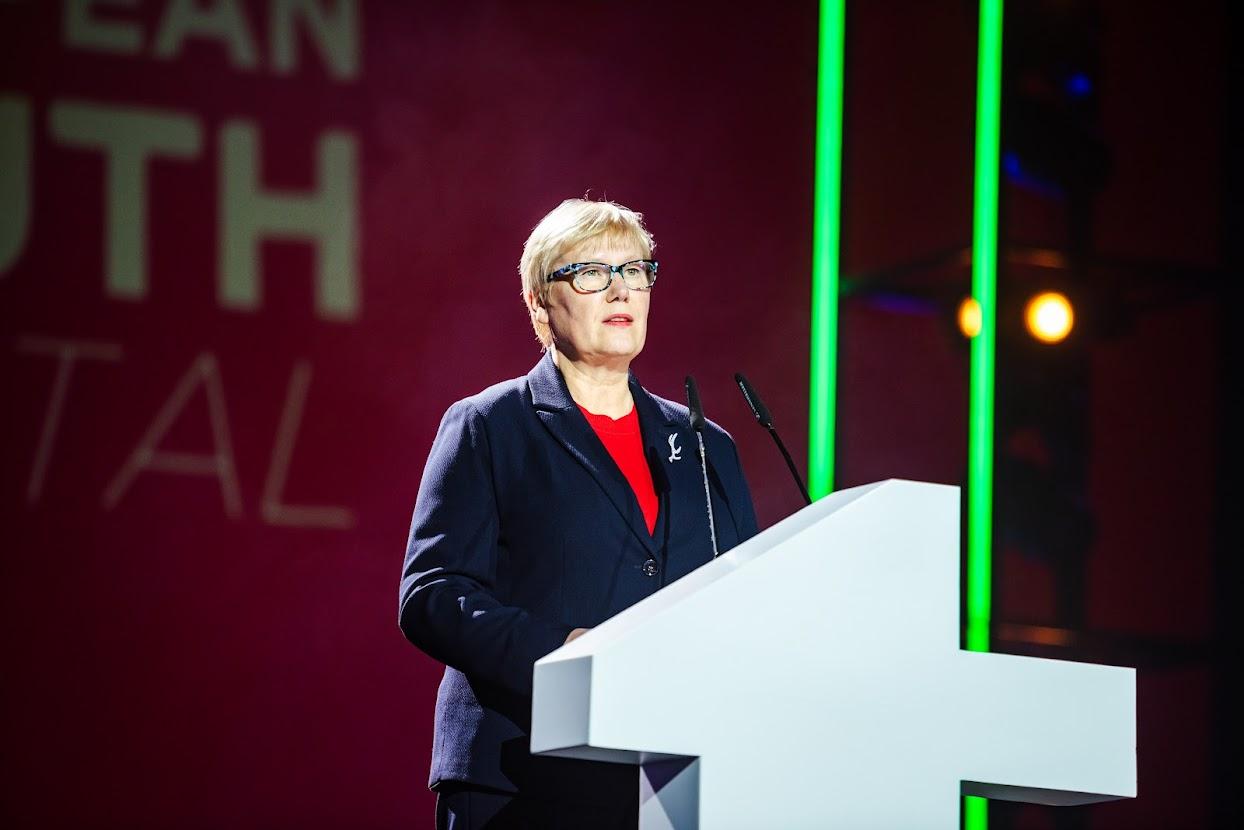

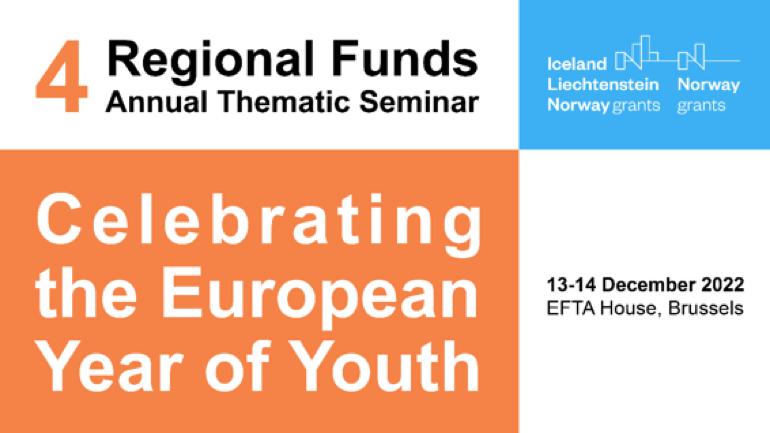
The 4th Regional Funds Annual Seminar gathered attendees representing projects implemented under the EEA and Norway Grants Fund for Youth Employment and Fund for Regional Cooperation, and FMO and FO representatives. We additionally hosted the youth representatives of projects under the Fund for Youth Employment (see separate article on YouthTOK).
The main idea for this year’s event was to put together the efforts of the two regional funds, focusing on the topics related to the celebrations of the European Year of Youth. With this in mind, we planned the first day with sessions concentrating on current youth issues and presenting various approaches from the project promoters, from both funds. The key notes were given by Lars Børresen, the recently appointed Senior Adviser at, Norwegian Ministry of Foreign Affairs and Grethe Haugøy, former Senior Sector Officer at FMO and currently policy expert on lifelong learning, employment and inclusion. Both sessions, “Youth opportunities for engagement towards sustainable future” and “NEETs and young professional: challenges of the labour market” gathered speakers representing projects’ perspectives and sparked further conversations, ideas for possible collaboration and experience exchange.
The second day of the seminar was made available only for the in-person attendees and was dedicated to measuring results. The workshop delivered by Karolina Wrona was very enthusiastically welcomed by the attendees, while the presentations on result management delivered by the project promoters inspired discussions continued though the farewell lunch.
EFTA House hosted 59 representatives Lead, Beneficiary and Expertise partners. Further 82 participated online. This was the first in years in-person meeting and for many of the project representatives a first ever opportunity to connect with other project promoters, exchange experience and network beyond project partnerships and even beyond the funds. The FO organisers noted the importance of facilitating such contacts and will strive to provide more such opportunities in 2023, especially when panning for the final annual seminar.
On behalf of the FO team, I wish to thank our project representatives for their participation, both online and in person, for the great energy during the meeting, exciting discussions and inspiring ideas. Our exceptionally big thank you goes to the speakers: Aggeliki Demertzi, Anastasia Vlachou, Elisa Lironi, Francisco Simões, Gustavs Upmanis, Ierotheos Zacharias, Indrė Laučienė, Ingrida Jotkaitė, Kaja Cunk, Lars Alrø Olesen, Enikő Jarmaczki, Lorena Butinar, Luca Koltai, Maritsa Kissamitaki and Radka Muchova.
Małgorzata Nowak, Fund Manager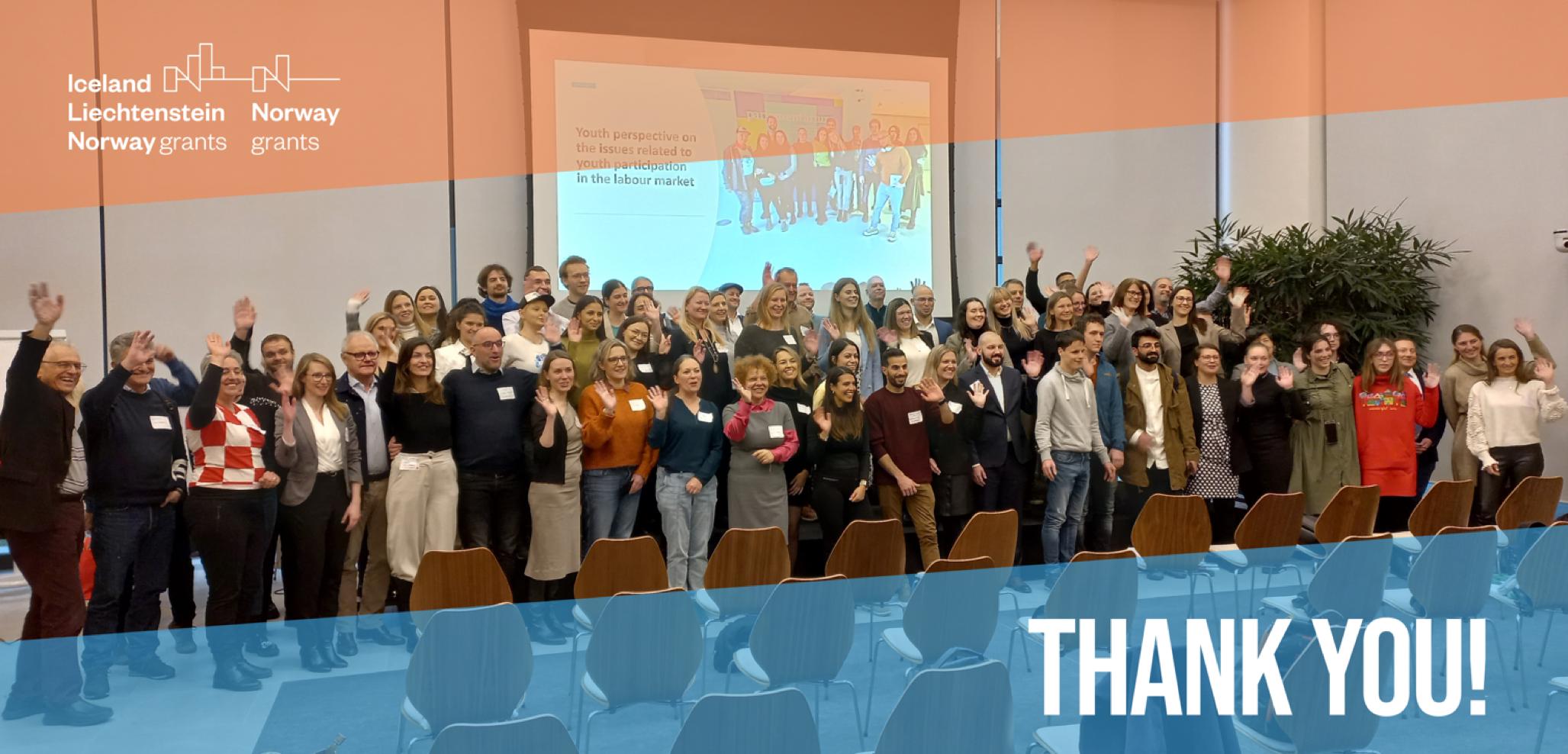
Held in December 2022, the 4th Regional Funds Annual Thematic Seminar for project representatives focused primarily on youth issues as our part of celebrating the European Year of Youth. We wanted to hear their voices and opinions. The aim of the YouthTOK was simple and revolutionary – let's give the platform to the youth and see what happens! We gathered NEET beneficiaries and youth workers contributing to NEET projects to share their experiences. Instead of following rigorous and robust research protocols, we started a discussion with those most affected by the turbulent labour market environment. We asked them to set questions – what do you need from projects? What are your daily obstacles/concerns? What was working for you, and what was not? What are the issues that have not yet been recognised and addressed? What could we do for you?
The youth participated in the online preparatory workshops, introducing them to analysing their project’s experiences, strengths and weaknesses. All participants independently prepared the detailed SWOT analysis, trying to evaluate their project experiences not only from their perspective but also from other participants, projects' limitations. They were insightful, critical and savvy!
Finally, D-day arrived, and participants met in person during the workshop in Brussels. We further discussed their reflections from the SWOT analysis and the additional essays they prepared as homework. We identified seven main areas of their key concerns, such as mental health in the labour market, skills mitchmatch or particular needs of youth with a refugee background or with disability experiences.
They were thirsty for discussion, critical and mindful of obstacles to their labour market participation and proactive in suggesting solutions on what could be improved. They battled and argued, compared their experiences and asked themselves – is that reflection unique only to my experience? Or is it an issue other youths across the countries have in common?
They spent hours discussing "it", the core of what we wanted to hear from them – what bothers youth in the labour market? They talked about undeclared work, little awareness about workers' rights, starting their careers as chefs, yoga instructors, individual contractors, researchers, and other topics and issues. They identified seven key issues: mental health, work-life& care balance, starting a business, skills mitch-match in the labour market, entry into the "real" labour market, youth with specific needs and the desired approach to designing youth-centred solutions.
There were so many things that they wanted to vocalise in these areas, but they needed to be brief and specific. Participants were very conscious of the agenda limitations and wanted to be sharp and on the point! In the end, participants presented their elaborate, 7-points YouthTOK agenda, sharing their opinions and personal stories. We are proud to present the heroes, their stories and their agenda!
Ewelina Wolosik Consultant & Facilitator, Fund Operator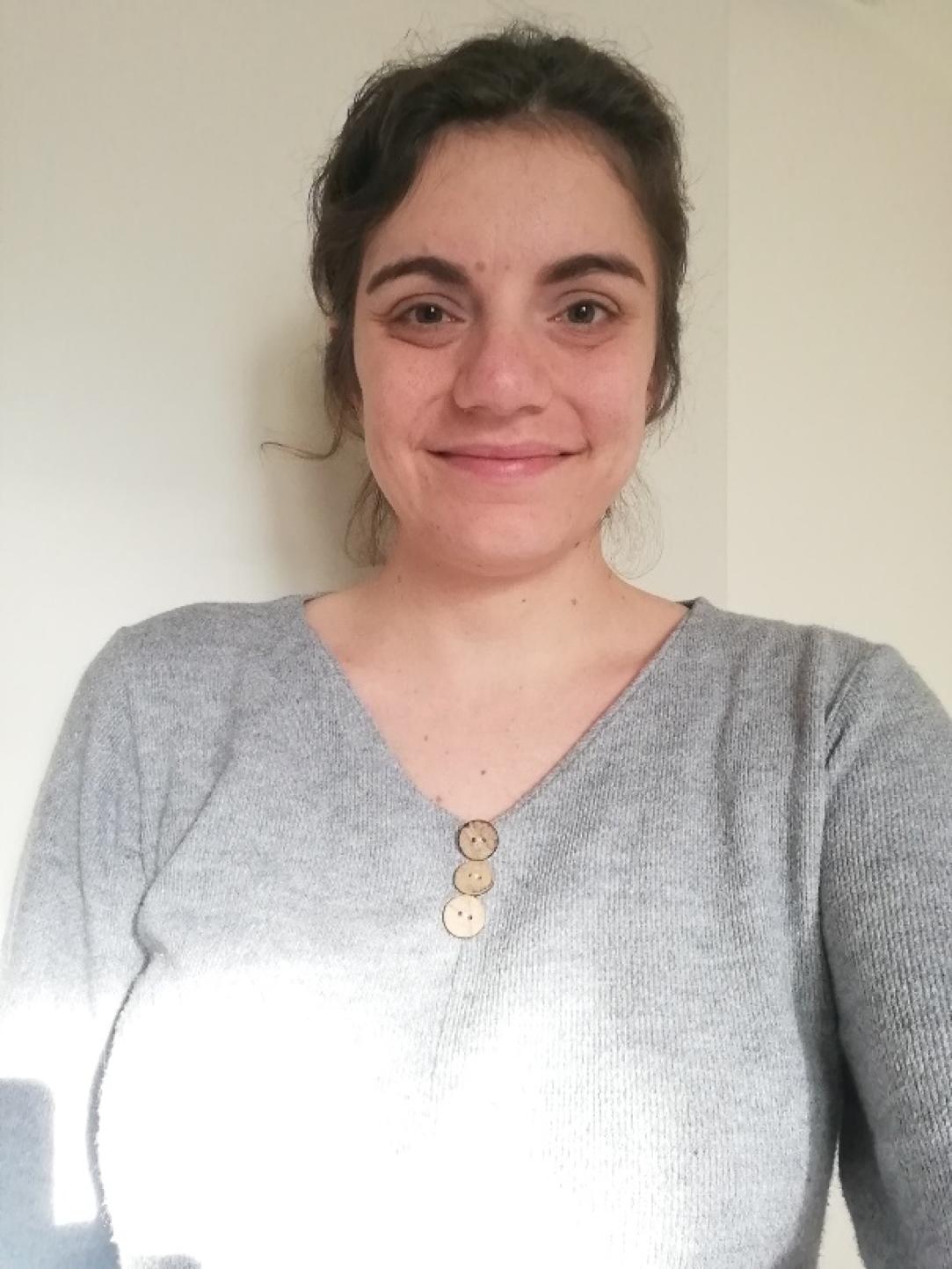
Name and surname: Voinea Valentina Cristina
Project: SEPAL, Supporting Employment Platform through Apprenticeship Learning.

Quote: "The universities/ schools have a syllabus that is not up to date with labour market requirements. I learned social work but without actually putting a social survey into practice. There is no direct line between schools and employers."
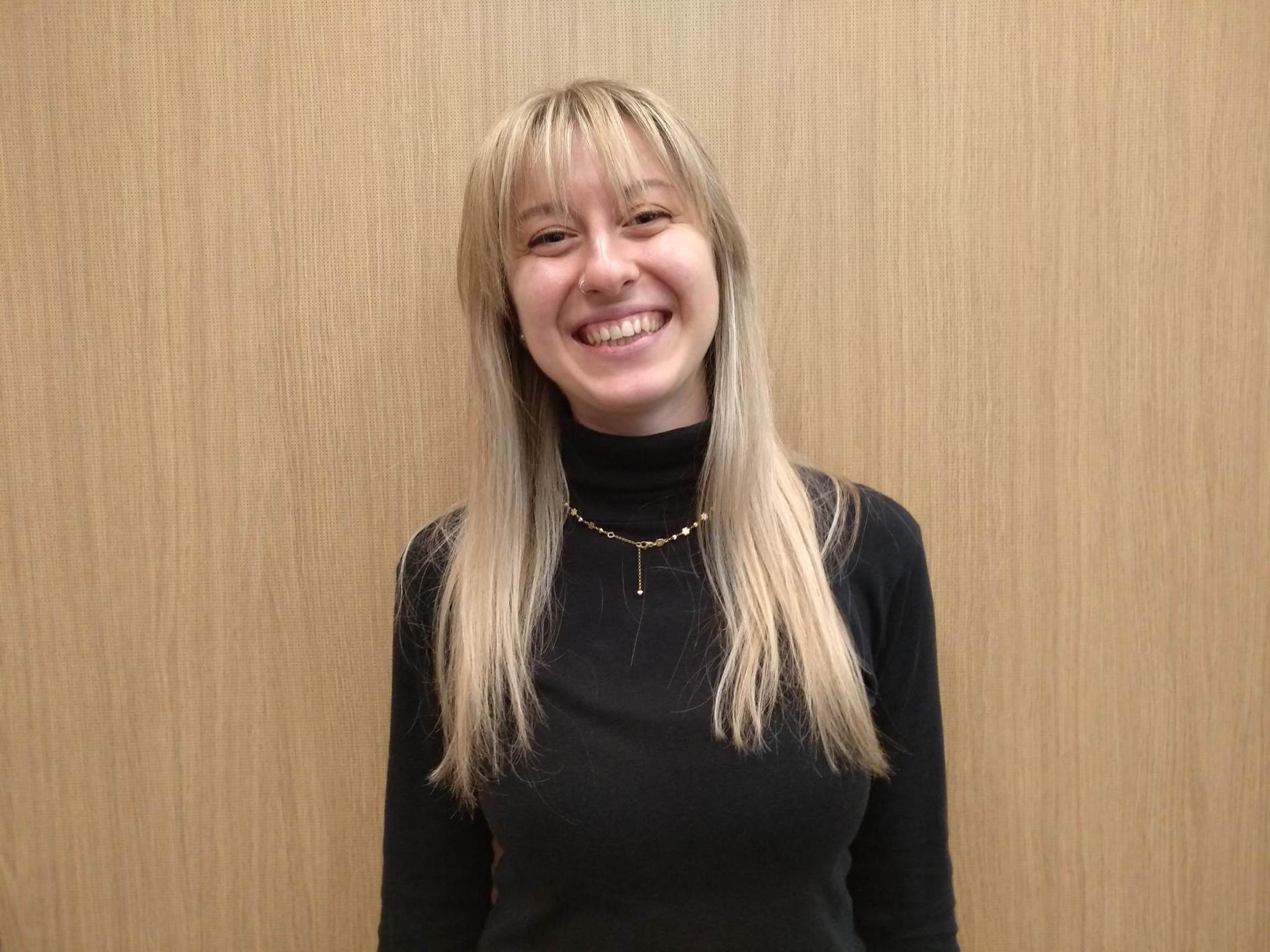
Name and surname: Beatrice Scambi
Project: YES! Young Entrepreneurs Succeed
Quote: "There is a strong need to support and mentoring youngsters in order for them to feel motivated, inspired and excited to enter the world of work. In addition to this, creating a network is essential for youngsters to feel part of something bigger. Let's create a sense of community, let's invest our energy in education and training!"
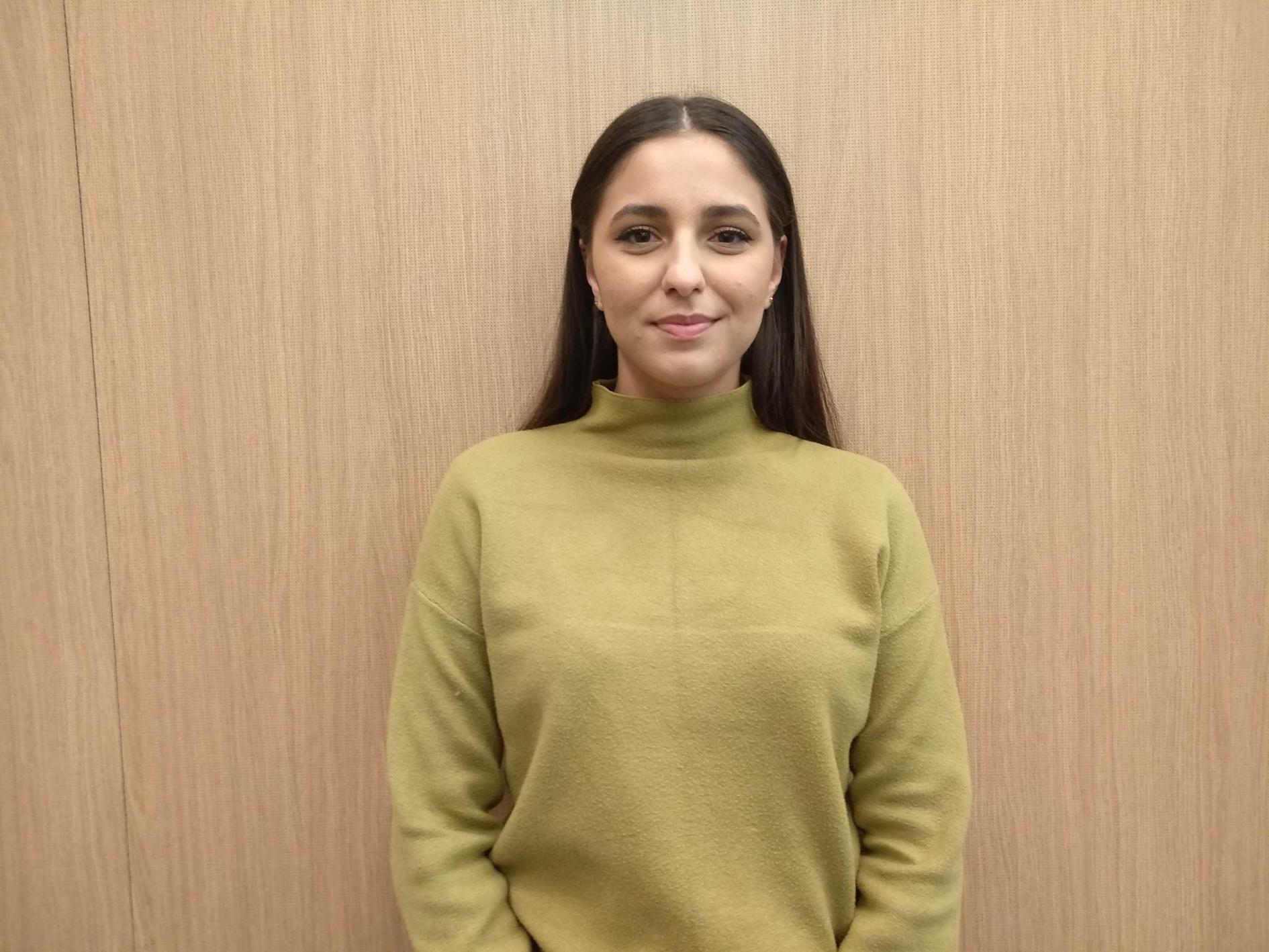
Name and surname: Anna Saroukou
Project: YOUTHShare, A Place for Youth in Mediterranean EEA: Resilient and Sharing Economies for NEETs
Quote: "I come from a place with very few opportunities regarding job choices and personal development, and one of the biggest issues is that places like this tend to get abandoned (especially by the youth). It is more than necessary for the young people not to leave these places behind, therefore local economy needs a boost by applying both: i) creating opportunities and job positions related to unknown and new (for these places) sectors and ii) maintaining the existing job positions alive, strengthening the cultural identity."
Name and surname: Ciara McFadden
Project: Cowork4YOUTH
Quote: "One of the main findings from our research is that NEETs are an extremely heterogeneous group and policies need to be tailored according to the specific needs of the individuals but also the country and region. There are wide disparities in the labour market both between European countries but also within, particularly in rural and remote regions. More research is needed on how to engage economically inactive youth and how emerging labour market trends such as remote working and the green transition could impact NEETs."
Name and surname: Erika Margevičiūtė
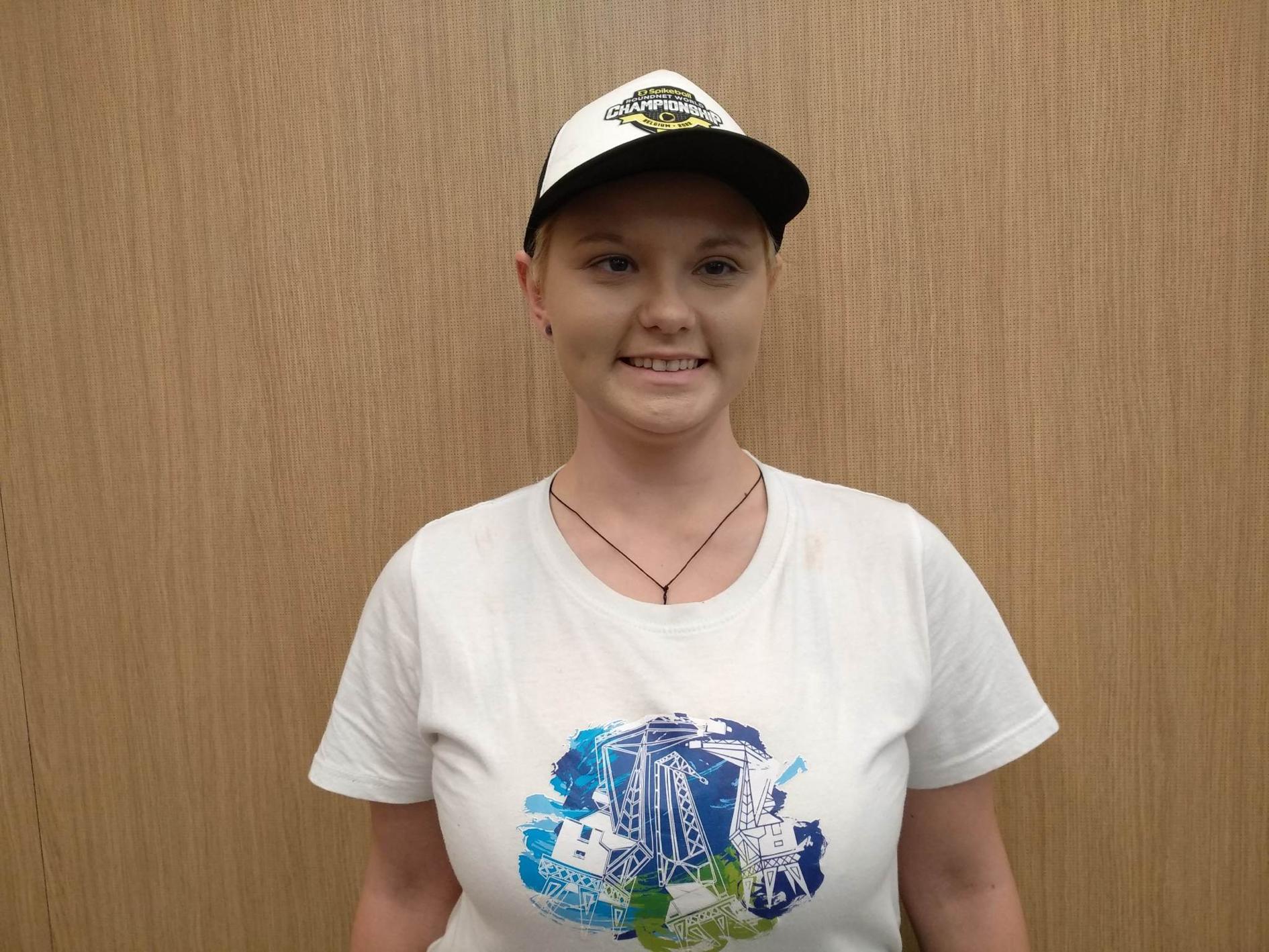
Project: Direction: Employment
Quote: "I'm a member of the LGBTQ community and being invited to this course to test myself felt really like support. To be honest, this relatively short course on IT was more of an introduction to the field of IT, which made me realise whether it's for me and what I would be best suited to, whether it's web design, front-end or back-end, but unfortunately, the skills I've acquired aren't enough for my employers to employ me. Anyway, I am grateful for the opportunity!”
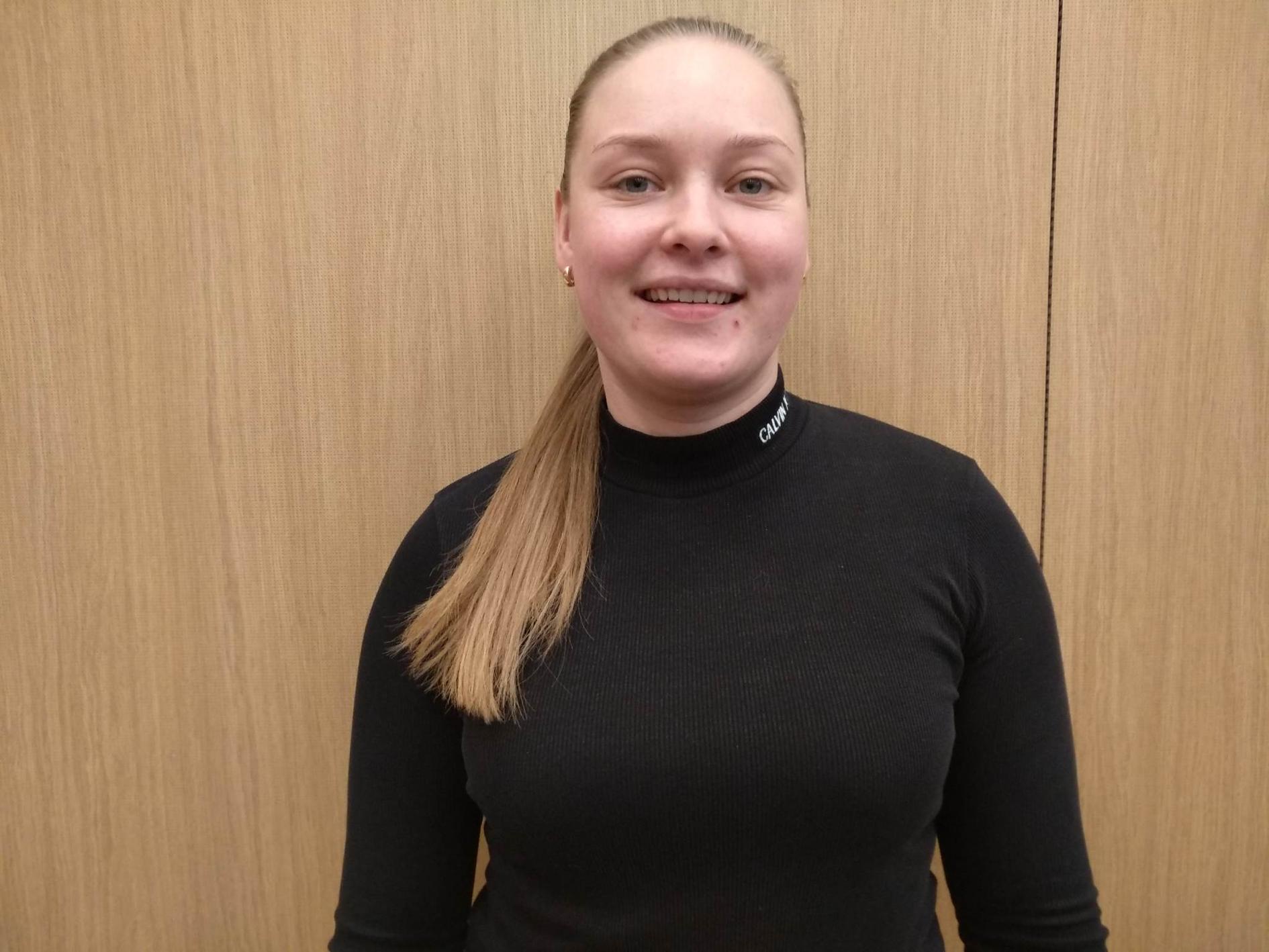
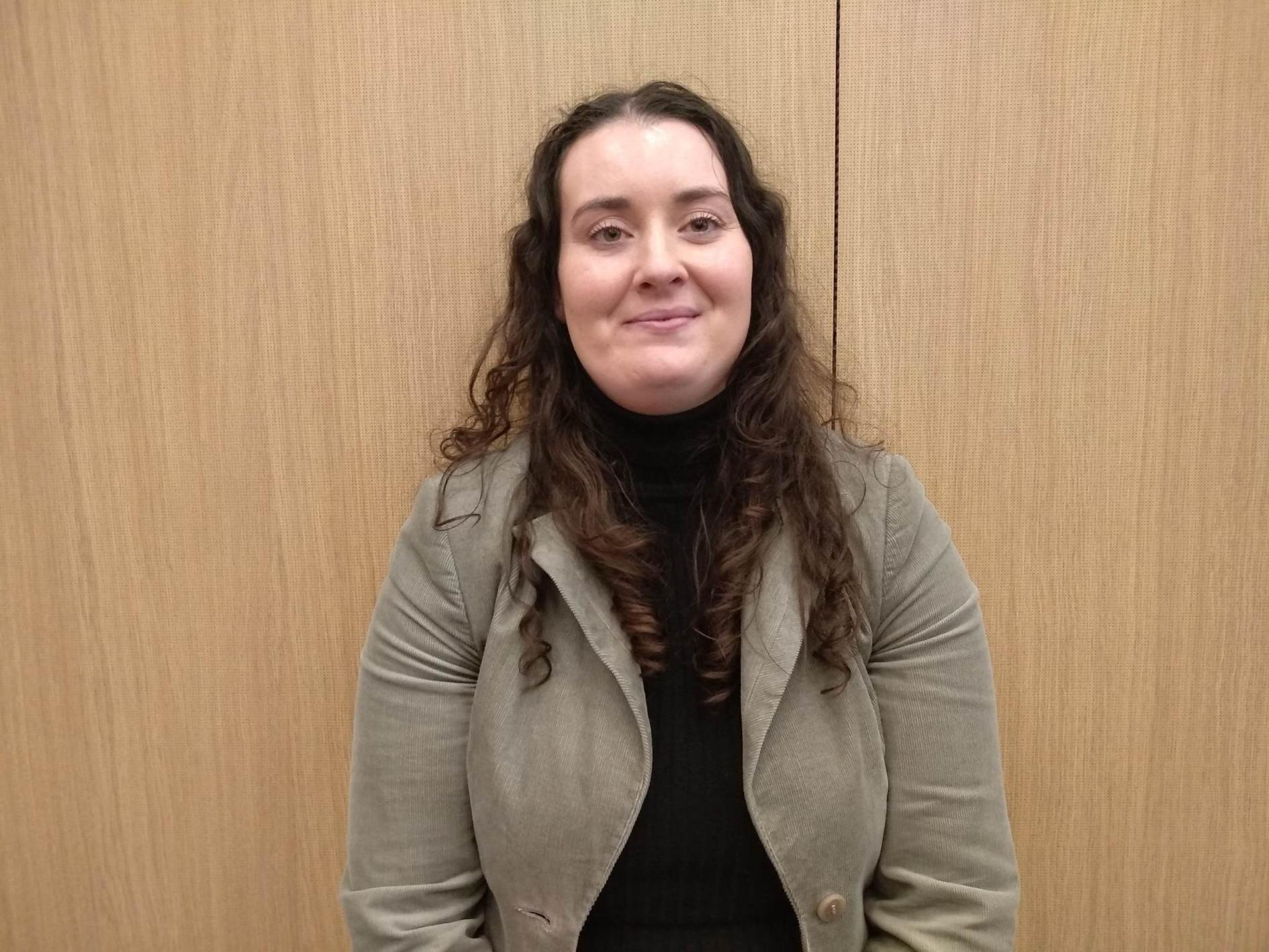
Name and surname: Paulina Pojawis
Project: SEPAL, Supporting Employment Platform through Apprenticeship Learning
Quote: "We, the youth, are very grateful for all projects and possibilities available. There are already so many great projects and findings on national levels, that other projects can learn from. That being said, we need more- more support, more projects and more initiatives"

Name and surname: Gabor Pribitek

Project: L.I.K.E., Life Investment is the Key to Employment
Quote: "Youth with disabilities needs to be recognised in the labour markets. We need support and assistance, but also feeling that we belong and that we are part of the team, just like any other employee"
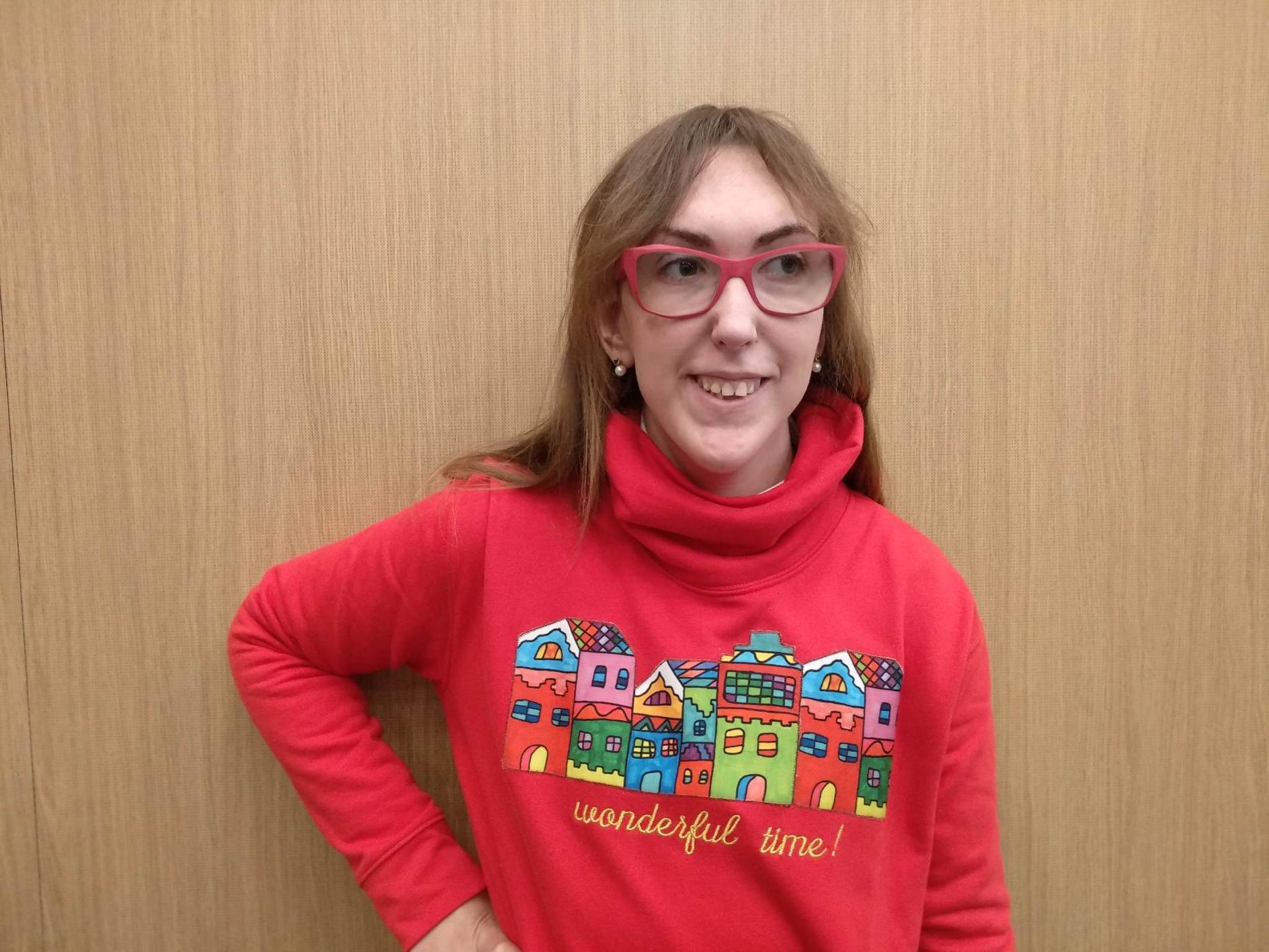
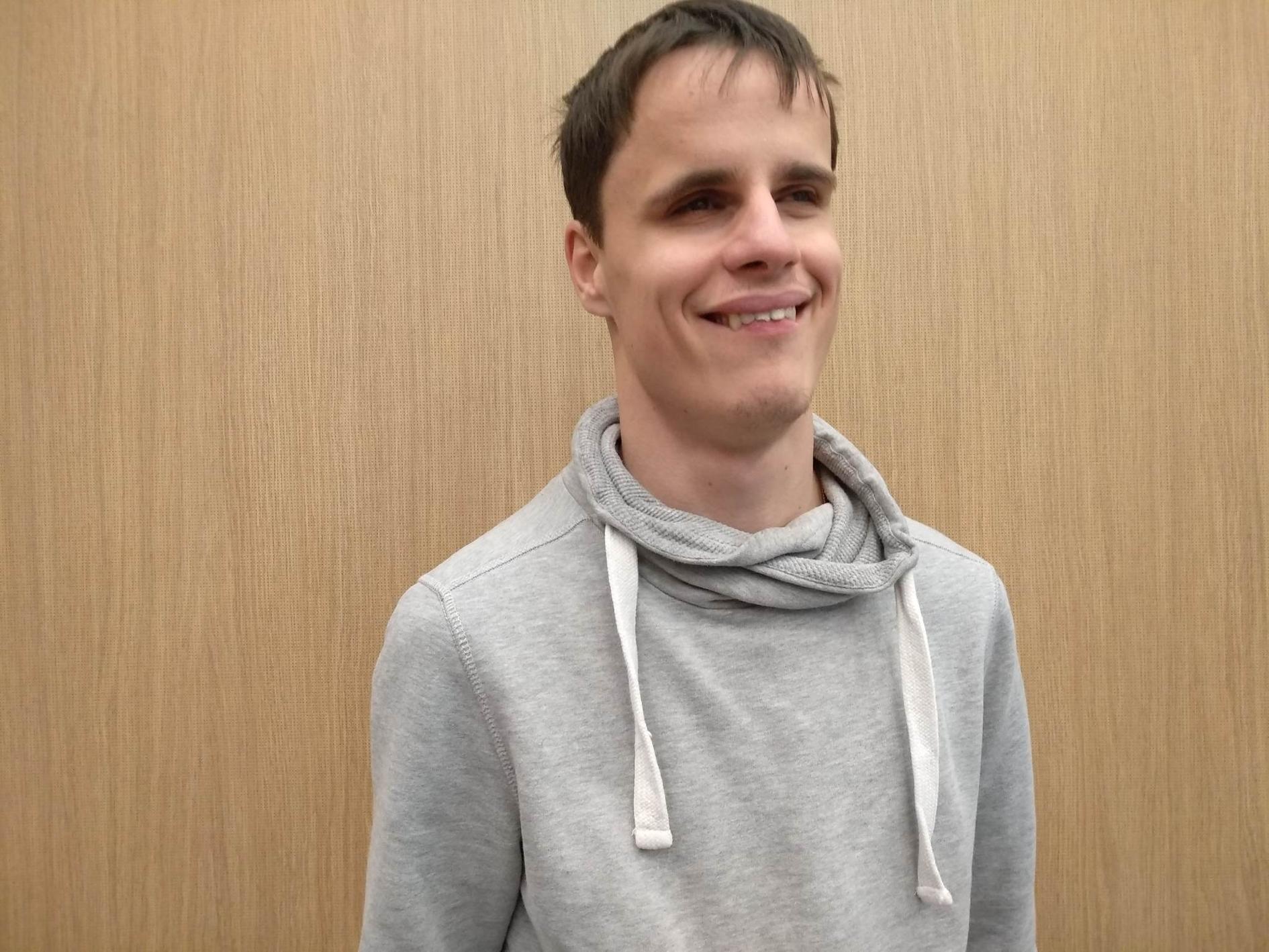
Name and surname: Maria Prats
Project: YES! Young Entrepreneurs Succeed
Quote: "I found it very interesting other young entrepreneurs from different countries share our ideas. I would have liked to have had the opportunity to meet companies and people who are sponsors of projects like mine."
Name and surname: Marina Kyriakou
Project: YENESIS
Quote: "I always knew that I wanted to be a green architect, someone who contributes to a stainable living in our urban communities, but it was very challenging to practice this on my small island. The YENESIS project provided me with this opportunity to get more hands-on experience, to travel and see good practices and reimagine myself as a professional in sustainable development"
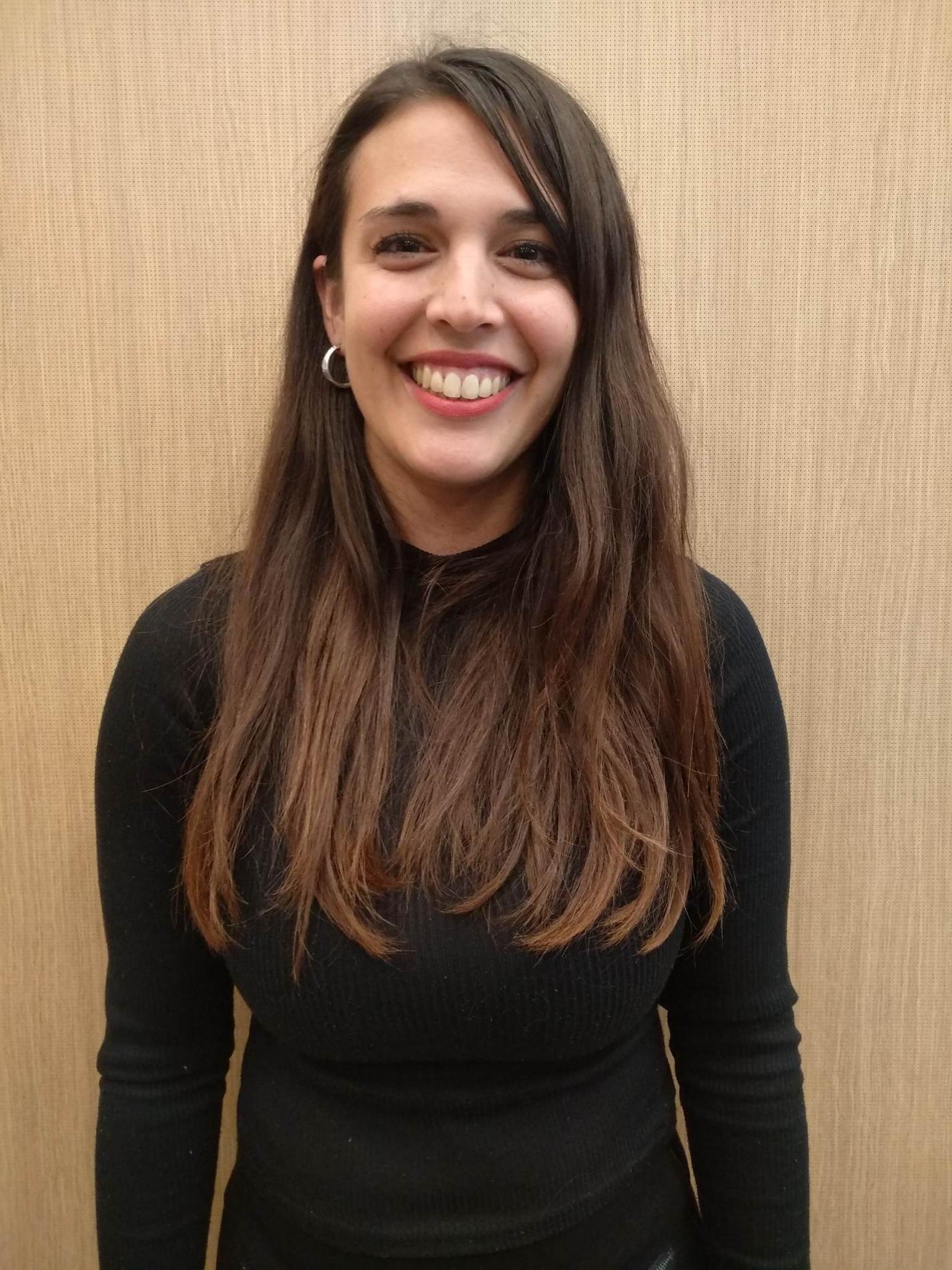
Name and surname: Ozgur Tas
Project: YES! Young Entrepreneurs Succeed
At first, employment coaching sessions enabled me to walk through the job identification process with the use of powerful tools such as my SWOT analysis and a 6-months action plan with practical steps to follow for successful job seeking. As a result, I found a job at a Greek restaurant as a chef, which was my goal.
Once my priorities and goal setting changed, I attended business coaching sessions so as to be supported on my way of setting up my own business idea (restaurant) along with mentoring under which I was matched with a Greek, English-speaking mentor. At the moment, my coach and I are working on a "readiness plan" which will hopefully facilitate my access to funding and will allow me to make my dreams come true.
Quote: "Being a refugee, I have experienced several moments of distress and anxiety, which were further exacerbated by my effort to enter the labour market and then the entrepreneurial field so as to afford life and be able to stand on my feet again. Similar emotions and situations apply to most persons with a refugee background. Having components on mental well-being in projects and services, adjusted to the needs of a refugee, where possible, is essential.
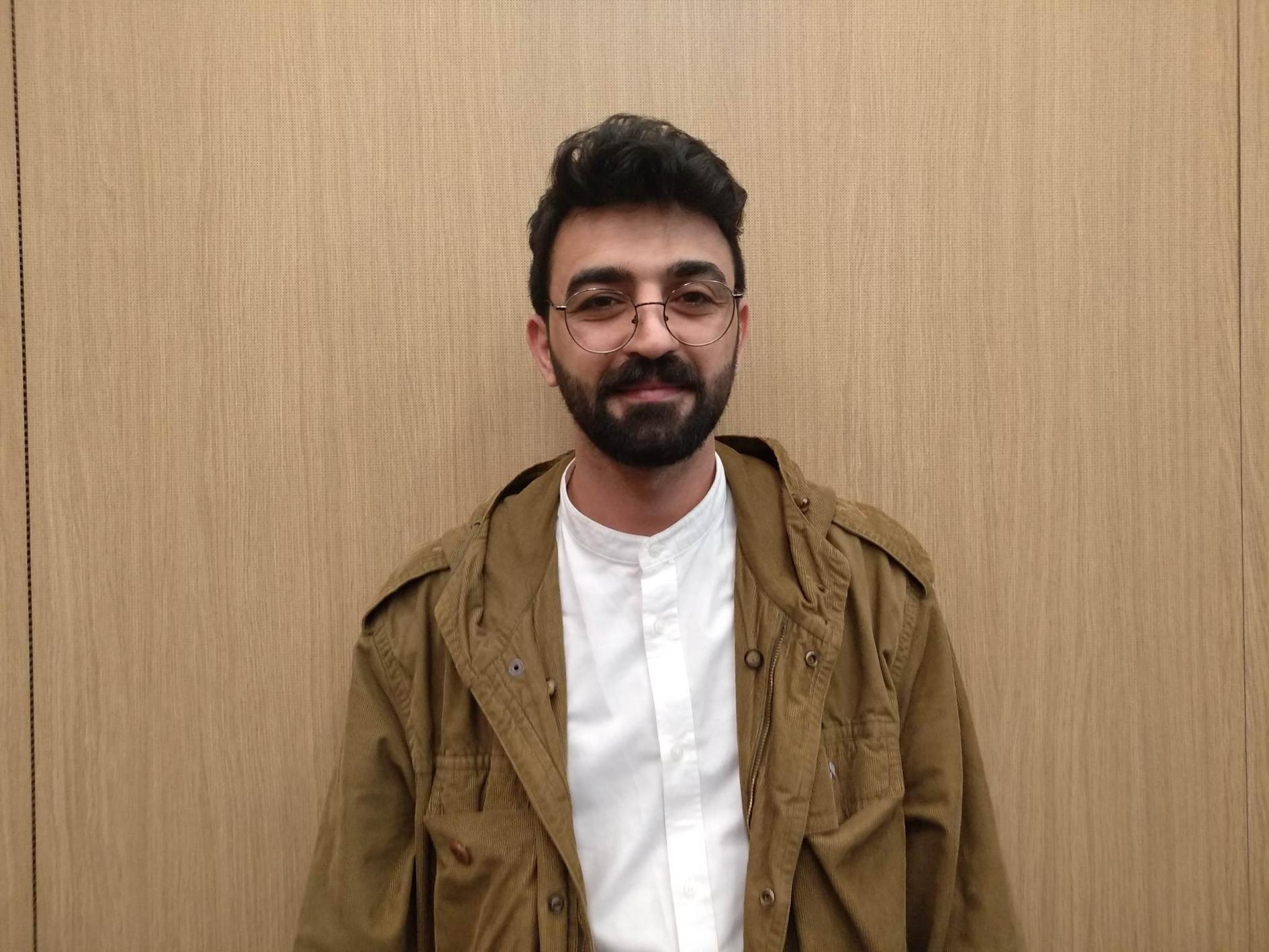
No one chooses to become a refugee. Therefore, special attention should be given to this target group. More projects and programmes should include people with a refugee background, both as beneficiaries and as coaches/mentors/staff members. Moreover, refugees usually lack a supportive environment in the reception country. Thus, the issue of networking and having "key persons" as intermediaries informing them about existing services and liaising them with actors who run projects and offer services targeting them, is of major importance.
Language and cultural issues could often prove barriers in the process of finding a job. Learning the language as part of the job training and running awareness-raising campaigns to enterprises and employers for the recruitment of refugees, could be an option. Asides from the profile of someone with a refugee background, I would also stress the importance of having longer coaching and mentoring programmes which could also last even during the first months after identifying a job. This would provide deeper guidance and enhancement of skills, especially soft ones.
Additionally, in the case of NEETs who want to become entrepreneurs, I would highlight the need for financial support through funding opportunities/trainings on ways to access funding. Last but not least, considering the broadening of the NEETs' age ranges from 29 to 35 could prove meaningful, especially in view of the difficulties youth face in entering the labour market.

Name and surname: Petar Terziev
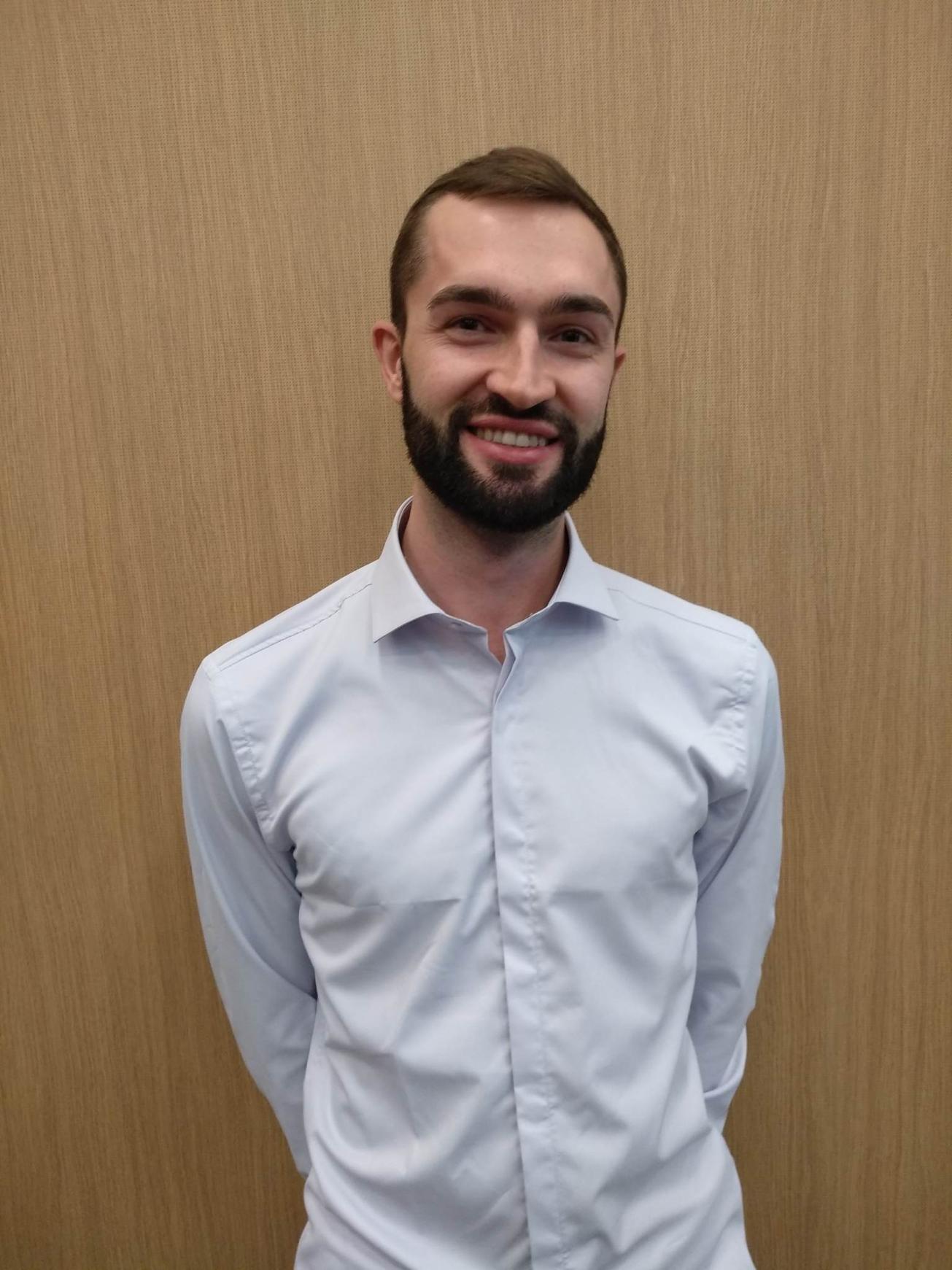
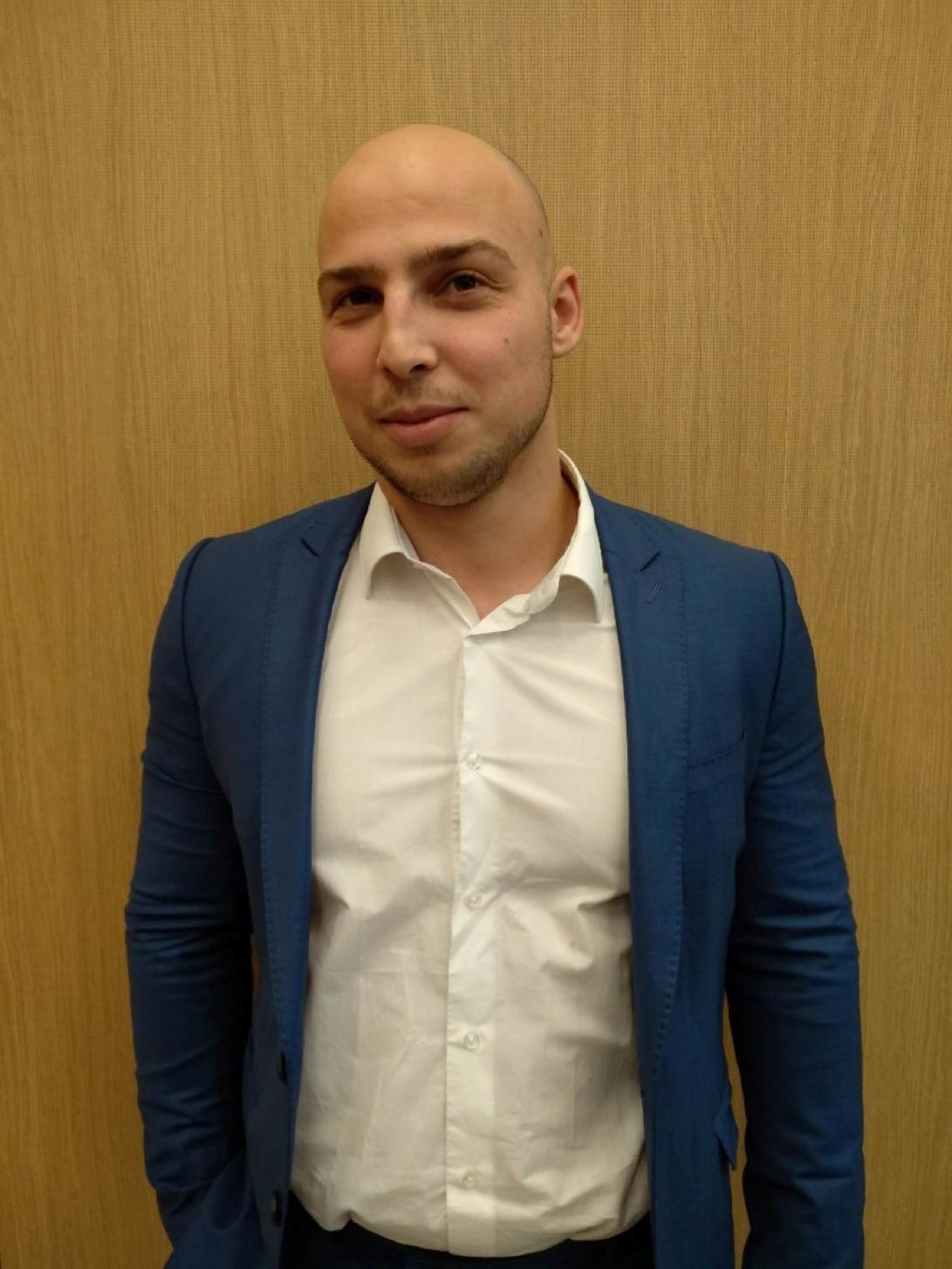
Project: Lost Millennials
Quote: "To solve the challenges of the future, it is vital that the youth of Europe become active participants in the democratic deliberation and decision-making process. By engaging in the democratic process, young people can contribute their unique perspectives and ideas and help shape the decisions that will impact their future."
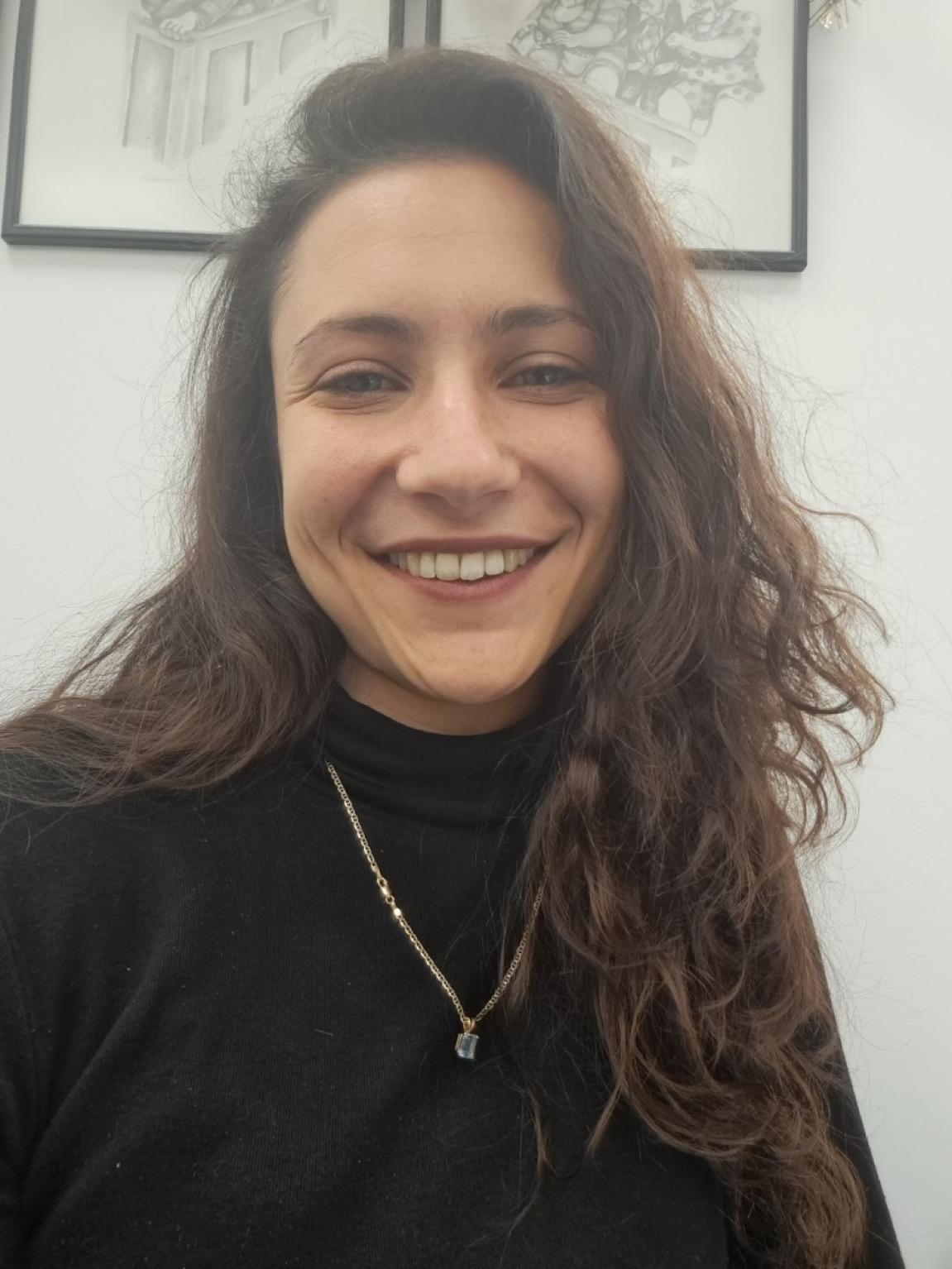
Name and surname: Renārs Kalniņš
Project: Go Remote

The project's aim is to give youth basic, overall tools applied to remote/hybrid labour market which come in handy in any remote/hybrid work as well as ability to participate in specialty - one of three courses (Customer Support, Data Input, Digital Marketing) aimed to give the neccessary knowledge in these fields to later apply to potential employers via Speed Dating Job interviews organised by Visas Iespējas, in the latter part of the project. Before Speed Dating Interviews there are planned workshops for CV, motivational letters preparement and couching sessions for each participant.
Quote: "Mental health is just as important as physical health, especially for young people entering the labor market. Taking care of one's mental well-being is not a luxury, it is a necessity for overall health and success in both personal and professional endeavors especially when starting in a new sector or going trough carrer change."
Name and surname: Androniki Nyktari
Project: DARE, Day One Alliance for Employment
The aim of the project was to entail Job Labs and Entrepreneurship Labs for 1.400 young people not in education, employment, or training. A system of validation with the Open Badges system. Quote: ''During the project, social situations worldwide were in turmoil as Covid-19 spread. As I was unemployed and there was little chance of finding a job easily, I felt many days of despair, sadness and disappointment about the future. The subject of the project gave me a bright outlook. I felt there was still hope for everything. I'm glad I found it so serendipitously, and I hope that more projects like this will come''
We, the participants of the YouthTOK workshops, would like to call upon including youth perspective on the issues related to youth participation in the labour market. In particular:
• We want to stress the importance of mental well-being and youth participation in the labour market. NEETs are, in particular, exposed to distress due to their difficulty in finding employment, worried about their future career options and ability to make a living. Further, the mental well-being of youth was negatively impacted by the COVID-19 pandemic, which increased the hardships of job-seeking. Further, reductions in social safety nets, dysfunctional governments, and flexible, precarious employment contracts combined with self-employment negatively impact the mental well-being of youth (in the labour market).
We recommend maintaining (or introducing) components on mental well-being in existing projects/ programmes/ actions/ policies and services, where possible, developing actions explicitly addressing that issue. Notably, the possible solutions could include: including components on mental well-being in the career guidance activities, including mental well-being in the learning curriculum, developing actions/ programmes/ projects teaching youth about stress management, creating spaces/ youth support groups to get resilience and finally,, involve companies to provide mental- health friendly working environments.
• We would like to underline the importance of work-life & care balance in youth participation in the labour market. The largest subgroup of NEETs (25%) in Europe are those with family and caring responsibilities, which hamper entering the labour market or/ and having stable career development. These NEETs are particularly exposed to less favourable working conditions and difficulty making a living—further, precarious working conditions of the youth may negatively impact work-life balance.
We recommend ensuring the existing solution accommodates young people with caring responsibilities. Notably, a possible solution could include flexibility to allow the participation in projects/ programmes/ actions of youth with caring responsibilities, counselling on management and strategies for juggling salary work and care work.
• We want to acknowledge that starting a business as a young adult still remains an issue. While some youth have few possibilities of obtaining starting capital, there are possibilities but little knowledge about existing solutions in other cases. Further, the youth's knowledge about running a business, local economy needs and company management still needs to be deepened. Notably, the youth, starting their first business has a high chance of failure and starting a small business and competing against mature companies puts the youth in a disadvantaged position. Further, learning how to manage a company and making own position on labour is, by default, a long and challenging process, especially in times of economic instability and a drop in local citizens' purchasing power due to global economic events. Considering these difficulties, we want to stress the importance of networking and mentoring activities, supporting youth at the beginning o their hardship. We recommend continuing and creating projects/ programmes/ policies/ activities/ supporting youth in starting their businesses aimed at sharing knowledge and experiences, awareness raising on funding possibilities, connecting youth with investors, informing on legal obligations and possibilities on running the business, connecting with an organisation supporting youth in running the business, acting as "middle-man" between youth and investors. We want to stress that special attention should be paid to supporting young females in setting up their businesses and developing social enterprises among the youth.
• We want to stress that skills mitch-match remains an issue in youth employment. While there are deficiencies in youth education to match labour market needs in some cases, in other situations, there are surpluses of education for youth without possibilities of quality employment and trapped in under-employment. We see that there is a need for learning possibilities, especially providing practical knowledge (not theory only) and soft skills, up-todate digital knowledge, involvement of companies and their economy-based skills in learning curriculum, skills for how to start and run a business, and possibilities of vocational education. Further, securing sufficient financial support for youth training, providing quality teaching and setting fair entry requirements for educational courses is needed.
• We want to acknowledge that youth entry into the "real" labour market remains challenging. We experience difficulties using projects/ skills from projects in the "real" labour market and transitioning to professional careers. There are still significant entry barriers to entry into the labour market, such as high requirements for entry-level jobs, not enough paid traineeships possibilities to get the experience, only seasonal opportunities not guaranteeing income resilience, few jobs offered for people working in remote areas, few legal awareness about workers rights aimed at preventing youth workers exploitation, obstacles for minority groups, companies reluctance to hire youth workers.
• We want to stress that all actions should consider youth with specific needs. We recognise precisely two groups that, in our opinion, should have tailored approaches:
• People with disabilities- NEETs with an illness or disability that restricted their access to the labour market. There will be a variety of different and specific needs that need to be addressed accordingly, such as assisting, technological solutions, and training for people working with youth with disabilities on how to behave and include their peers with disabilities.
• Refugees and migrants- we recognise the specific needs of youth having language obstacles in the new working environments and significant distress due to unexpected changes in their life situation, both having a considerable impact on their working situation. We would like to stress that resolving these issues is critical to ensure their sense of safety, belonging in a new environment, dignity and the possibility of full engagement in social life in a new place.
We recommend continuing and starting activities/ projects/ programmes/ policies that ensure fair inclusion of these groups in the labour market. We would like to stress the need for continued funding and assistance for these groups, not only until they find their first employment/ set up a business but also once their start employment to ensure resilience and sustainability of the current situation. Further, some solutions could include actions specifically addressing and connecting these groups, such as language possibilities for migrants and refugees or creating a support network or/ and talent centres dedicated to these groups.
• Finally, we would suggest avoiding the "one solution fits all" approach as the guiding principle for all activities/ projects/ programmes. NEETs are an extremely heterogenous group in terms of their characteristics and background: education, social class and family background, education, skills, employment (inexperience) and future career pathways ( as white-collar and blue-collar workers), income status, gender, disabilities, migrant and refugee background.
Further, there are substantial differences across Europe (Western vs Eastern Europe), countries and even specific regions, urban and rural differences. In some cases, identification of NEETs can be difficult for those who are economically inactive and not registered with a public employment service. These groups may be challenging to mobilise and engage. Therefore, we call for adjusting solutions to specific NEETs group in each project/ programme/ policy.
While the agenda allows a brief and on-the-point presentation, it was impossible to involve all participants' ideas, thoughts and precise propositions. These have been vocalised during workshops and within their high-quality written outputs.
Participants debated about the differences, not only between them but between youth in the labour market. They talked about disparities: gender, income, disability, migration status and millions of others! Valentina, from Romania, pointed out to substantial rural-urban differences and impact on the labour market:
“While in big cities, young graduates can more easily find a suitable job, in the rest of the country, this process can take much longer. Young people end up working in unfulfilling jobs or in low-paid jobs far from home.”
Marina, from Cyprus, also pointed out the spatial limitations to the participation in the labour market:
"It is important to address the island-specific needs more specifically in training. My experience, was an island-specific program; it would have been good to have a workshop or training to identify the specificities of islands in regards to green jobs”

Beatrice from Italy elaborated on another form of spatial difficulty, discussing that being placed in a remote location can cause a feeling of isolation:
"The fact of being isolated could represent a strength for the peculiarity of the place but also a problem for people who want to reach it easily"
Valentina added another important point on another form of inequality:
"Roma face a higher rate of unemployment. Those employed often work in low-quality jobs, and the pay gap between Roma and non-Roma is almost 50%."
During the workshops, participants discussed difficulties in their professions and differences in requirements, duties and skills needed. Anna, from Greece, shared an interesting perspective on the profession that is not commonly known, as it is less and less attended:
"Jobs like sponge diving, which can keep the tradition alive, must not remain vulnerable in a constantly technologically developing world. The reason for the importance of the reentrance of the sponge diving job is that it can be done regardless of one's educational outcome and is a peculiar job found in certain places (…) by providing contemporary diving equipment and appropriate training, most of the problems can be solved, turning this risky job position into a beneficiary and safe one"
Beatrice, follow-up on the difficulties in maintaining a job related to non-essential services:
"It's been very hard in a period such as 2022 to be able to find a job, especially in the yoga field, which is a leisure and non-essential activity."
Maria, from Spain, added her perspective as a thriving entrepreneur:
"At the beginning, there were many obstacles: high production cost, Little profit margin, difficulties in access to financing, limmited budget and diffusion".
Ozgur, soon to be world-famous chef, added his considerations on making a name in the business:
“How long does it take to create a brand? 3 years or 10 years ? Of course, the answer to this question can may vary significantly but, it depends on what the venture plan is, the entrepreneur's competence and how uses the tools. Sadly, educations and trainings help a lot but they are not enough to create a brand. Starting a startup/venture can be a big step, but the brand creation process will be long and painful.”
Androniki, from Greece, summarised the general struggles in the labour market:
"The educational system of many countries is more theoretical instead of practical. The systems do not prepare young people with the right equipment and tools to be ready for the job market. He is not even guiding the youth properly. Labour market advisers are absent from schools. The choice of their profession until now is based on the social stereotypes that the family environment transmits to the child."
Concerning education and employment, Ciara, from Ireland, pointed out to the difficulty in NEET identification and reaching them:
“Identifying NEETs in the first instance is challenging, particularly for those who are economically inactive and not registered with a public employment service. This issue is important because if you cannot identify the person, you cannot provide them with help, offer job opportunities etc. Therefore, outreach services will be required. There are some programmes which have been working on this issue and, for example, have used social media to target young unemployed people.”
Participants discussed who NEET are, how they reach them, and ideal candidates in the labour market. Renars, from Latvia, provided a clever perspective on employers chasing "holy grails", instead trying to employ youth:
“More often than not employers ask for a degree or experience of 2+ years in certain field which young people may not have. But they may have other skills gained from various experiences elsewhere, perhaps. So, it would be good to have some kind of unified metric to accurately show off some of them. Employers always want to fill the position ASAP with the best possible candidate, but is that always the best option?"

Then, he continued on another employability obstacle- connections:
"I get that employers and HR department are struggling to find the appropriate candidates to fill the gap so they feel safer to rely on existing employees to recommend anyone suitable for position before looking to take one from "outside". But it is a big issue for young people trying to fill that position when "looking in from outside" without any good connections."
Further, Androniki provided a detailed and insightful analysis of the reasons for youth unemployment in Cyprus and referred to the issues relevant to the wider, European context:
“Youth unemployment in Cyprus is due to structural, institutional, economic, and political factors. All these factors weaken the position of young people in the labor market, as the labor market is shrinking, there is a mismatch between the skills available to young people and the skills sought by employers. Young people are trapped between unemployment and undeclared work, without being able to gain meaningful work experience and practical skills to strengthen their position in the labor market.
The skills mismatch between young people's skills and the skills that firms require from workers is considered a factor causing youth unemployment. On the one hand, there are many young people who are looking for work, but companies do not hire them as they are looking for candidates who have work experience.
Over-education is another issue that prevents young people from finding full-time work. At this point there is a mismatch between the supply of education that individuals acquire and the skills that the labor market needs. This phenomenon can be observed in many countries around the world. However, this fact has its consequences, as while individuals are studying, they do not have the time to work full-time and in a very demanding job; thus, the individual reaches a point where he or she lacks work experience, which is a much more important factor in the context of competition in the labor market. Work experience is challenging to obtain, as young people move between unemployment and casual employment, usually well below their skills and qualifications and usually in areas unrelated to their studies. On the other hand, however, not having an advanced degree is seen as a disadvantage for the individual (…) The problem is that the more education young people receive, the more difficult it is to employ them.”
During participants' discussions, it became clear that some youth need support more than others due to their specific life situations. Gabor, from Hungary, shared his perspective on employment as a person with a disability:
"It is difficult for young people who come with different problems to separate themselves from their problem and therefore find it difficult to create relationships/dissociate from their own problem/this makes it difficult for them to achieve their goals (anxious young people, job search)."
Ozgur added his perspective as a working refugee. During the workshop, Ozgur had a strong feeling of the mission to make refugees' perspectives visible and kept referring to that "this cause is greater than himself":
“It is a big problem for a job seeker refugee not knowing the native language. While this significantly reduces the probability of finding a job, also cultural integration negatively affects. Because working is more than just making money. Having a job also improves one's structure and social relationships and makes one feel needed. Having a job gives one a sense of participation.
Learning a language can take more than a year with a full education, there is a vicious circle here; you can't have a job without knowing the national language also you can't improve with language without working and being social and having full-time language education affects the job seeking process.”

While participants discussed problems, issues and obstacles, they also were very proactive and suggested measurable solutions. Ozgur shared his ideas on working refugees:
“Part-time job opportunities could be provided while Refugees take language courses. For example, providing regular part-time job opportunities can be part of language courses. Language Centers can include an office for these programs.”
Further, he had the idea how to utilise refugees talents:
“A Refugee Talent Center can be set up, regularly organizing company visits, work experience programs and other work-related events. All of these activities are to increase Refugee NEETs’ chances of getting a job. Also job counselling and mentoring programmes shall be included into the schedule of the Refugee Talent Center. Companies or institutions involved in this project can be encouraged by the government.”
Valentina proposed some other tangible solutions, with "reality-check":
"Involvement of local public authorities in creating counselling and training services for developing skills needed for labour market insertion.Providing at public authority level counselling and training services for developing skills needed for labour market insertion."
Androniki continued on the solutions to education:
“In recent years, there have been actions to strengthen vocational training, but there is further scope for development. Further strengthening the vocational aspect of the education system through more elaborate and varied programs mainly targeting the 15-25 age group should minimize the risk of unemployment for many young people.”

As the timer resets at the beginning of each year, we are given another 365 chances to implement the changes we want to see in the world, and in ourselves. Besides the personal resolutions for 2023, professional development is becoming more of a priority for many, who face challenges in adapting to a newly-shaped labour market.
Taking small steps to overcome the effects imposed by the last 3 years of global pandemic, the world’s institutions are addressing the professional gaps, creating new opportunities for employees to add value to their careers. The European Comission has dedicated 2022 to promoting youth, a generation whose power contributes to building a stronger and greener future. From the perspective of SEPAL Pro project, last year has provided us with a favorable context to share what we’ve learned so far through our journey.
In The European Year of Youth, SEPAL Pro partners have come to the conclusion that many training programs for NEETs do not focus on emotional and resilience skills development, as well as entrepreneurial mindset. Taking into account that stress and negative experiences are part of our everyday lives, especially in the business environment, we believe that working on self-empowerment, empathy, gratitude, positive thinking and non-judgement can stimulate the ability to overcome difficult experiences faster, maintaining a good mental health at the same time. Moreover, we also add that the lack of vocational orientation in schools can lead to an improper understanding of one’s talents and skills, which will later impact the chances of finding a suitable job.
In addition to achieving the 2022 EYY goals, the European etwork SFE CEFEC has facilitated our NEETs to work alongside mentors, in order to discuss their ideas and develop business plans for a greener and more sustainable future environment. During the Social Firms Europe Academy, which took place in may in Šiauliai, Lithuania, youngsters interested in green economy also participated in debates regarding 5 main topics: wood recycling, IT reuse, textile reuse and women’s empowerment, bio market, green businesses and CO2 neutrality.
So, even before 2023 was announced as The European Year of Skills, SEPAL Pro had already emphasized a direction of work to facilitate the transition towards achieveing the new goals of the European Comission. The announcement made by President Ursula von der Leyen in her 2022 State of the Union address, comes after an in-depth statistical analysis. According to the EU’s data, only 6 out of 10 adults in the european space have basic digital skills, while only 37% workers are engaged in regular training programs. To tackle this issue, this year, EU members will work towards promoting learning, upskilling and reskilling opportunities, to meet the demands of a new labour market (European Comission).
In this sense and in the context of celebrating the last days of the European Year of Youth and making the transition to the European Year of Skills, youth ambassadors selected from every country participating in the EEA&Norway Grants projects, met in December 2022 in Brussels, Belgium to build the Agenda for 2023, focusing on the youth perspective on the issue of their participation in the labour market.
As a conclusion, we believe that SEPAL Pro will benefit from a smooth transition in joining The European Year of Skills, as our previous and current work is already focused on helping young NEETs develop their skills, keeping in mind that green economy is at the bottom of building a sustainable future. We wish 2023 to be a flourishing year, with continuous investments in people, no matter their age, because the real changes depend on our ambitions, not numbers.
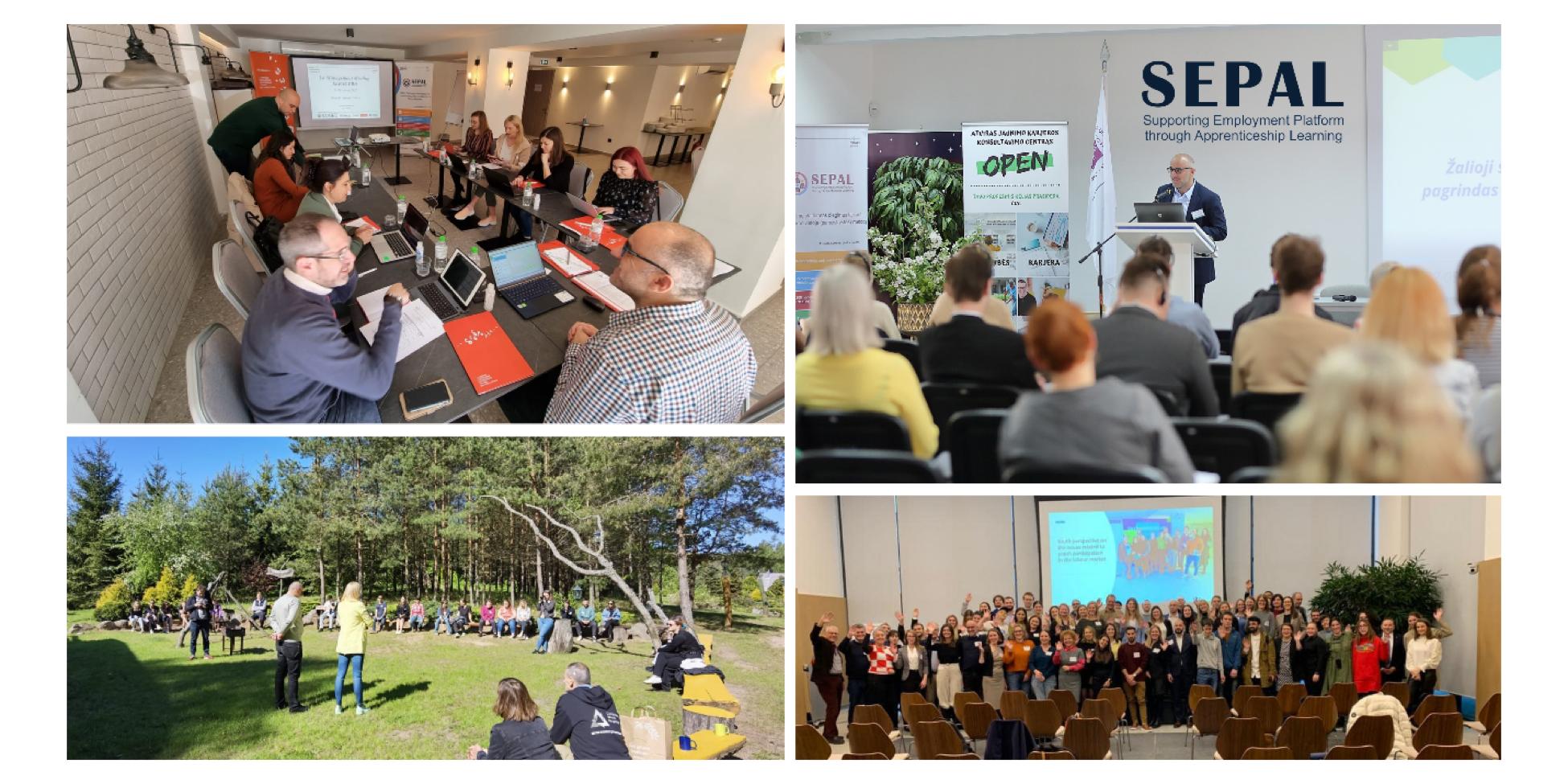
Resources:
European Comission. Commission kick-starts work on the European Year of Skills . 2022. 13 01 2023. https://ec.europa.eu/social/main.jsp?
langId=en&catId=89&newsId=10431&furtherNews=yes
Bucovina Institute
SEPAL PRO Project
Indicatively, the options will include from basic digital office tools, programs for social media marketing and e-shop management, to more highly specialized subjects such as data analytics, artificial intelligence applications, logistics and the adoption of digital technologies in the agricultural sector.
In recent years, significant efforts have been made in Greece regarding skills development practices for unemployed as well as working citizens. A typical example is the “Going Forward” program of the Ministry of Labor and Social Affairs.
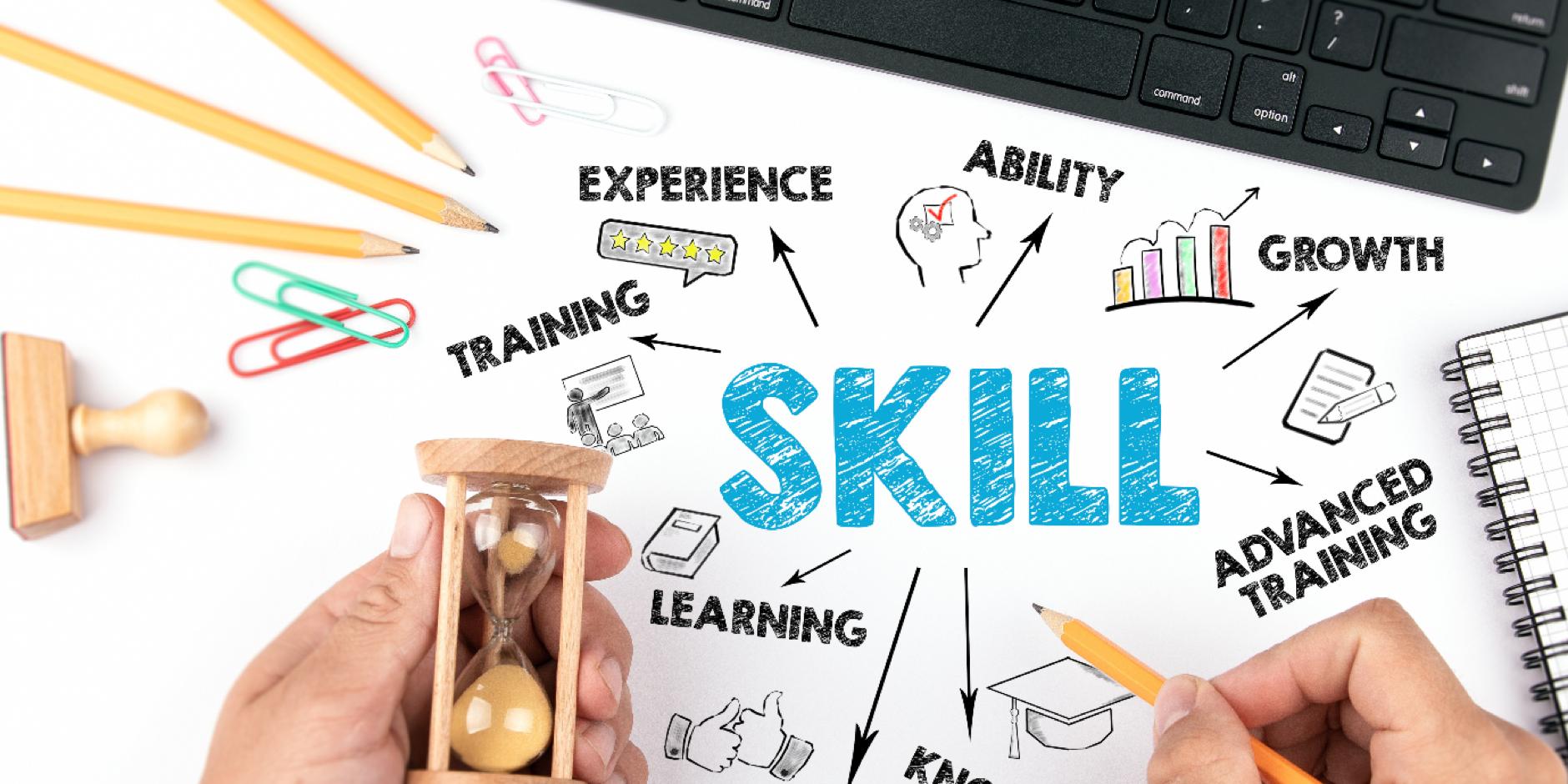
A total of 150,000 workers in all sectors of the economy will have the opportunity to upgrade their skills with the new "Go Forward" Program of the Ministry of Labor and Social Affairs. The implementing body of the program is the Public Employment Service (DYPA) and the funding comes from the resources of the Recovery and Resilience Fund, amounting to 154.5 million euros.
For the first time, DYPA, in collaboration with the Training and Lifelong Learning Centers (KEDiViM) of universities, international technology giants and licensed Lifelong Learning Centers (KDVM), will offer employees a large list of individual training programs with emphasis on digital and "green" skills, from which they will be able to choose, depending on their educational and professional profile.
The aim is for employees to adapt to the requirements of modern trends in the workplace, to upgrade their prospects and consequently to contribute to the modernization of the Greek economy. Each beneficiary will attend a theoretical training program of a total duration of 80 hours (face-to-face and distance learning). Upon completion of the program and the success of the certification of knowledge, the trainee will receive an educational allowance amounting to 5 euros / hour of training. The beneficiaries who will complete the training are obliged to participate in the certification examinations and upon their successful examination they will receive from the certification body they have chosen "Certificate of knowledge and skills”.
The "Go Forward" program is part of the overall policy of the Government and the Ministry of Labor and Social Affairs for the retraining and upgrading of skills of both unemployed and employees. Using European funds, the largest effort to train the workforce in the history of the country has been planned, with the aim that in the coming years 500,000 workers and unemployed citizens will have received a certificate of completion of a training program.
Resource: Website of the Public Employment Service, https://www.dypa.gov.gr/proghramma-pao-mprosta
150,000
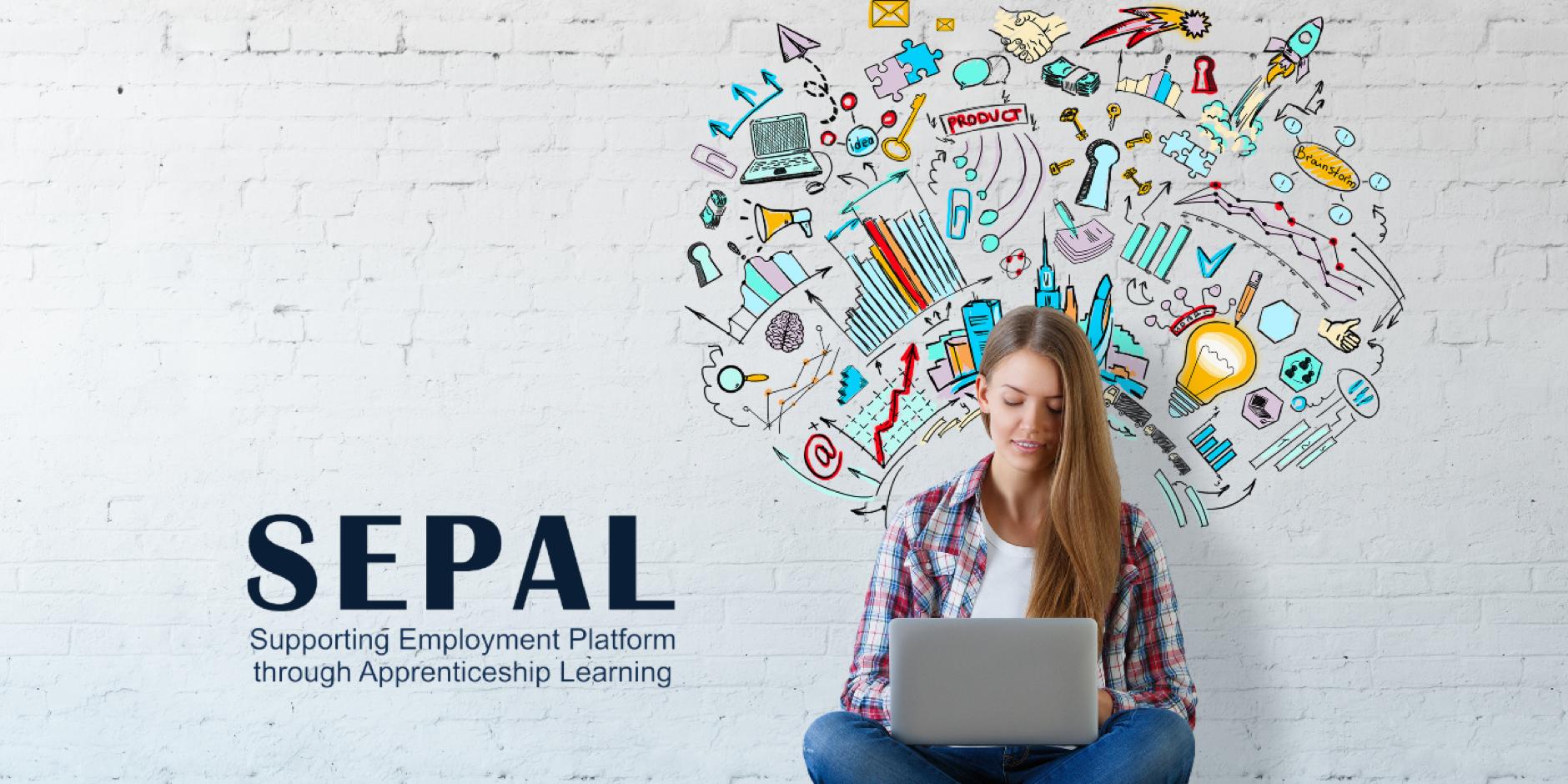
they leave the job after a few months. We need stability. When writing a CV, people often state what they want to get from the workplace, but do not show what they can give us, how they will contribute to the company's well-being.”
"Getting a job is not a dream come true for me, it's just a necessity." – says students and NEETs. "As a student, I understand that you don't need to immediately ask employers for a salary of thousands, first you have to prove your worth, what you can give to the company. A diploma gives you the opportunity to participate in a job interview, but it does not guarantee a job. When you come to a job interview, you must show your strongest skills and prove that you are worthy of this job. In this case, your diploma does not matter, everything depends only on you.”
Discussion on topic "Education is a value, not just a piece of paper(?)" took place in Lithuania, November 2022. Employers, students, NEETs, educators, and teachers, as well as Lithuanian partner ZISPB from project SEPAL, funded by EEA and Norway grants Fund for Youth Employment were invited and sought to find out what the benefits of education (diploma) are, what is the attitude of employers towards students who have just graduated and have no experience, what educators and students think about the education situation.
Key points of the discussion:
"Young people who have just graduated want everything here and now. With no experience, they want to get a high salary right away." - says representatives from business sector. "Young people who have just graduated do not yet know what they want from life, they are constantly changing jobs. We, as employers, invest our time and effort in them, and
"Why don't students know what they want when they finish school? While children are in elementary school, almost all their educational subjects are taught by the same teacher. This means that you work with the same children for four years, you get to know them well and see which qualities are the strongest or weakest and you know what that child needs to discover him(her)self. In higher grades, children study with different teachers, each teacher has many different students, so it is much more difficult to follow the personal needs of each student." – declares teachers
On the first impression, it seems that the employers, young people, and teachers’ opinions contradicts each other, but on the other hand all of them talk about the same things from very different perspective – skills. Employers ask for skills that complement to organization’s values and standards, teachers – personal skills to develop and capacity to recognise strongest and weakest points, and the young people agree upon the most important skills as presenting themselves, ability to be rational, recognise what you are capable of. The discussion was very productive, we are happy to have made new connections and we want to thank all the participants of the discussion for their courage, ideas, activity, and the desire to pave a better way for future generations!
To conclude, the most important thing for Youth in the labour market is SKILLS – looking forward to developing more about it during the Year of Skills – 2023!
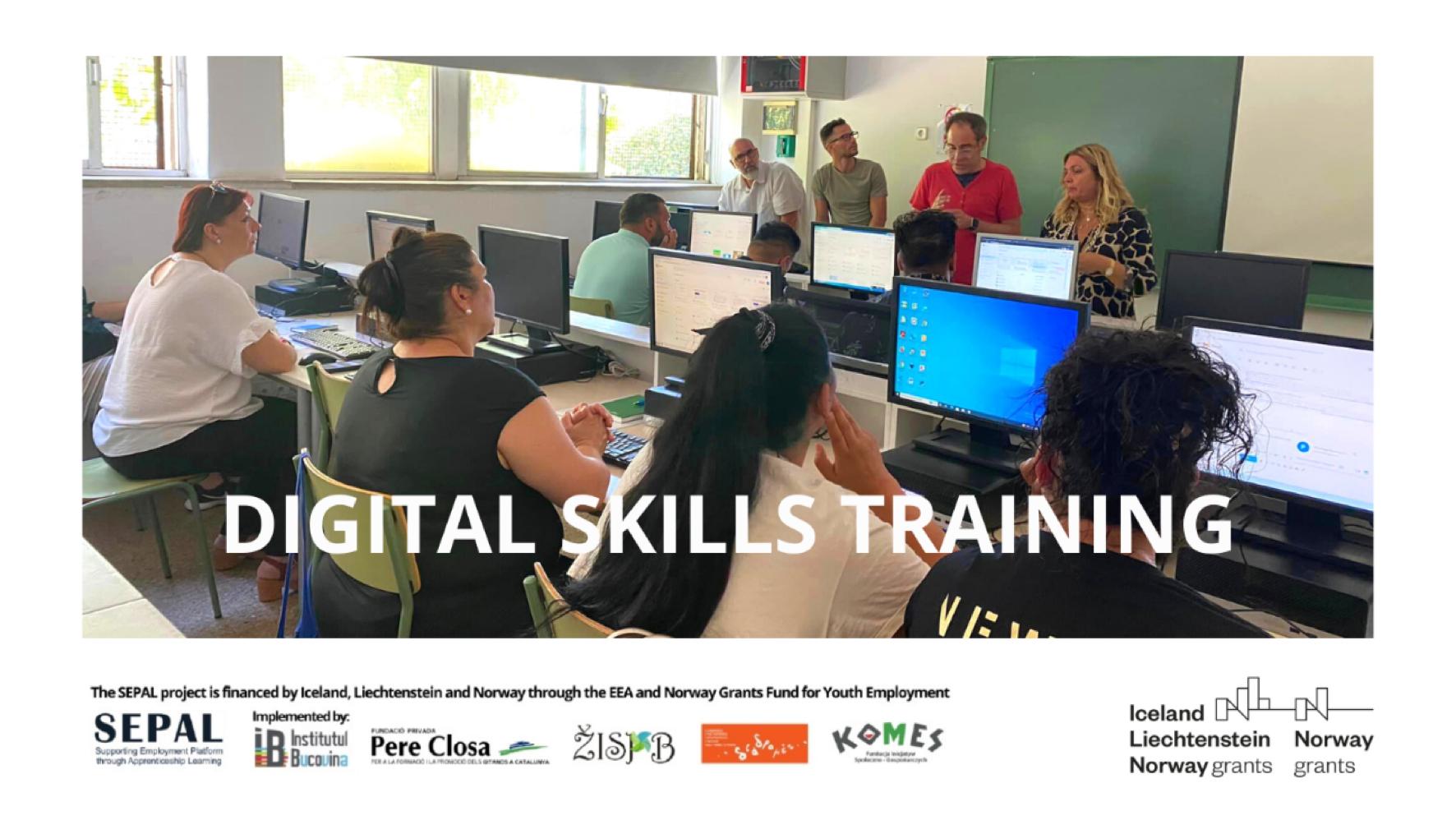
The Digital Economy and Society Index shows that 4 out of 10 adults and every third person who works in Europe lacks basic digital skills. In addition, already in 2021, 28 occupations ranging from construction and healthcare to engineering and IT had shortages, showing a growing demand for both high and low-skilled workers 1.
There is also low representation of women in tech-related professions and studies, with only 1 in 6 IT specialists and 1 in 3 STEM graduates being women.
To encourage lifelong learning, Member States have endorsed the EU 2030 social targets that at least 60% of adults should participate in training every year, already presenting their national contribution to meeting this target.
This is also important to reach the employment rate target of at least 78% by 2030. The 2030 Digital Compass sets the EU target that by 2030, at least 80% of all adults should have basic digital skills, and there should be 20 million employed ICT specialists in the EU, while more women should be encouraged to take up such jobs.
Furthermore, during the investigation and work with youngsters in need, within the framework of the European project SEPAL (2018-2021), one of the most important causes of high rate in unemployment among youngsters was related with to the lack of basic digital skills. Based on these necessities, we approached to offer courses related with digital skills, in collaboration with CFA Morena Pomar. At the end of the training, the youngsters were certified on their basic digital skills known in Catalonia as ACTIC certification.
As consortium of SEPAL (Rumania, Spain, Lithuania, Greece and Poland), as part of the evaluation indicators of the project we conducted sustainable plans to follow up with the SEPAL PRO project (2022 – 2024)
and it was decided to be persistent on raising the basic capacities and improve the soft and digital skills of our NEETs.
Precisely, the European Parliament and of the council announced by President von der Leyen the 2023 European Year of Skills, represents a unique opportunity to support European companies, and especially small and medium-sized enterprises, “grappling with a shortage of staff” by putting “more focus in our investment on professional education and upskilling”, by ensuring “better cooperation with companies”, by matching companies’ needs “with people’s aspirations” of both low and high skilled, and by speeding up and facilitating the “recognition of qualifications also of third country nationals” (Proposal for a DECISION OF THE EUROPEAN PARLIAMENT AND OF THE COUNCIL on a European Year of Skills 2023) .
Following the same line, during 2023 at least 40 youngsters in vulnerable situations will receive training on ICT and soft skills to improve the social and labour insertion.
Enerida Isuf, Project Coordinator Sepal Pro Spain ProjectThe event took place on the 16th of December 2022, at Conference room “Serdika”, hotel “Central”, under the name "Post-Conflict, Wars, Economy, Climate - Challenges and Implications for Mental Health in Bulgaria and Europe". Project "L.I.K.E." aims to include young people with mental health problems in the labor market.
The results of a sociological study conducted in four countries - Bulgaria, Ireland, Latvia, and Italy- were presented during the conference regarding the impact of the COVID-19 pandemic on young people with mental health problems. The main aspects of the research are the consequences of the pandemic on the physical and mental health of young people, what additional needs have occurred during the covid crisis, and in what direction the interventions for the prevention of mental problems among NEETs should be focused.
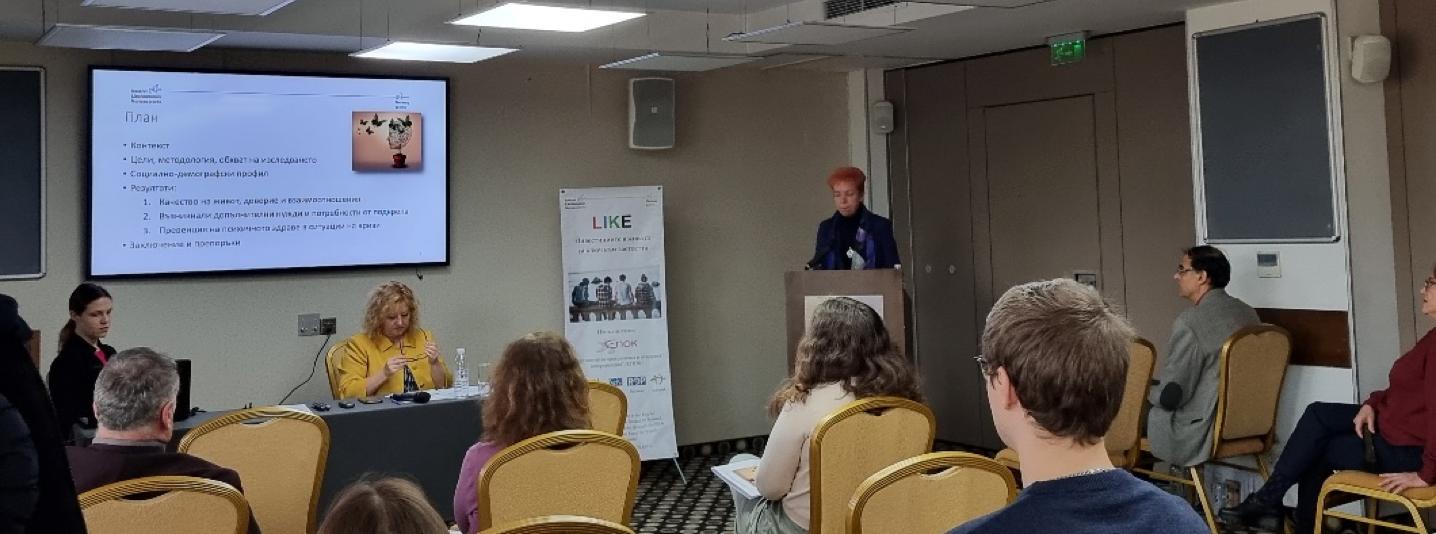
Some of the research questions included in the survey register the impact of the pandemic on the mental health of NEETs. Survey data shows that around three-quarters of Latvian youth rate their mental health as
significantly or to some extent worsened by the covid crisis. In the other countries, the share of such responses is lower, around 65%. Respondents from Latvia and Italy more often reported a significant deterioration of their mental status - 27% and 31%, respectively. In Bulgaria and Ireland, 24% and 20% responded in that way, respectively.
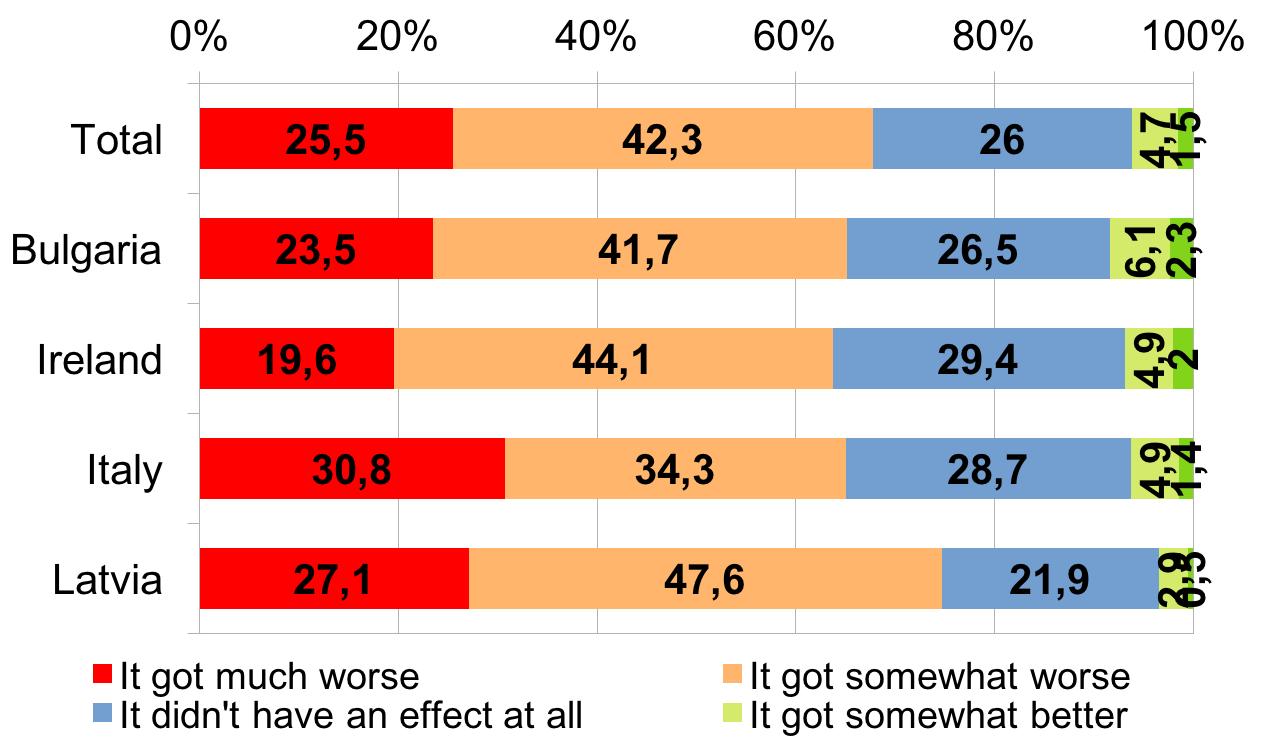
In the survey we asked young people what kind of additional help and support they would like to receive. The results show that social psychological and medical services are most desired in Latvia (67%) and Italy (50%). In Bulgaria and Ireland, after receiving psychological and social support, internship and work programs are most often indicated as necessary (48%).
The need for support through training and qualifications is stated more often in Italy (52%) and in Latvia (45%). Young people from Bulgaria (39%) and Ireland (34%) put them further behind in their preferences.
Association
“Sustainability of progressive and open communication”, leading partner of project L.I.K.E. project – Life Investment is the Key to Employment, held its Annual Conference within the project. Sofia, Bulgaria
In separate reports during the conference, the results of the multidimensional work model implemented in the Youth Houses, as well as the 4-level intervention concept for support of depressed young people and prevent suicidal behavior, were also presented.
In the conference program was also included an analysis of world criseswar, climate, economy and how they affect mental health. As well as a report on the increasing use of new, modern psychoactive substances and their consequences, illustrated with clinical cases.
The reports were presented by: Elka Bozhkova, psychologist; PhD Yuri Katsarov, psychologist; PhD Vyara Gancheva, sociologist; Prof. Vladimir Chukov, political scientist; Dr. Tsvetelina Petkova, psychiatrist.
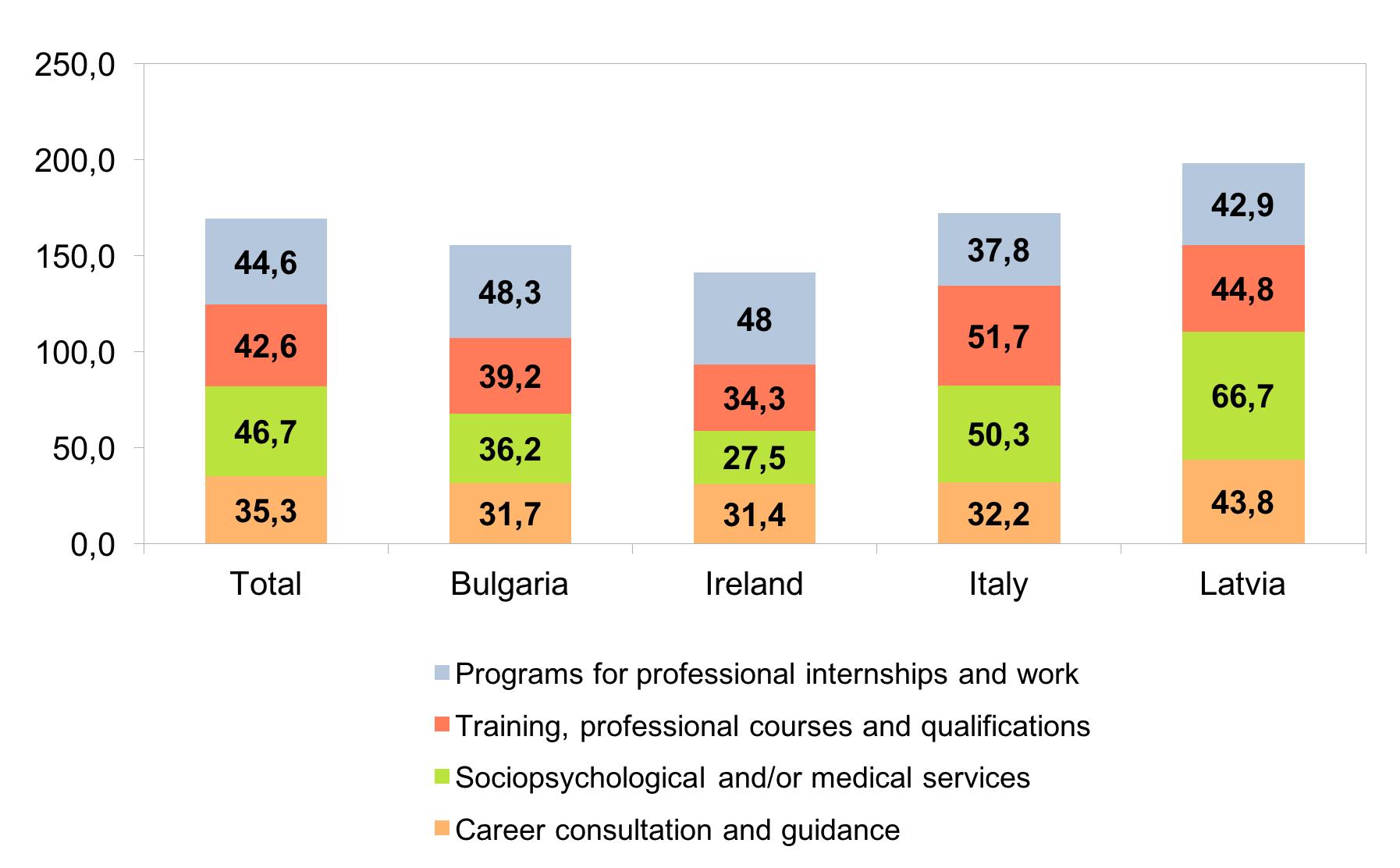
In 2022, we celebrated the ‘European Year of Youth’, which proved to be very fruitful in terms of creating new and exciting opportunities for young people across Europe. A bottom-up approach that included the cooperation of young people, youth organisations and other youth initiatives that make the voice of youth heard, media that reported about ‘#EYY2022’, and the prioritisation of young people throughout the year, helped to make it a success.
While there were many new opportunities and initiatives available to young people in 2022, this momentum must continue going forward. The StayOn project is a great example of how this can be accomplished, as it aims to foster youth empowerment using the same bottom-up approach that directly involves young people, allowing them to have their say and take control of their futures. The European Year of Youth strengthened the aim and values of the StayOn project while solidifying the need for more youth projects like StayOn across Europe.
Promoting opportunities available to young people; helping them to become active and engaged citizens; bringing a youth perspective to the Union's policies, and highlighting how the green and digital transitions offer opportunities for young people, were the main objectives of the European Year of Youth. The latter of these is of great significance this year as there are new skills demands on Europe from green and digital transitions. The European Commission responded to these demands by declaring that 2023 would be the ‘European Year of Skills’.
The labour shortages and lack of basic digital skills across Europe highlight the need for sufficient investment in reskilling and upskilling to ensure a workforce with adequate digital and green skills to enhance Europe’s competitiveness. With these industries moving quicker than ever before, there is an evident need for a translatable skills taxonomy that will ensure the development of the required skills, while leaving nobody behind, to boost Europe’s recovery. The European Year of Skills aims to
contribute to achieving the Digital Decade targets, which are that 80% of Europeans will have basic digital skills, and there will be 20 million information and communications technology (ICT) specialists, by 2030.
This is an incredible opportunity not only for education and industry, but also for youth projects like StayOn, as the European Commission will emphasise the importance of, and encourage a much stronger focus on, opportunities and initiatives related to upskilling and digital skills for all. Events and awareness-raising campaigns will be organised across the EU to highlight funding programmes and EU initiatives and to promote upskilling and reskilling opportunities. The StayOn project can play a central part in this by providing young people with adequate digital and green skills for European rural labour markets, and can become a best practice example for the 2023 European Year of Skills.
Once upon a time, there was a young woman aged 28. Every day, from her bedroom window, she looked outside: people were walking fast, it seemed they had a place they wanted to get to. Cars passed and honked, children ran. This young woman thought: what will all these people have to do? Work? But what do they work on? How did they do it? What did they study?
“Before the StayOn project appeared, I felt frustrated and with little motivation, but since I began to participate I have been very happy and encouraged. I have gradually become a more confident and motivated person to fight for my future and my life. StayOn has undoubtedly had an impact on my life. It made me grow and understand better that teamwork works best!”. The young woman at the window was Sara. Today, Sara is out on the street, being looked at by someone. From a window.
If in 2022 we celebrated the Year of Youth Employment where, through the StayOn Project, young people had the opportunity to improve their job search techniques, their Curriculum Vitae and, in general, adopt a more positive attitude towards the labour market, in 2023 we are committed to strengthening their skills and potential. Having the relevant skills empowers people to successfully embrace market changes and to fully engage in Society and democracy. Saying so, can also mean that Skills and Competences are the window of opportunity and the path open to success for younger people in the job market. Stay-on’s ultimate objective is to create conditions that enable young people to ‘stay on’ rural land by ensuring their access to opportunities, benefits, services and jobs. The project aims at fostering youth empowerment by providing adequate skills for the rural labor market, such as digital skills, abilities to manage environmental impacts, and personal development.
For now, we tell you another story, about Ângela, who also accepted to be a character in this article. Angela “knew she had difficulties”, sometimes she “felt a little lost”. With her participation in the project, she quickly realized that what she lacked “was a push!” to “increase my selfconfidence in order to overcome my difficulties.” And so it was. From 2022 Angela brings with her “assertiveness” and “knowing how to look for a job in a more active and prepared way” and also has her CV complete and updated.
We are certain that 2023 will be a great year for all the young people who have decided to open their window to the project. Keep the windows open and let the Skills and Competences come in!
CRESAÇOR Team StayOn projectNEETs enrolled in education and training, including work-based learning reached 2500 while more than 500 NEETs are enrolled in apprenticeships and/or mobility schemes. Out of the target group enrolled in the project activities from the start, more than 250 got (self)employed and the number of those who are process of starting their own business is 120.
In 2023 the emphasis of the RAISE Youth project activities will be on the sustainability in order to create the framework for the ongoing support for target new NEETs and support for former NEETs by setting up structures and models prepared earlier in the project implementation. By establishing of social enterprises, clusters, network memberships, crowdsourcing mechanisms project will provide NEETS involved in the project concrete good practices and encouragement for the future.
The implementation of the RAISE Youth project started in September 2018 and the planned end of the project activities is September 2023. Partners from 4 European countries, Bulgaria, Croatia, Romania and Spain gathered together with a single goal - to contribute to providing decent and productive work for youth through social innovation in rural areas. For the past 4 years RAISE Youth project has been piloting and promoting an innovative RAISE Model of (self) employment, for youth NEETs based on sustainable agri-business in 4 rural regions of EU with high unemployment rates and depopulation.
The RAISE Youth project Annual Event took place on December 9th 2022 in the city of Gospić, Croatia. RAISE Youth project coordinator, Mary Ann Rukavina Cipetić presented the project activities and results achieved in 2022 and introduced the plans for 2023.
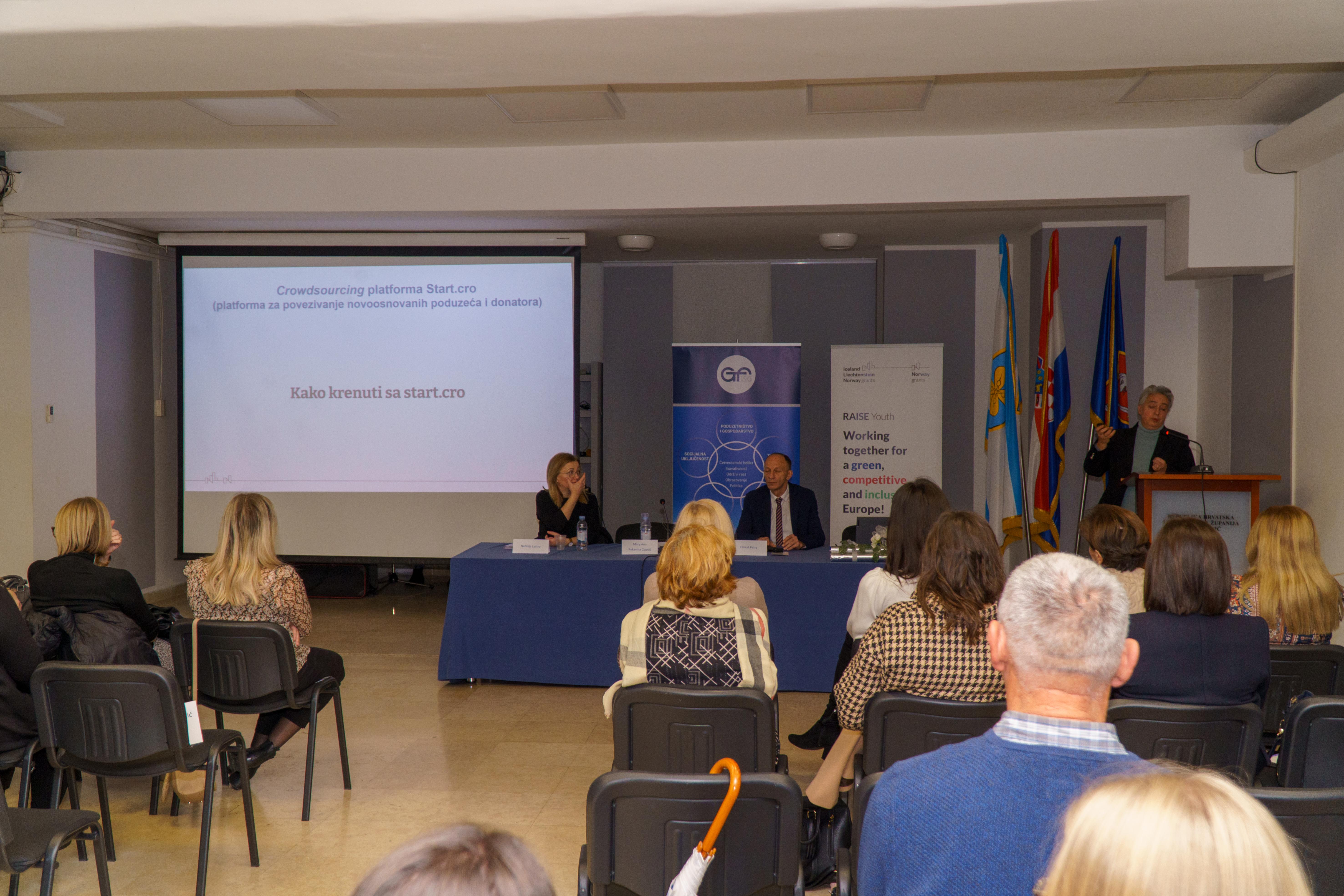
Ms. Rukavina Cipetić pointed out that, by December 2022, RAISE Youth project had more than 3000 beneficiaries from the target group. Number of
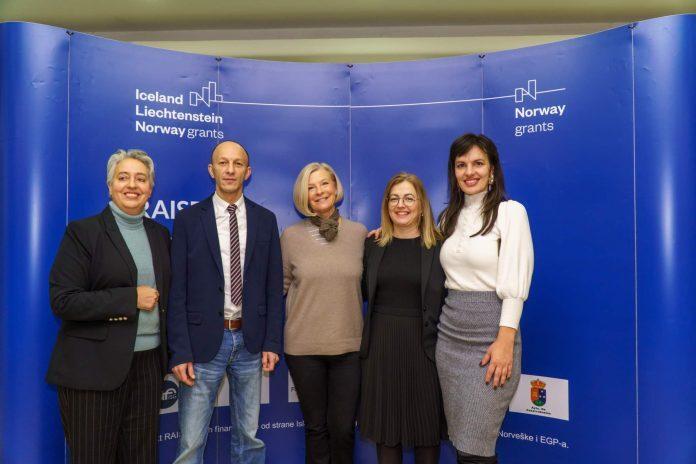
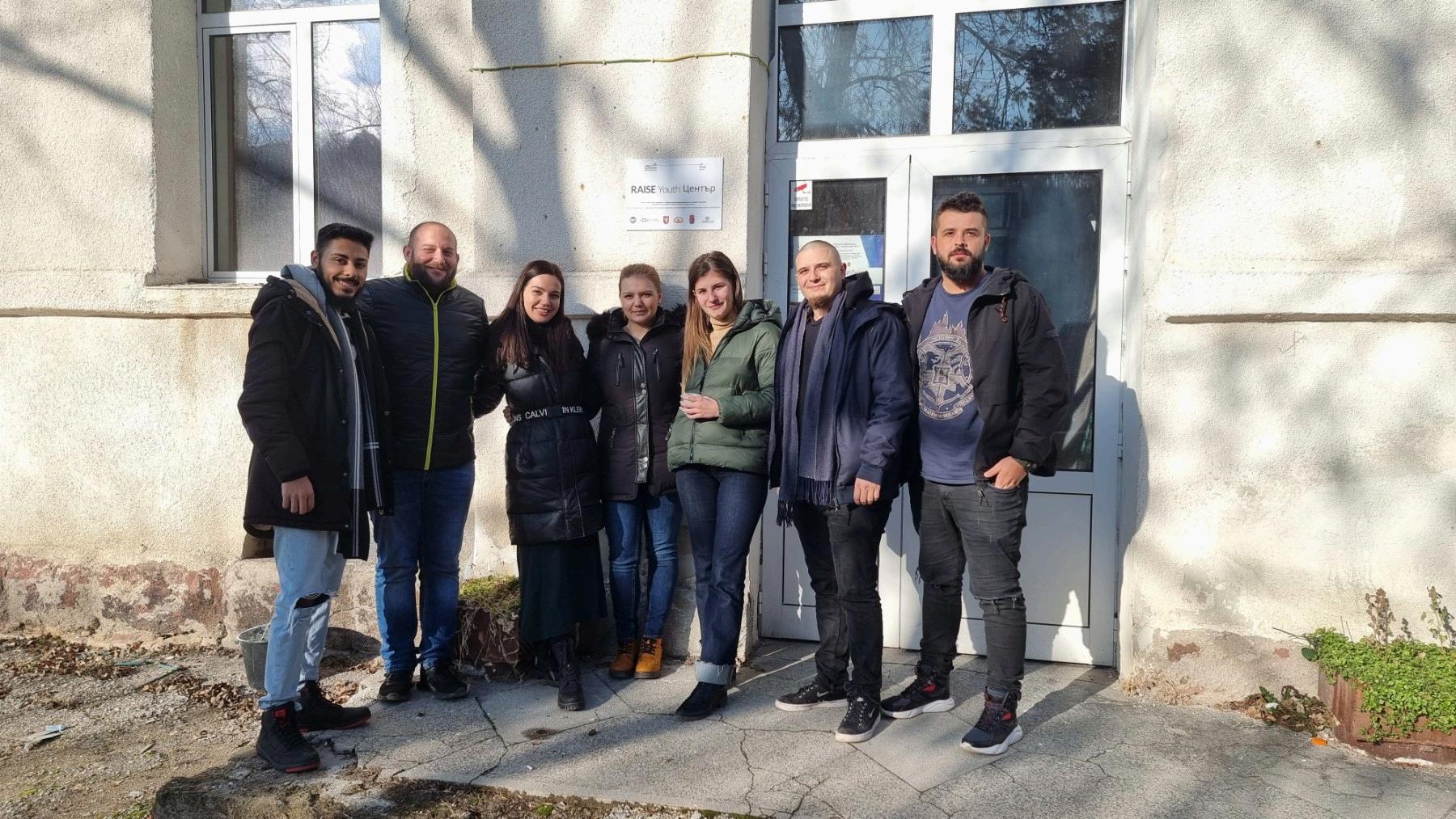
They will talk about topics related to career guidance, financial stability and green transition.
On January 14 and 15, a training session on creating audio content was held at a Regional RAISE youth center. It was attended by representatives of the host Center, as well as the International Youth Center - Pernik and other young people. Experienced journalists told how to conduct interviews, how to edit sounds and how to use your voice to sound better on air.
The guest speaker was David Kalpachki - host of a radio show on the Bulgarian National Radio He set interesting practical tasks for the participants.
Together with them, the team of trainers managed to create a title, slogan and concept of a new youth radio show. The young people developed topics that are of interest to young people from the whole region, and thought about suitable guests and interlocutors to interview. They planned when the show would air and when the recordings would be made. The entire process of creating the radio show was guided by them. Thanks to the partnership that the Regional RAISE Youth Center established with the branch of the Bulgarian National Radio in Blagoevgrad, the broadcast will take place and will be heard on the territory of the entire South-West Bulgaria.
Next month, the youngsters will visit the radio on site to get a feel for the atmosphere, to get to know the software and equipment and their more experienced colleagues. In March, their broadcast begin, which will continue until May 2023. The goal is pilot testing of the product and its continuation after that. The show will air for 1 hour every two weeks on Saturdays. It will be available also online as s podcast on the Bulgarian National Radio website.
In the RAISE Youth project, we try to activate young people, teach them how to be valuable in the labor market, how to be masters of their own destiny and create their own business from the beginning. It all starts with a change in attitude and mindset, planting the seed of belief in significance and belonging.
Each of the young people who passed through the youth center should develop their civic skills and competencies and be an active participant in the local civil society. Through this training, we wanted to push each of these young people to be an engine of change and to believe that the things they have to say to the world are valuable and meaningful.
Using the national radio airwaves, they can reach their peers, find likeminded people for their every initiative, find friends. These young people with their messages can change the lives of their peers and get them to be more engaged not only in their own lives, but in general with that of the society in which they live.
When we started our work in the region nearly 5 years ago, we found that one of the main obstacles facing young people is their lack of selfconfidence. They have knowledge, competences, ideas and dreams, but they do not believe that they are enough and can achieve them. Today we want to use every opportunity to tell the world about successful examples. Today, we want each of these young people to proudly declare
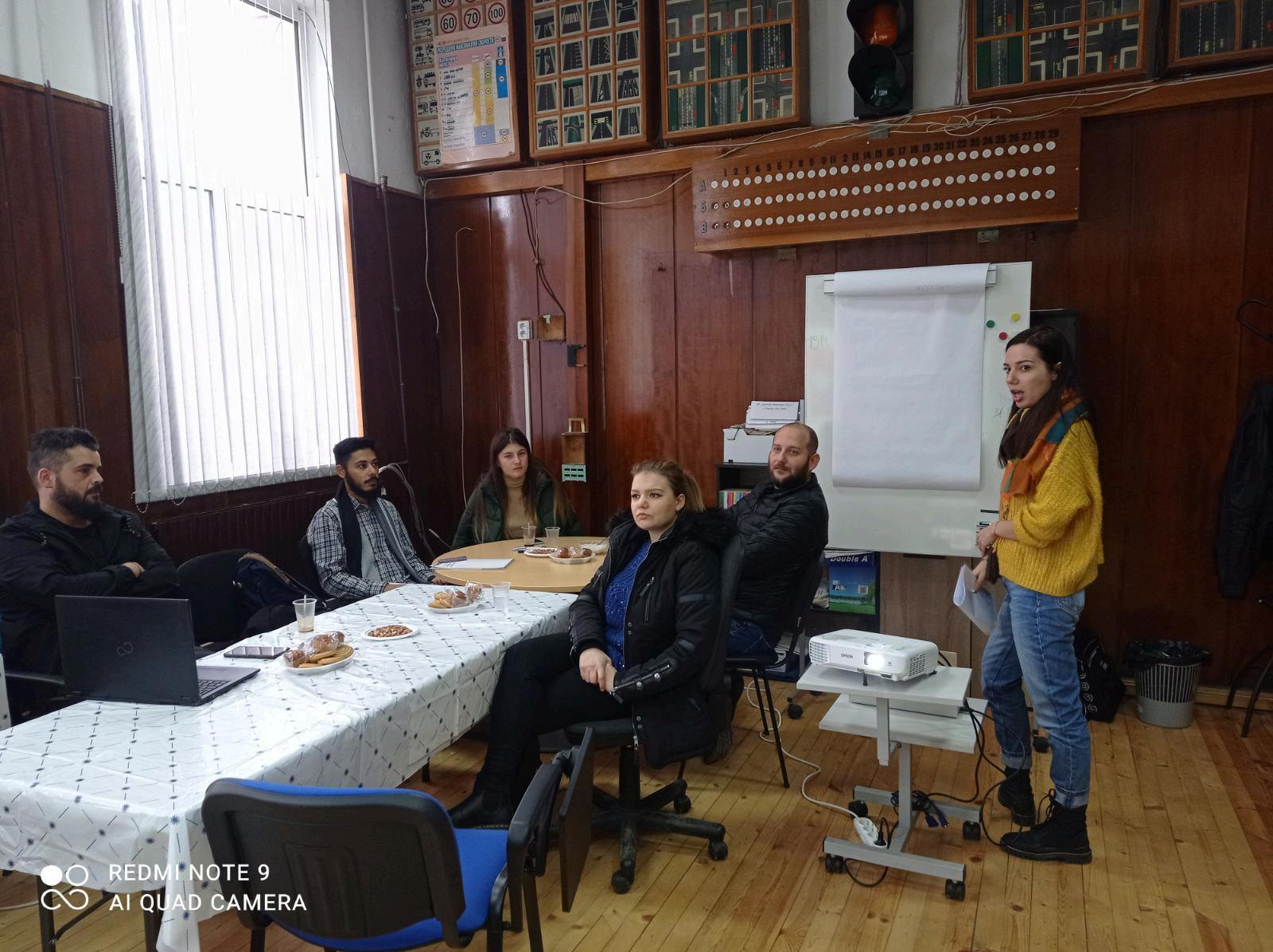
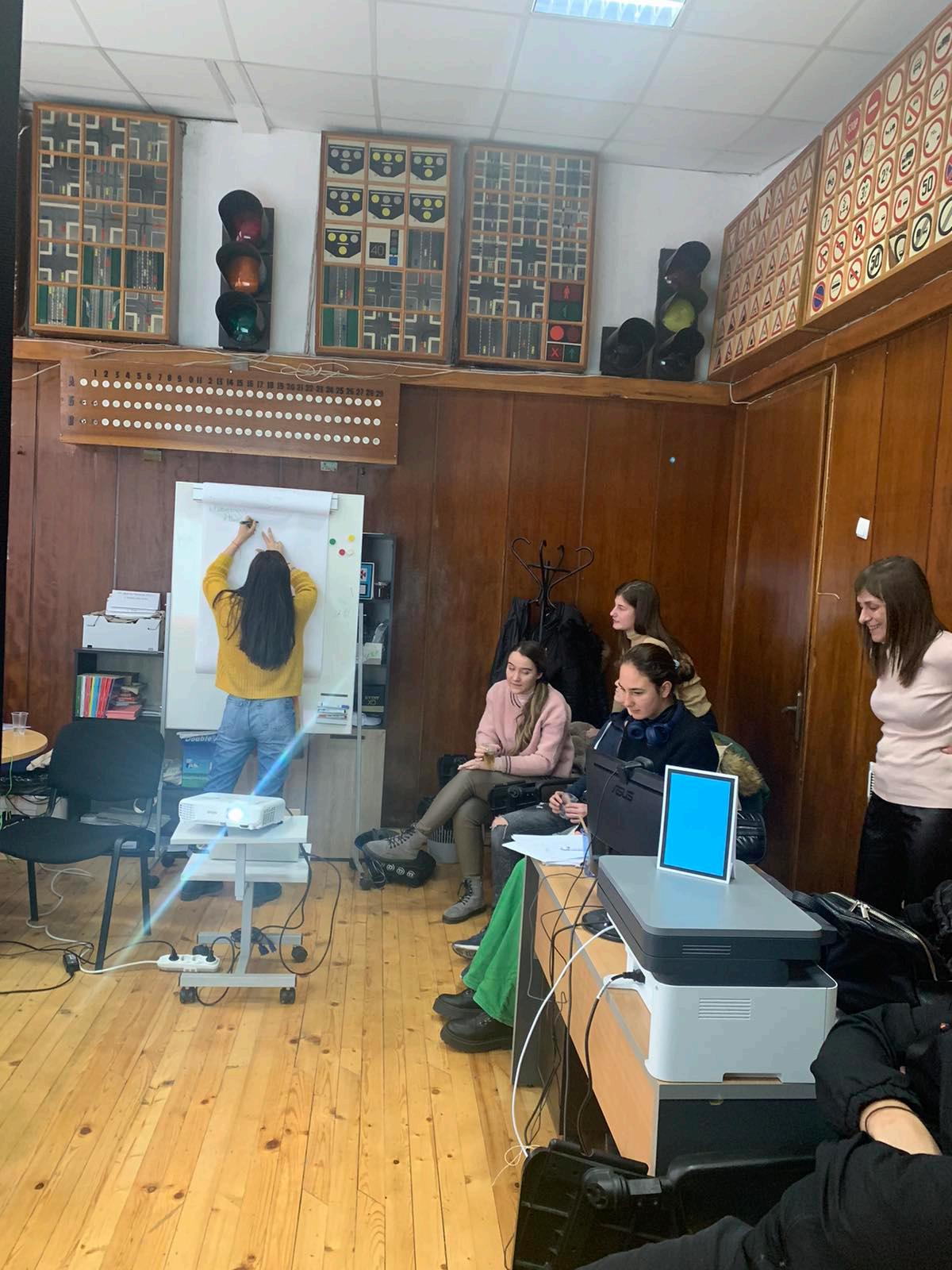
themselves, tell their story and convince at least one of their friends that nothing is impossible. This is going to be a long, long journey, we know! But we truly believe it’s worth it.
RAISE Youth ProjectThe year 2023 marks the end of the European Year of Youth and the beginning of the European Year of Skills and Competences but: how does it affect a project that its main target is not only young people but young people in the need of training and engaging in the creation process of business activity such as the RAISE Youth project? From FUNDECYTPCTEX we can only talk about our own perspective and the relationship we have with the young community in rural areas of our region, but the answer is… not much.
When we stop to analyze the profile of the NEETs FUNDECYT-PCTEX has been working with while under the RAISE Youth project we discover that even though we can find that an ample majority of young people are well trained, academically speaking, or are even enrolled in formal education on and high or university level, but they still lack some basic skills needed when entering the job market or when trying to start their own business initiatives. This new European Year of Skills and Competences marks a new opportunity for all the projects and organizations participating to put the focus of their activities in the capacity building and training of young people all across the European territories, an opportunity we are willing to take.
During this year 2023 the team of FUNDECYT-PCTEX will continue on giving technical support to the R&D centers, private companies, universities and public institutions of Extremadura, organizing activities for transferring knowledge to relevant actors in the regions and will keep on working towards the goal of the RAISE Youth project, specially towards the strengthening of the trainings and capacity building networks in the region. From FUNDECYT we believe that young people need to be reinvigorated and make them part of the decision-making processes of those policies that directly affect them while also making them engaged in their communities and territories. To do this and also achieve the goal set for the RAISE Youth project we will keep on working with young people in
rural areas of Extremadura to offer them the training they need to develop the skills and capacities needed to start their business activities while also making them more participative and engaged in the different volunteer work and activities done in their vicinities to put a solution to the problem they deem more important.
Covid-19 – the world-wide challenge in 2020. Digital solutions were to be found for private and business meetings, networking events, conferences, webinars and more in order to stay healthy and stop the pandemic from spreading. Business etiquette is known for personal contacts but what about etiquettes for meetings in the online world? When preparing NEETs for the job market many assets need to be kept in mind. Today, job interviews often take place digitally and therefore this TSP focuses on tips to increase the chance of winning the opportunity through making a good first impression online. An overview about „chatiquette“(chat+etiquette) as well as does and don’ts of online meetings will support the preparation process.
“Device on and let’s start?” – not having had a second thought about the online meeting can lead to worst case scenarios. An unorganized, private background, bad lightening behind the speaker, no working sound or disruption through ringing phones as well as other people walking through the room can be very disturbing and lead to an unprofessional atmosphere. Home-office, remote job interviews and webinars have to be organized and thought- through the same way as personal encounters.
The following checklist will help the preparation process and avoid uncomfortable situations:
• Background: clear, tidy and professional
The background should be chosen carefully – best is a clean, clear background like a wall without private items. A private background is rather suboptimal and would need to be very organized to have a neutral impact on the professional impression.
• Vista: light, display, camera
Lighting can have an immense impact on the visibility of the digital meeting participant and should therefore be positioned with frontal illumination - lighting from the side or behind can throw adverse shadows. If feasible, natural light would be the perfect choice. In
addition to that, the camera should be positioned in a frontal “head and shoulder close-up”, sitting down and allowing the perceptibility of gesture and mimic that supports the spoken while granting the counterpart an eye-level conversation.
• Sound: microphone, headset
Microphones have to be chosen carefully as sounds like white computer or background noise can be disturbing for all call participating parties. Even small noises create a subconsciously more difficult concentration situation for everyone that can have a negative impact especially on longer calls or webinars. The usage of headsets is advisable as noises are suppressed and the voice can be heard clearer.
• Technology: software, links, telephone number
There are different kinds of software that are used for online meetings nowadays. Whatever tool is being applied should be tested beforehand. Installation of software, comparability of hard and software as well as the internet connection during different peak times need to be taken into consideration. All links that are being used as well as telephone numbers to call in case of spontaneously occurring problems should be within reach during the call.
• Disturbance: surrounding, distraction, other no-goes
Another person walking through the room, a telephone ringing or somebody else speaking to the call participant are all disturbances that need to be avoided. Not only in consideration of the professionality and etiquette but also concerning data privacy protection all necessary avoiding prearrangements have to be made. Food and drinking should not be part of the conversation –although, depending on the type of call, drinking a coffee is arguable.
A chat is often part of webinars or larger online calls/events/ meetings. When preparing an online meeting, it is best to communicate clear rules like a “further question time” at the end to
avoid unnecessary interruptions. Also, if links shall be shared, it is useful to the links prepared in advance and have someone post them into the chat while the host is presenting. A risk of a chat is that the participants concentrate on communicating only there and with one another. To keep the attention to the presentation itself, it can be useful to ask questions to the participants or interact with them in other ways like polls etc.
Having taken the checklist into consideration, a general “chatiquette” should be applied in every Webinar or call. Certainly, punctuality and preparation are indispensable regardless of the context. The way of addressing other participants can vary from being formal to informal which always depends on the composition of the group. Leading an online call is easily done by involving participants through asking questions. While the chat communication can be very practical as participants’ questions being written down and answered whenever fitting during the presentation, it is important not to use the tool for sharing documents during the call but rather afterwards via email. Also, keeping track of all the participants (not leaving anyone with questions behind) and ignoring provocative commentaries that might occur are important tips for a professional online comportment.
The following seven principles for an effective webinar1 can be transferred into online coaching, working with NEETs:
1. Planning (introduction, implementation, closure, follow-up): Webinars need so be well-prepared regarding content, methodology and technology.
2. Feature diversity (choice of medium):
Different tools and features can be chosen based on the target of the webinar. Teaching and working with NEETS can lead to the use of even more interactive tools for creating an interesting atmosphere that keeps the attention and curiosity to the call/webinar itself. Tools like Skype, Zoom, Microsoft Teams are examples for call tools that can be spiced up with features like Mentimeter (for polls and documentation of a call)2, Kahoot (asking questions in a quiz show character and can be used to e.g. repeat learning content) 3 or Flinga (a whiteboard tool that can be used for content visualization,
commentary/feedback collection; hosted in Finland and is therefore in line with the European data security guidelines)4. More interactive is the avatar meet-up tool Tricat (each participant needs to download it beforehand and the host has to pay for its usage. Participants chose an avatar and walk through digital meeting rooms)5
3. Relevance (target-group customized content):
The webinar audience determines the content of the webinar, the level of difficulty and the material to be used.
4. Interactivity (creative, positive, integration of participants with activities like pools, questioning etc.): Interactive tools (introduced in principle 2), asking concrete questions, including participants in the conversation and having different speakers presenting their input can support the integration of the participants, further the achievement of the knowledge transferring objectives and keeps the participants’ interest.
5. Social presence (community, communication, trainer/coach as connecting element):
Digital calls, webinars and seminars can – especially during Covid-19 times– influence social interaction between people. NEETS are not isolated, interact with other participants or their coaches and – if regularly met – can create a sense of group belonging, which is beneficial on many levels. Here, it is important to mention, that -if possible(!) - all participants’ usage of not only microphone but cameras for more interaction, mimic and gesture involved in conversations will add up to the more personal communication of participants.
6. Visualization (clearly, structured presentation, expedient image selection)
7. Less is more. In presentations, visuals should be preferred over words, always supporting what is being said. It is even more important than in the physical world to make the presentation short, to the point and interesting and avoid speaking monotonously or reading slides. At the same time, the presenter should keep an overview of the number of participants, the time, dynamics, the tone of the contributions and the chat as the digital environment can have different group dynamics. Participants are not
in the same room; cameras are not always switched on and the attention might not be the same as in physical meetings.
Having applied the above preparation checklist and the seven success principles with more concrete examples on tools, visualization and moderation, the coaching/webinar or online conversation with your NEET(s) can only be a great success!
1 https://www.elearning-journal.com/2019/12/12/live-online-trainings/, retrieved on 16.11.20 2 www.mentimeter.com, retrieved on 16.11.20
3 https://kahoot.com/, retrieved on 13.11.20
4 (https://flinga.fi), retrieved on 13.11.20
5 https://www.tricat.net/, retrieved 10.11.20
Birgit Remhof, Josephine Pape, Dunja Buchhaupt KIZ Sinnova, November 2020
TPM-RYE Project
The lack of self-confidence is destructive for NEETs and (re-)gaining it can be difficult, especially for those who have faced major setbacks in their lives. If young people do not believe in themselves and their own potential, it will be far more difficult to integrate them into the labour market. The good news is that NEETs can work on themselves to reduce self-doubts. This paper shares some best practices and ideas on how to support NEETs to gain trust in themselves and self-respect.
Often, self-doubts are sub-conscious and originate from early childhood, seeping into adulthood and professional life. Self-doubts prevent young people from applying for a job, starting an internship or taking the entrepreneurial plunge – therefore, it is important to integrate modules that work on strengthening self- respect in NEETs programmes. Sharing selfdoubts boldly requires a certain level of trust and feeling of ease between participants and coaches. Trust is key to be willing to pin down internal conflicts. Nevertheless, coaches should address self-doubts from the beginning of a program. For example, they can help the NEETs to cultivate gratitude by keeping a gratitude journal in which they write down what they are grateful for on a daily or weekly basis. Gratitude practices may seem basic and simple, but it helps the beneficiaries to affirm that there are good things in their lives. This does not mean that life is perfect; it does not ignore all burdens and hassles in their lives. However, gratitude journals encourage identifying some amount of goodness in their lives. Moreover, NEETs start to acknowledge positive traits in themselves but at the same time learn to appreciate the support and love of other people around them.
In this paper we like to share favourite practices of KIZ coaches and program participants that helped NEETs to quiet down self-doubts or learn how to deal with them. Being able to cope with anxiety and self-concerns is no guarantee for finding a job at the end of the program – but it is a skill that is useful far beyond the professional level.
• Accept your insecurities – Young people often feel alone with negative thoughts and emotions. They haven’t learned to deal with
negative emotions or drawbacks and this makes them feel ashamed and isolated. A first step to change the attitude toward self-doubts is the realization: Doubting yourself is normal. Everyone battles negative voices and feels insecure sometimes. The simple realization that self- doubt is part of the human experience helps people embrace it and find ways to control it. The main goal should not be to eliminate self-doubts but to stop oneself from overdosing with these emotions. Therefore, coaches should try to have conversations around selfdoubts and insecurities with their beneficiaries. It helps to be approachable and share own experiences. Participants should feel comfortable sharing inner conflicts. Especially in a NEET context, it is important to talk about self-doubts and negative emotions after a negative job interview or being criticized at work. Other target groups such as women may also require emotional support e.g. related to combining work with family life.
• Change your point of view – Doubting is not all bad. Doubt, anxiety and fear help us to stay away from dangerous situations and have been an important part of human survival in the past. Nowadays, the secret is to keep it down to a healthy level. Rather than treating doubts as an enemy, they can also be seen as an opportunity to look inward, reflect and constantly improve one’s attitude and skills. Every time you doubt, you question yourself. What do I do? What could I have done better? This gives NEETs the chance to improve: "Tomorrow I want to do it differently; I want to do it better.”
Coaches can help NEETs to look at self-doubts differently. For example, a NEET did not get a job because of a lack of a specific skill. Rather than letting negative feelings of rejection grow and manifest in self- doubt and perceptions of worthlessness, the NEET can use this situation to his own advantage, invest in the development of a new skill, and apply again or in a different place afterwards.
Finding opportunities in the challenging circumstances (many
NEETs live in areas with high youth unemployment rates, violence, drugs etc.) is not at all obvious. Coaches need to consider carefully the individual circumstances and backgrounds, before working on attitude, behaviour or skills. Some NEETs might be highly motivated and prepared but limited by the current economic situation. Here, the approach could be to work on creative alternatives, such as starting or involving NEETs in social enterprises, cooperatives or develop a community approach.
• Find your optimal balance – For self-doubts to decrease, it is important to find a balance between doubting and doing. If NEETs notice that the doubts become too mighty, remembering similar situations from the past can be helpful. Until now, they somehow always managed to move forward, it somehow always worked.1 Coaches can ask questions to provide useful guidance when doubts become too powerful. This exercise gives NEETs the possibility to feel their emotions. Helpful questions could be: What exactly are you afraid of? Is it the possible interview rejection? The fear of not passing the final exam to finish school? Perhaps the fear is not even theirs, but something reflected on them by family, community or culture. Drilling down the root cause helps to understand certain patterns or negative affirmations. Each NEET should learn to find a balance between (reasonable) doubting and the boldness of doing.
• Accept compliments – People tend to remember every critique or rejection. Yet they struggle to accept compliments. Genuine compliments often emphasize the strengths, unique skills and talents of someone and can help to see the good in one`s self. The ability to accept compliments is essential to overcome selfdefeating thoughts and to start respecting and believe in oneself. Coaches should teach their NEETs to better accept compliments. This is challenging in the beginning but highly rewarding once practiced. Some coaches’ use a journal where the participants can collect all the compliments they have received during the program. Especially in difficult moments, it is of great value to skim the pages and be remembered of own capabilities and self-worth. The re-reading of received compliments makes it harder for self-
destructive thoughts to gain power and to hinder people to move forward.
Self-doubts are familiar to most of us and can rapidly grow with rejections, failures and in difficult circumstances. Especially young people trying to find a job – regardless of their education, gender, the underlying economic situation or cultural background – may face rejections, disappointments and harsh criticism. Therefore, they need to learn that self-doubt and anxiety are normal human emotions that can actually be useful and balanced out. Talking about self-doubts and anxieties is the first step to avoid feeling overwhelmed.
1 Strengthening self-confidence only works up to a certain degree. In case of backgrounds of drug abuse, violence, gang crimes and mental illness it is difficult to say:
“It somehow always worked.” Coaches cannot handle such issues in labour market integration programs and we recommend the involvement of specialists.
Dunja Buchhaupt, KIZ Sinnova, 2020Successful entrepreneurs are perseverant and never surrender against the barriers: when the rest leaves, they go ahead. They persist in their objectives, adapt strategies to the evolution of the environment, and are responsible for reaching them.
Great entrepreneurs always do what they set to do: they keep their word despite making extraordinary efforts and personal sacrifices. They are strongly committed to completing their work, satisfying their customers, and prioritizing long-term relationships to immediate earnings.
We often say that the most important thing for a business project is the skills of the team of entrepreneurs, even above the idea or the model of business. But what do these skills consist of? Which abilities or attitudes are necessary to undertake successfully?

The psychologist David McClelland interviewed hundreds of successful entrepreneurs in different countries and labor markets to understand their motivations, identify common behaviors, and determine the key competencies that distinguish successful entrepreneurs from the rest.
As a result of the investigation, McClelland identified the ten key competencies detailed here below.
Good entrepreneurs see the opportunity while another see problems and take the initiative to do business. Before being bound by events, they are searching for new markets, new customers, new products, services, and resources.
Successful entrepreneurs are enthusiastic and feel proud of themselves in respect of work. They are obsessed with finding ways to produce better products and services more quickly and efficiently. Hence, they do their best to meet and exceed the excellence criteria on their job and apply the essential procedures to finish on time and with the required quality level.
One of the distinguishing features of the entrepreneur is the capacity to take risks by evaluating the consequences. The best entrepreneurs are placed in positions that involve moderate risks; they calculate them, explore alternatives, take measures to reduce them, and monitor the results.
Good entrepreneurs know what they want, think about the future, and know where to go. Specific long-term goals and quantifiable short-term goals are set, which pose a personal challenge.
The best entrepreneurs personally verify the hypotheses with which they work, avoid assumptions, and spend a lot of time looking for information about customers, competitors, suppliers, opportunities, or technology and asking for some expert advice when they need to.
Successful entrepreneurs decide in advance what they are going to do, evaluate the feasibility of their plans, divide large tasks into sub-areas with well-defined responsibilities, and provide indicators to help them adapt strategies to results.
Great entrepreneurs use well-defined strategies to influence the behavior of others by convincing them to do what they want to. Then, they establish a good network of contacts and use it to achieve their aims.
The best entrepreneurs are optimistic, trust themselves, feel sure of their possibilities, set themselves ambitious challenges, and accept the responsibility for achieving these challenges, regardless of the actions of others. They do not like neither rules nor control and assume their successes and failures without blaming others.
All entrepreneurs have these competencies, more or less developed; what helps to undertake successfully is to test them and make them improve consciously, day by day, in a planned way, training and leaving the comfort zone, with perseverance and continuous evaluation.
So, practice your entrepreneurial skills and you are going to say: “I am what I want to be!”
In addition, with all the design and products that she creates, she has set up an e-commerce in which she offers anyone the opportunity of buying one of her products.

This project allows Maria to have a job opportunity doing what she likes de most, painting and thus bring her the autonomy to grow as a woman and businesswoman.
The project: https://colorsdisseny.com/
The entrepreneur Maria Prats was born in Barcelona on January 26, 2000. He suffers from a disease caused by trauma at birth, which makes it difficult for her to maintain the speed of his daily life. Despite her conditions, she is a young girl who defines herself as optimistic person, who’s always happy and in a good mood.
She is convinced that despite having functional diversity, she was able to overcome her obstacles and challenges to achieve her dreams, and she has done so.
Maria is a painter and designer, she loves art, cinema, and music. With painting and design, he has decided to create his project with the aim of turning the ordinary into something extraordinary.
Her wish is that the combination of her painting can inspire everyone in the world, because as she says, “A world with colors is a better world”.
Maria’s project, called Colors Disseny (Colour Design), is a design studio somewhat different from the usual, her designs are very original and colourful.
Maria makes commissions designs for all kinds od companies, as well as carrying out solidarity projects with other companies in the region.
Maria, arrived at Autoocupacio Foundation in 2020 during the Covid-19, after having a total and very strict lockdown due to her physical condition. We met her together with her mother Chus Rosich, whom they carry out the project together.
Being a project that was already in operation, they came to us to improve the situation of the Ecommerce where they needed to give a new vision to improve the sales after the Covid crisis.
The best program that we had in Autoocupació was the Mentoring Program of EEA Grants for young people between 16 and 29 years old. Mentoring program is a volunteer program to help consolidate and grow business of those young entrepreneurs. Mentors offer their experience to jointly analyze business challenges and find the best solutions, through active listening and open questions, helping in personal and professional development.
Maria as participated twice in Mentoring Program. Initially had a mentor with Ecommerce and digital marketing experience. And during the second time had a mentor specialized in business management in economy and finance, planning and strategy areas.
TPM-RYE ProjectJust before the end of 2022, Cowork4YOUTH’s second Open Event for the year, organised by one of the project’s partners, ISEAK, took place. The venue of BBK Kuna in beautiful Bilbao in Spain hosted the Event, and various stakeholders experienced in tackling youth unemployment also attended.
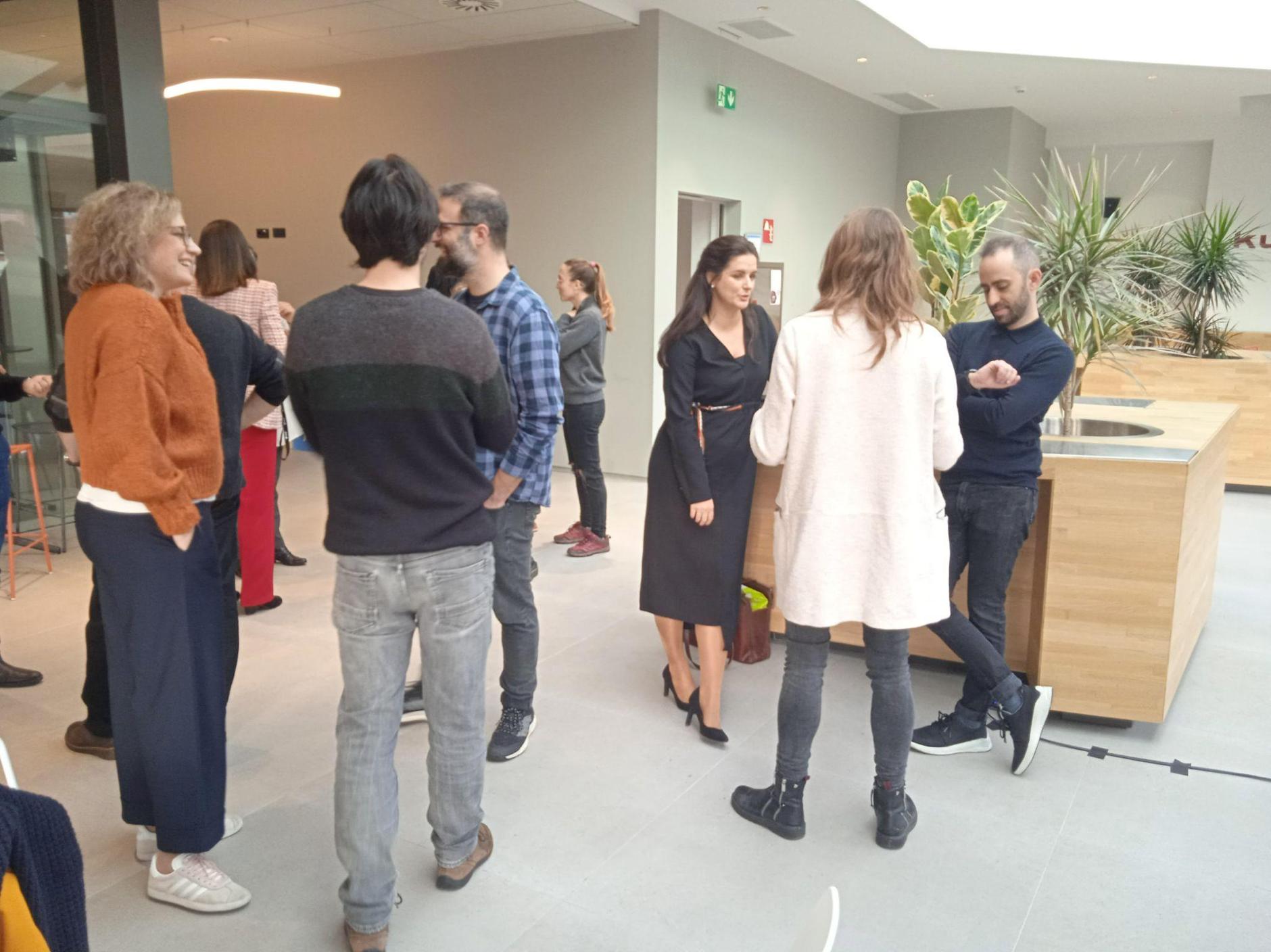
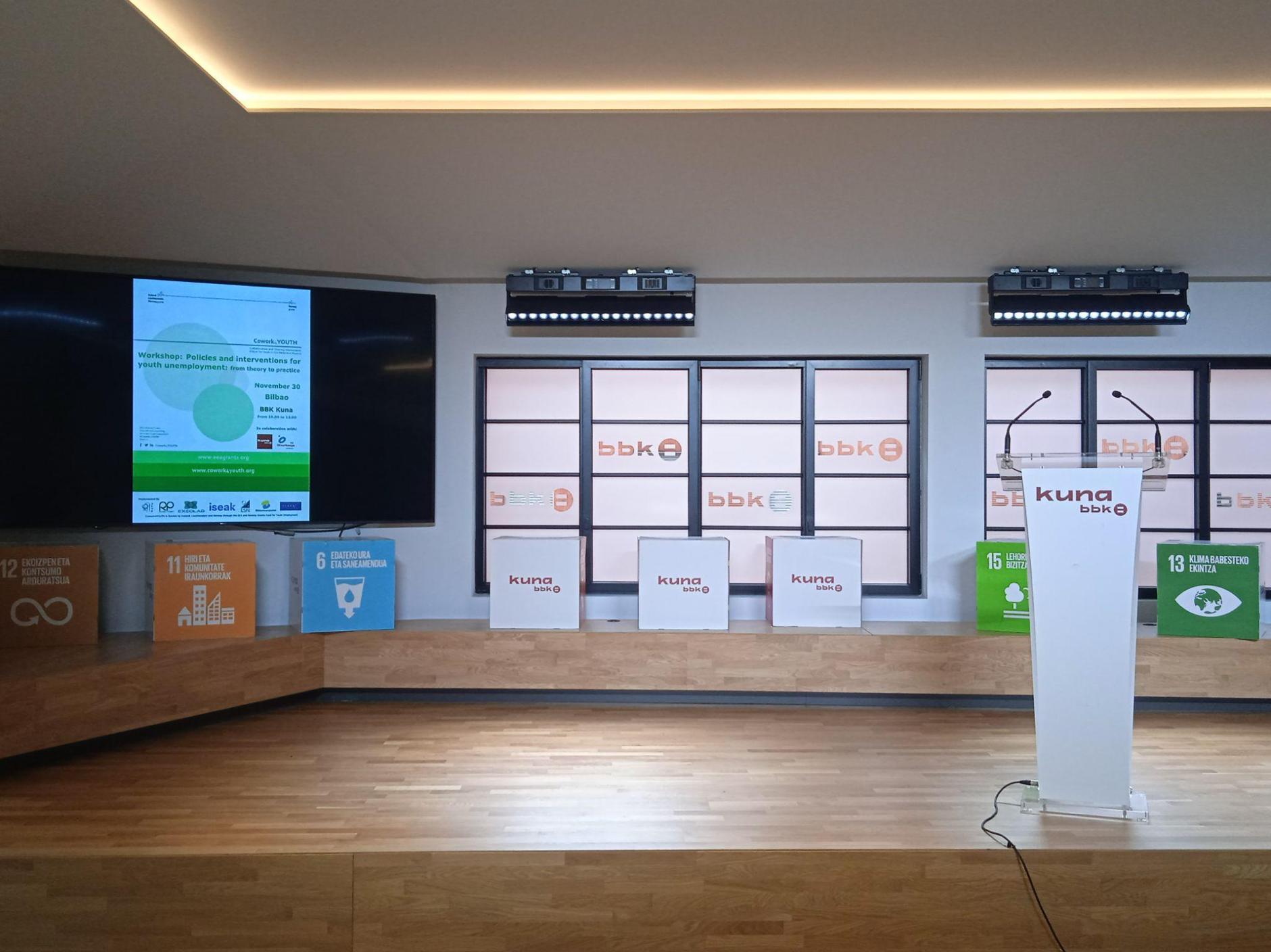
Professor Sara de la Rica, director at ISEAK, addressed the opening speech and was followed by the Principal Investigator of Cowork4YOUTH, Assistant Professor Vasilis Avdikos, and Dr Adele Wheelan, researcher from the Economic Social and Research Institute - ESRI. Professor de la Rica talked about the establishment of ISEAK in 2018 and its aim to generate knowledge and transmit it to the society. She underlined the need to give answers to problems and noted that the Open Event is a great opportunity to proceed in creating bridges between researchers and practitioners. Professor de la Rica also talked about her concern about the future of employment, and how the Event could be successful in terms of showing and discussing results produced by the current research in the framework of the project.
Professor Vasilis Avdikos talked about the context of the Cowork4YOUTH project, its overarching objectives and goals, the stepping stones, as well as experimental solutions to the issues emerging. More specifically, towards increasing knowledge and offering concrete policy suggestions against youth disengagement in peripheral/ non metropolitan regions, Professor Avdikos discussed steps such as understanding the current balance between available skills and social needs, evaluating the impact of existing employment policies and formulating pertinent policy recommendations. As for the solutions to be tested towards a living wage, platform economy and collaborative work practices that act as “learning middlegrounds” were the two main ones discussed.
Ainhoa Osés Arranz, researcher at ISEAK, talked about the role of Cowork4YOUTH in addressing youth unemployment by conducting a “diagnosis” of the key labour indicators for the youth and their
implications, an analysis of policy responses (e.g. active labour market policies, use of coworking spaces), policy recommendations, and dissemination of the results. The conclusions of the above actions revealed that youth unemployment is still high, quality of jobs is a concern, more attention should be given to vulnerable groups, and that public policies have been implemented, but their effects are yet to be determined.
Dr Adele Whelan, Senior Research Officer at the Economic Social and Research Institute - ESRI, talked about the “urban disadvantage”, or in other words, if it matters where young people live in regards to their employment and job opportunities. The main conclusions deriving from the research include that youths from independent urban towns are more inclined to face obstacles related to coming from a jobless household and being from ethnic minority groups, compared to their peers from rural areas or “even the most urban areas”; and that “the focus on traditional policy has been on highly rural or urban areas, suggesting that, potentially that independent urban towns are falling between the cracks…left-behind places”. Job opportunities, childcare, poor transport and housing provision are possible policy areas that are needed to address these findings, Dr Whelan concluded with.
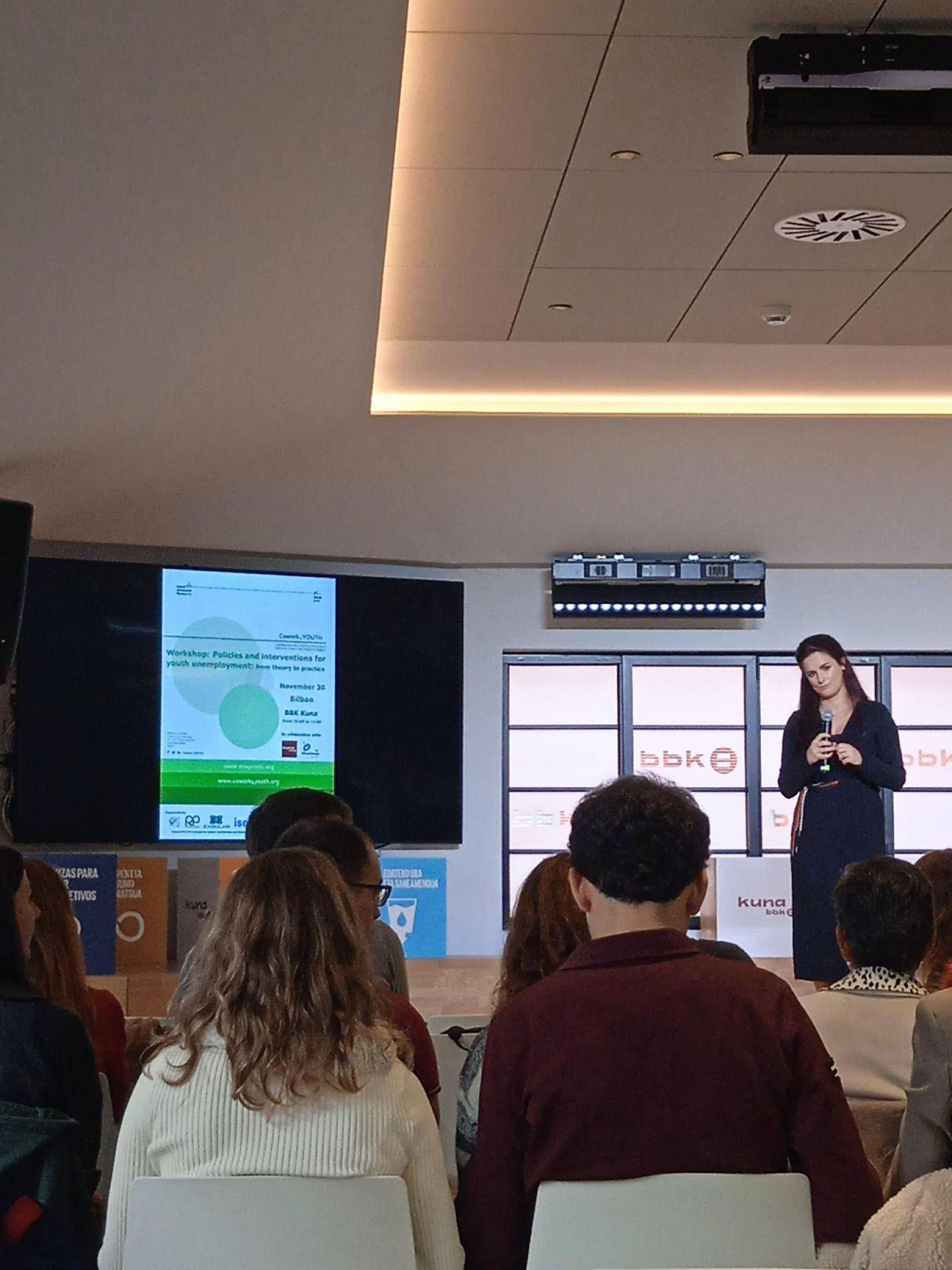
The first session closed with Dr David Martinez de Lafuente from ISEAK who talked about “The Impact of wage subsidies on youth employment: evidence from the program ‘Lehen Aukera’”, while the next sessions were themed “The contribution of facilitators and collaborative ecosystems” and “Direct intervention actions for youth employment”.
The Open Event speeches were followed by very fruitful discussions between the participants and the plenty of attendees.
For more news and stories about the Cowork4YOUTH project, follow us on our social media (facebook, Twitter, LinkedIn: @Cowork4YOUTH), as well as the website https://www.cowork4youth.org/
recruiting. Additionally, the Irish Minister of State for Skills and Further Education emphasized on the major challenge of skills shortage in the country, pinpointing furthermore the reason for planning these apprenticeship programmes. More specifically, the new apprenticeships are planned to begin July 2023, and include digital marketing and media, sports turf management, civil engineering, farm management, precision machinist and quality control and horticulture.
2023 has been declared as the European Year of Skills by the Commission, after the proposal of the Commission’s President, Ursula vor der Leyen in her State of the Union address earlier in 2022. Skills are a crucial tool for job hunting and integrating into the labour market, but since technology and daily affairs change rapidly, enriching one’s practical and theoretical knowledge to higher standards is a necessary re-adjustment for enhancing the possibility of successfully filling a job vacancy. In other words, upskilling is almost -if not entirely- mandatory if a person wants to multiply their odds to leave their unemployment status.
Two of the focus countries of the Cowork4YOUTH project are Greece and Ireland and in this article we are examining the proposals and measures announced by their relevant agencies/ ministries regarding upskilling.
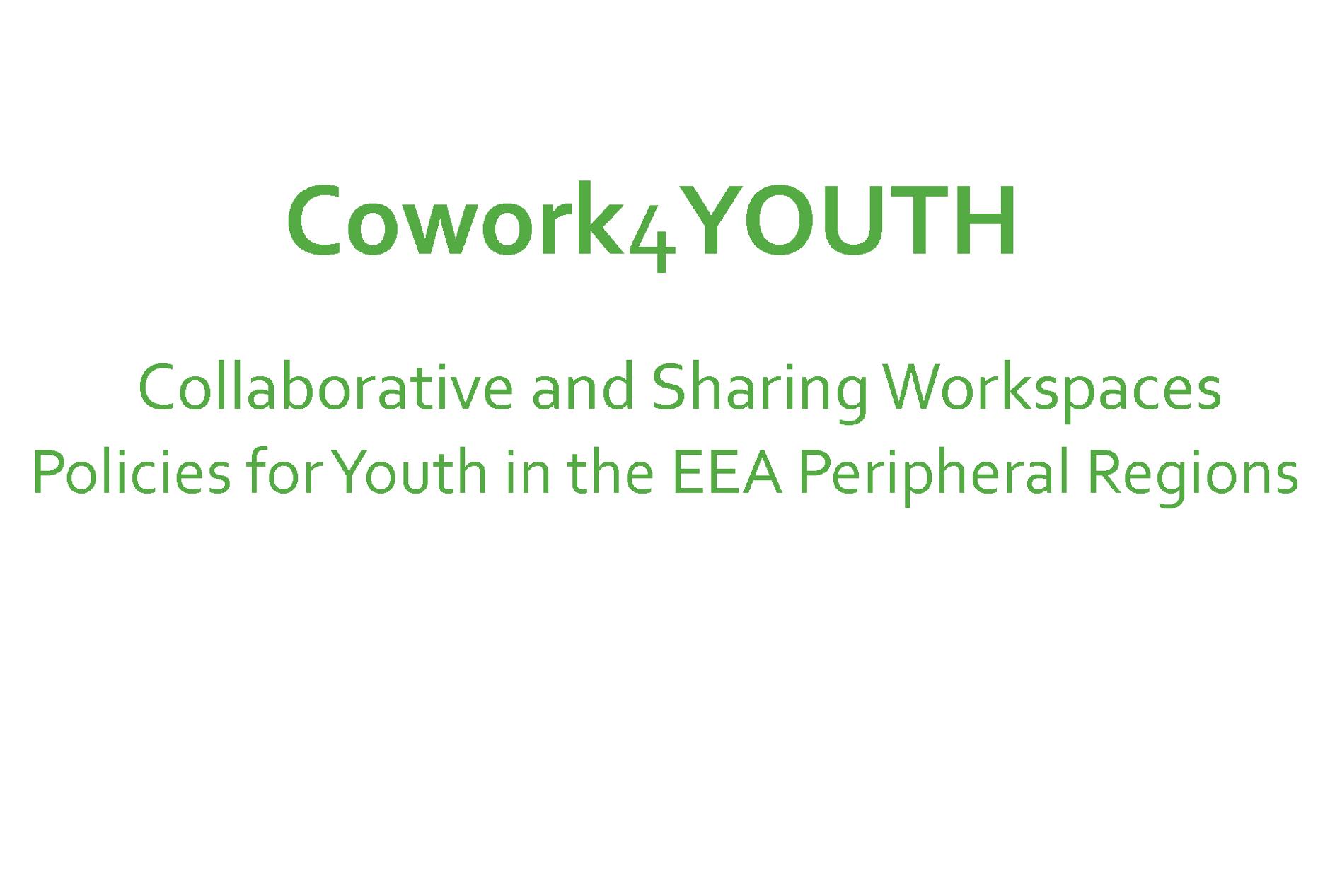
For Ireland, the Minister for Further and Higher Education, Research, Innovation and Science, announced in December 2022, 10 apprenticeship programmes for 2023. There are already running 66 programmes nationwide, and another 11 are in development. The programmes concern skills targeted to sectors like technology, engineering, farming, horticulture and hospitality, as those are the ones deemed in immediate need for
For Greece, funding up to 600 million euros for upskilling, targeting up to 420 thousand both unemployed and employed people is being planned, with about 2 thousand euros for each unemployed trainee and 1,100€ for the rest (the difference in personal funding costs derives from the length of the training period, which is half for the latter). The programmes entail training in digital and green skills; specifically for digital skills, funding is planned for training that includes big data analysis, databases, data and cyber security, programming languages, mobile applications, and video and image editing, whereas green skills entail the use of new technologies in sectors like green economy, green entrepreneurship, eco design, renewable energy sources, and smart homes and cities. Blended learning (online and in person) will also be applied for the training sessions.
www.cowork4youth.org
From January until June 2023, the Presidency of the Council of the European Union is assumed by Sweden. As a project that examines the ffectiveness of policies about youth employment in areas under energy transition, at Cowork4YOUTH we took a careful look at the Swedish Presidency’s programme about its priorities and main direction. Of special interest are the priorities that deal with economic and financial affairs, as well as the ones about employment, social policy, energy, education and of course, youth.
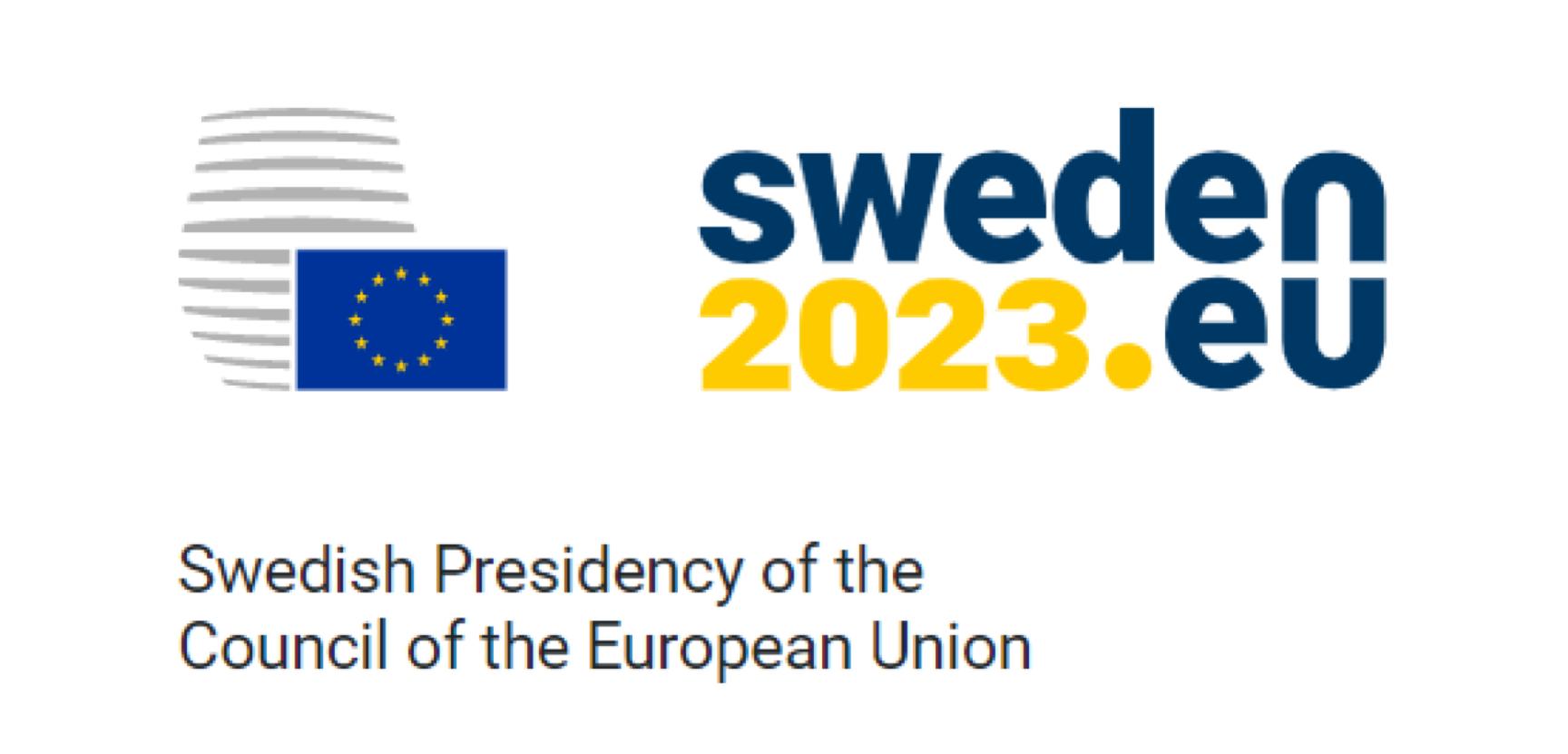
High inflation, an alarming energy crisis due to the current disruption of world peace, and rapidly rising interest rates are some of the problems the Presidency has to face during its time, in the framework of financial and economic affairs. Reforms and investments within the Recovery and Resilience Facility, the leader of the European Recovery Plan, NextGenerationEU, that its aim is to financially support the member states that were severely hit by the COVID-19 pandemic and also to fortify the EU from relevant future crises, are among the measures planned to be taken.
“Basic skills and lifelong learning are the building blocks that resolve skills supply challenges”, states the Presidency on its programme page about employment and social policy affairs, and continues “Work is the most important prerequisite for self-sufficiency and reduces the risk of poverty and social exclusion [...]”. Among the Presidency’s intentions is improving work conditions in platform work, and in the framework of equal rights and equal opportunities for all, to pursue increased gender equality and to establish the fundamental values of non-discrimination and equality in
general; therefore, the Presidency intends to push forward the trilogue of the proposed Directive on “binding measures for transparency in salarysetting and negotiations in the Council on the proposal for an antidiscrimination directive”.
Regarding energy, the priorities set by the Presidency to face future challenges include closely monitoring developments in the energy markets, implementing measures and amending the design of the EU’s electricity market. Revisions of the Renewable Energy Directive, the Energy Efficiency Directive and the Energy Performance of Buildings Directive are also being planned, in tandem with advancing the work on the proposals in the hydrogen and decarbonised gas market package, for increasing the proportion of renewable and low-carbon gases, so as to reduce the use of natural gas.
For education, the Swedish Presidency places upfront the European Year of Skills and intends to emphasize the importance of education contributing to green transition and upskilling, while additionally plans to move forward the work on the European Education Area, so that for example qualifications get mutually recognised. As for youth, young people’s participation in political decision-making is another priority; and as stated in the programme, “Young people’s knowledge, perspectives and experiences offer important contributions to the democratic process”.
At Cowork4YOUTH we are excited about the programme and the priorities set, and we will be following closely every field connected to our project.
https://swedish-presidency.consilium.europa.eu/en/ https://www.cowork4youth.org/
Cowork4YOUTH Project
These past 3 years were filled with amazing memories and experiences for both our partners and our participants, and we are excited to announce that this amazing journey won't stop here!
Our consortium has been granted additional funds for our YENESIS 2.0! We will continue helping young people in islands on their journey towards sustainable employment.

On November 29th & 30th the partners met at Las Palmas, Gran Canaria and had the kick- off meeting for YENESIS 2.0, where they discussed the activities that will take place during the next 14 months.
Read here the other news from YENESIS 2.0 Newsletter!
From the Fund Operators
Małgorzata Nowak
Ewelina Wolosik
Mateusz Wiśniewski
Francesca Bombarda
Sara Barbi
External Contributors
Thomas Mc Grath
Dafina Peci
Dea Elmasllari
Eneida Daci
Marta Wójtowicz
Agnieszka Parol-Górna
Aleksandra Kulik
From the Projects
Bucovina Institute
KoiSPE Diadromes
ZISPB
CRESAÇOR Team
Enerida Isuf
Elka Bozhkova
Yuri Katsarov
Vyara Gancheva
Vladimir Chukov
Tsvetelina Petkova
Meath Partnership team
Birgit Remhof
Josephine Pape
Dunja Buchhaupt
KIZ Sinnova
Gojana Paponja
Alina Adomnicăi
Marzena Dusza
Laura Pacareu Flotats
Anastasia Vlachou
Savvas Pavlidis
DIRECTOR
Gian Luca Bombarda
Cover image: the Fund Director, the Fund Operator & the Regional Funds Projects
The contents of the Magazine are the sole responsibility of the authors and can in no way be taken to reflect the views of the Donors.
born with the intention of sharing the results and updates of the projects participating to the Fund to showcase the main achievements of implemented activities. Follow us: www.youthemploymentmag.net
Don’t miss the Youth Employment Forum!
Contact us: themag@youthemploymentmag.net
Official number: 3380/2019

FUND OPERATED BY:
